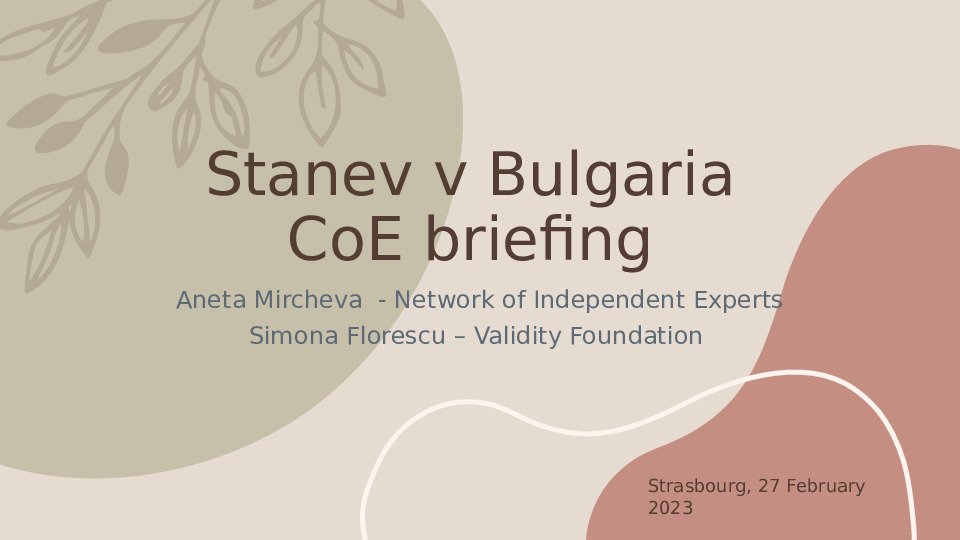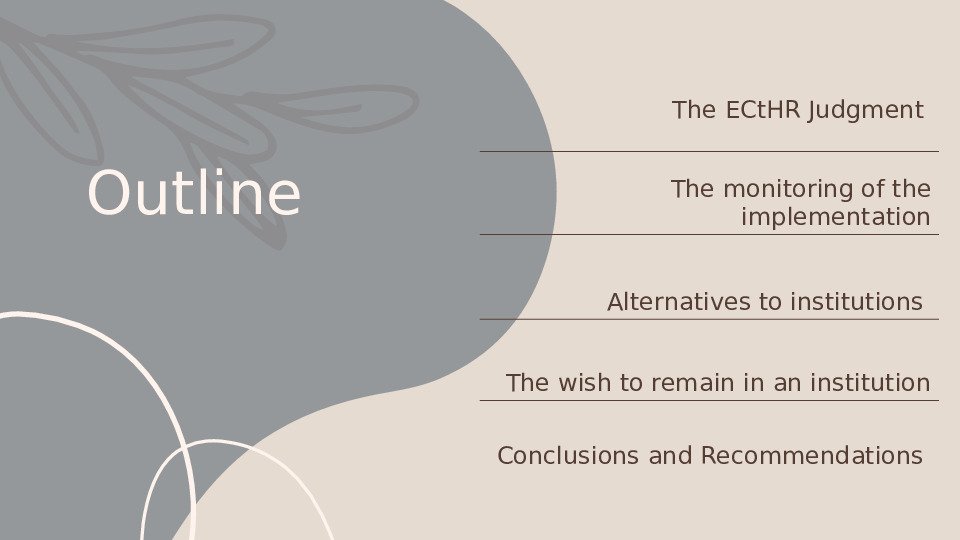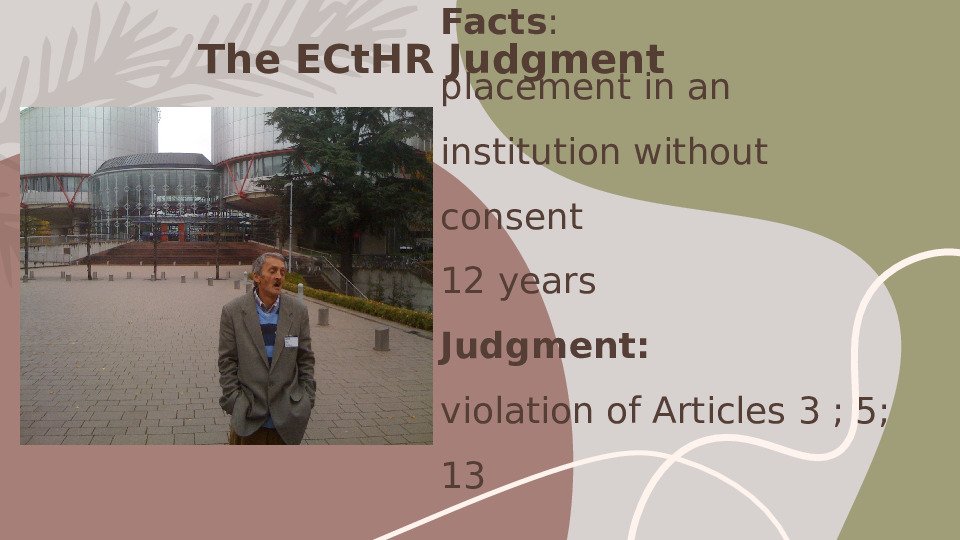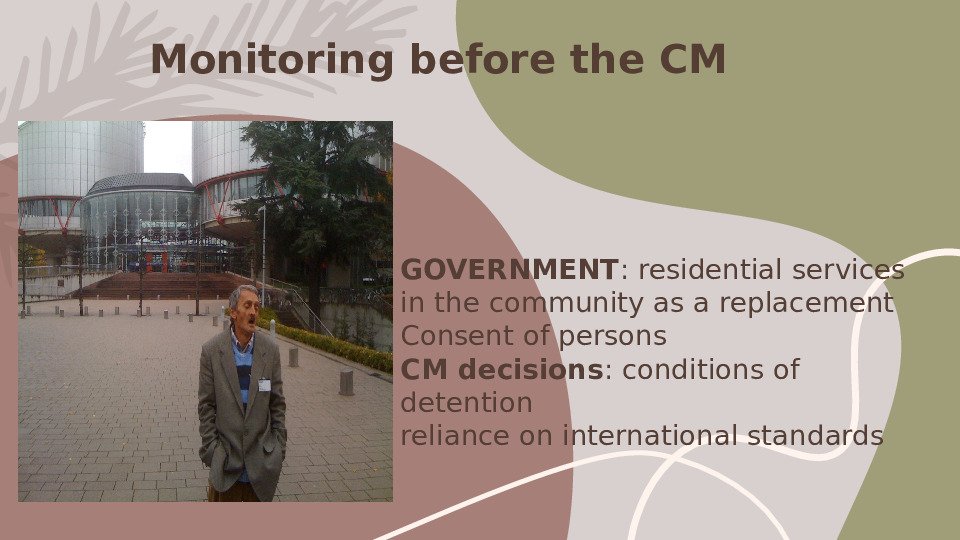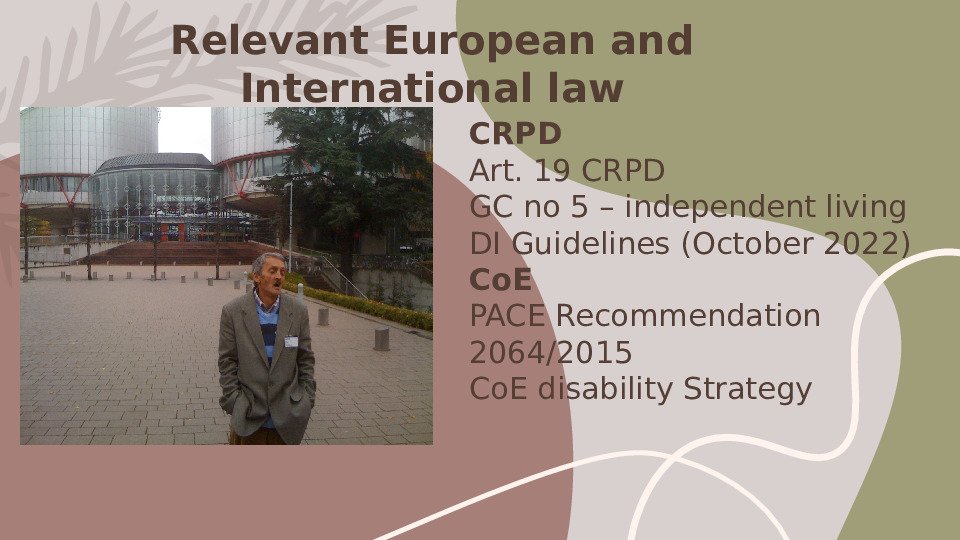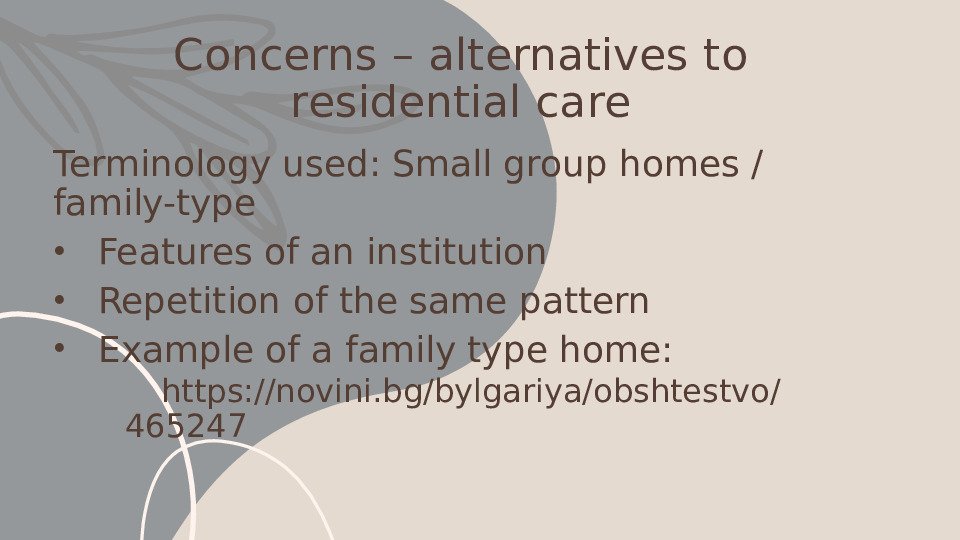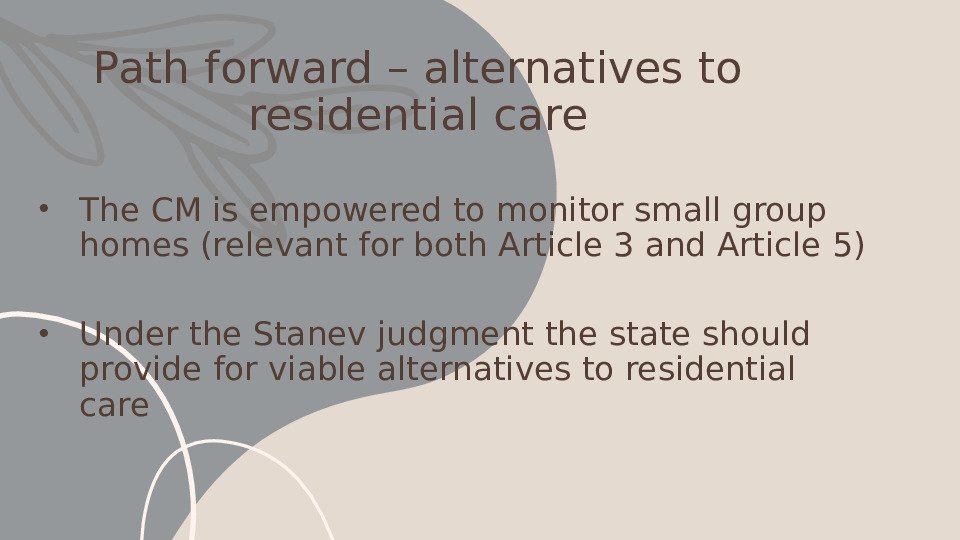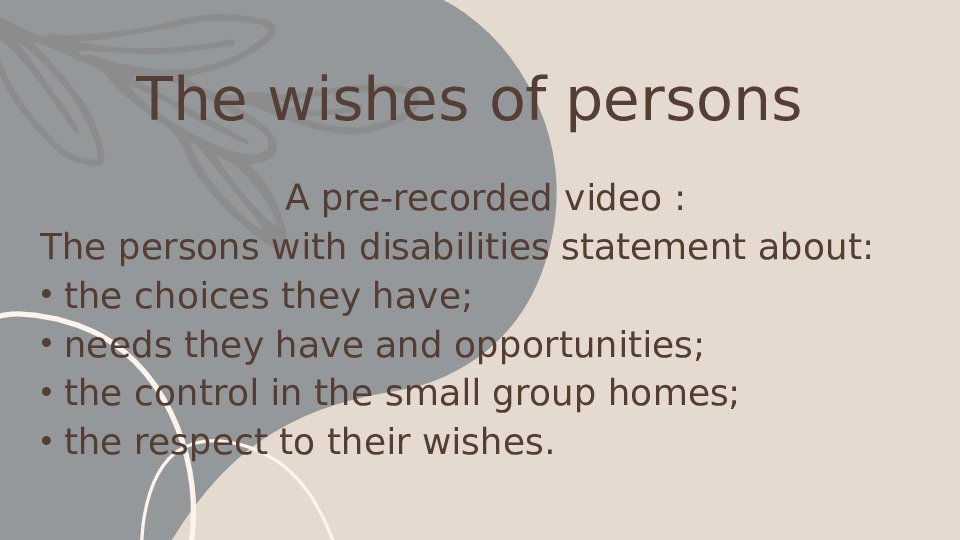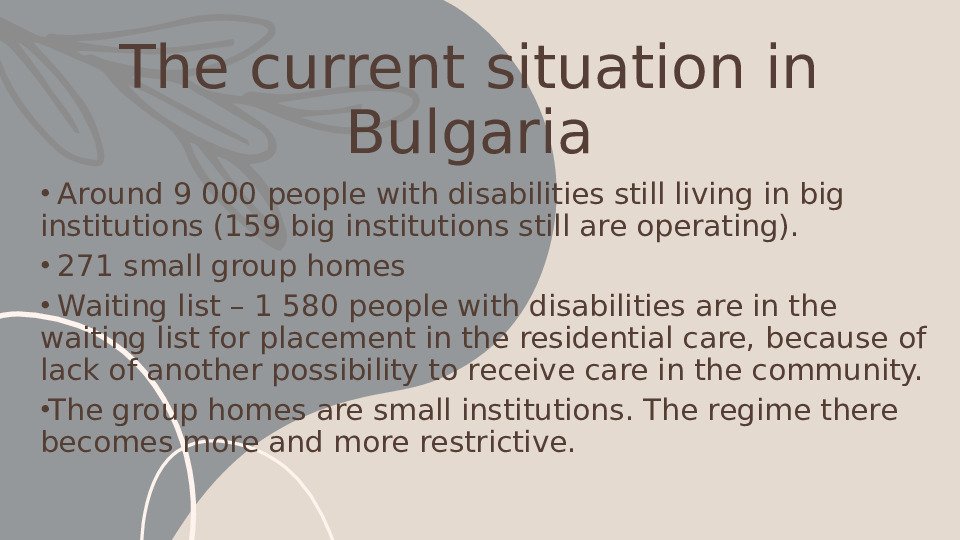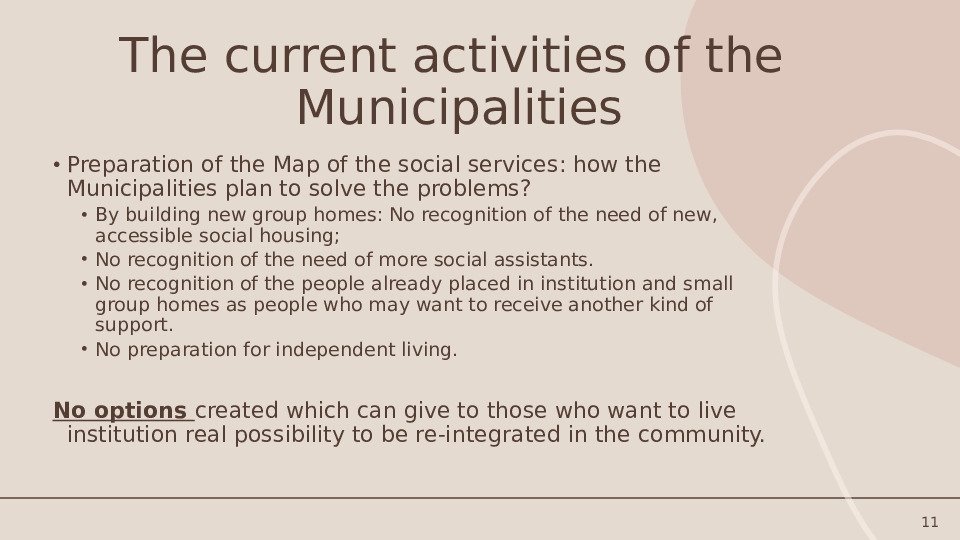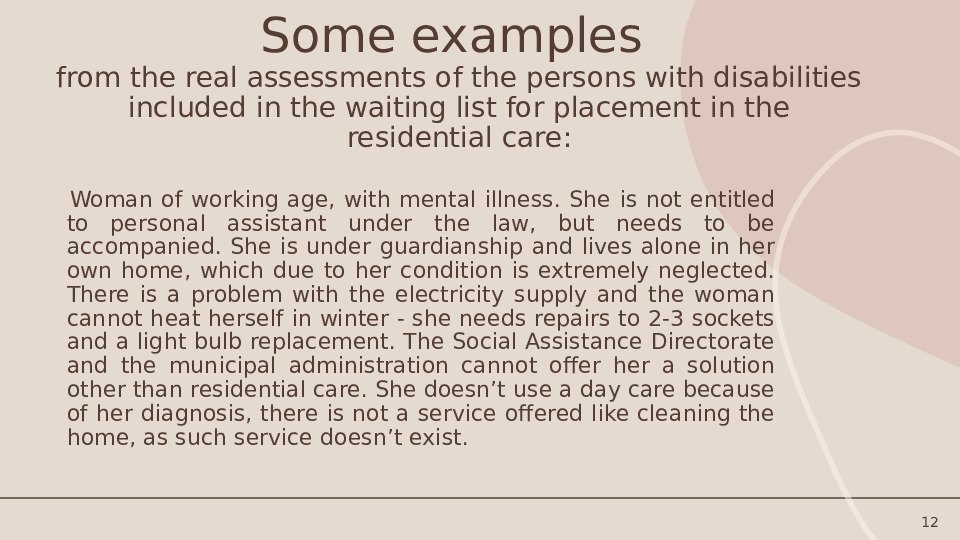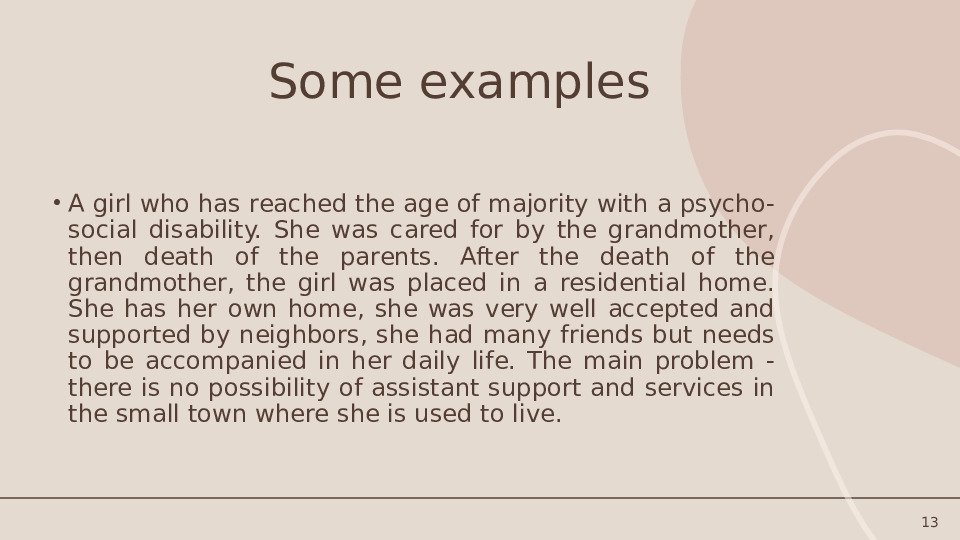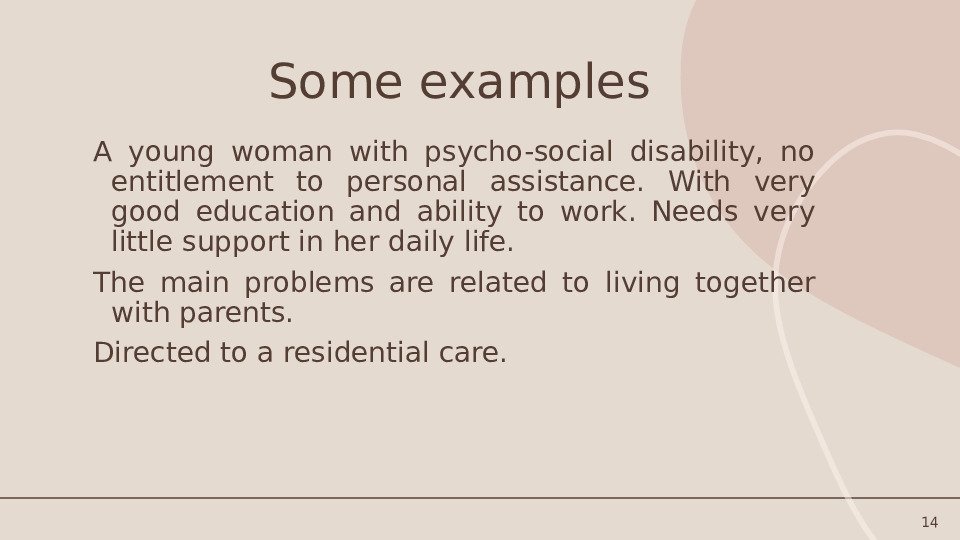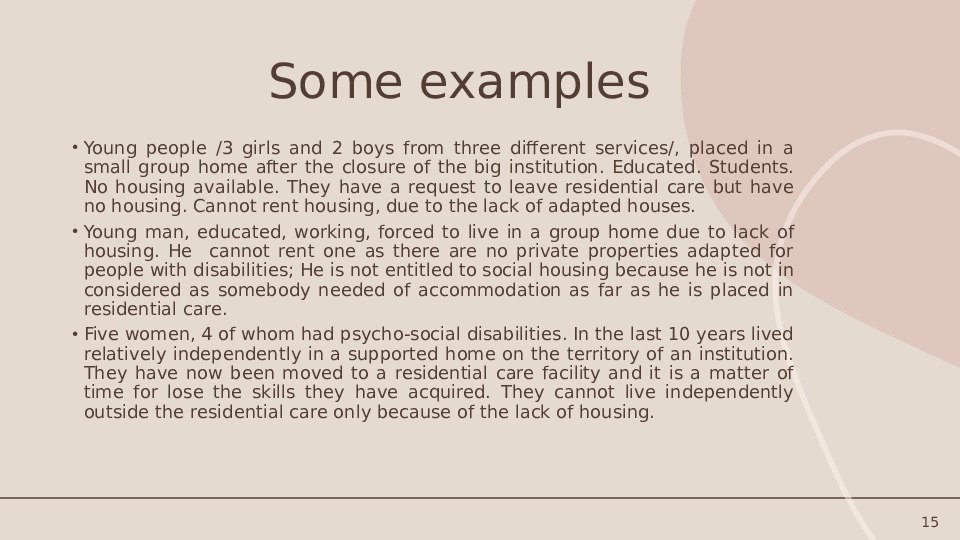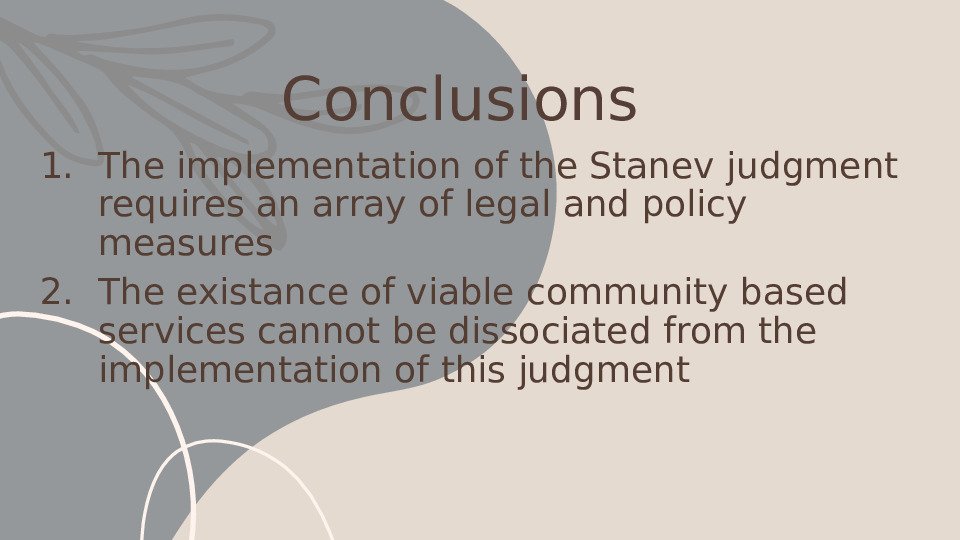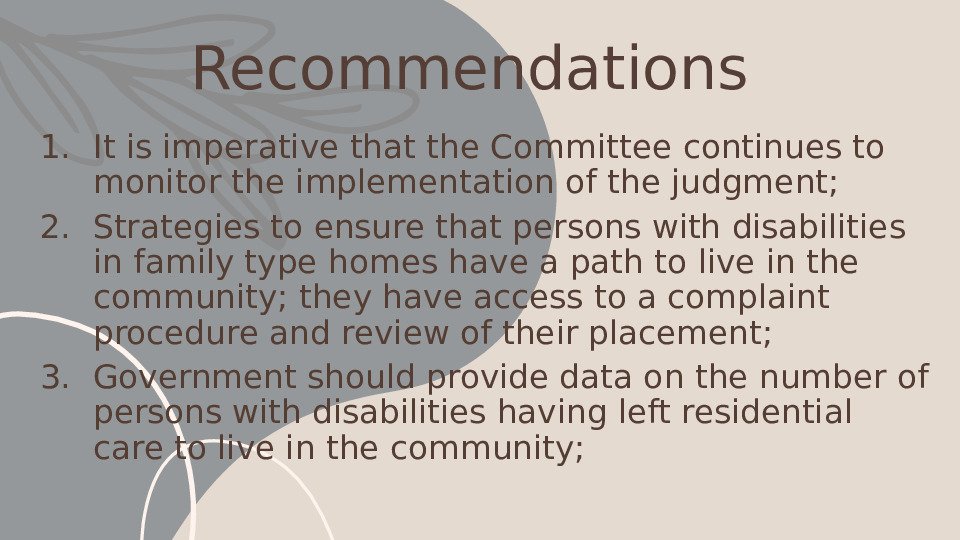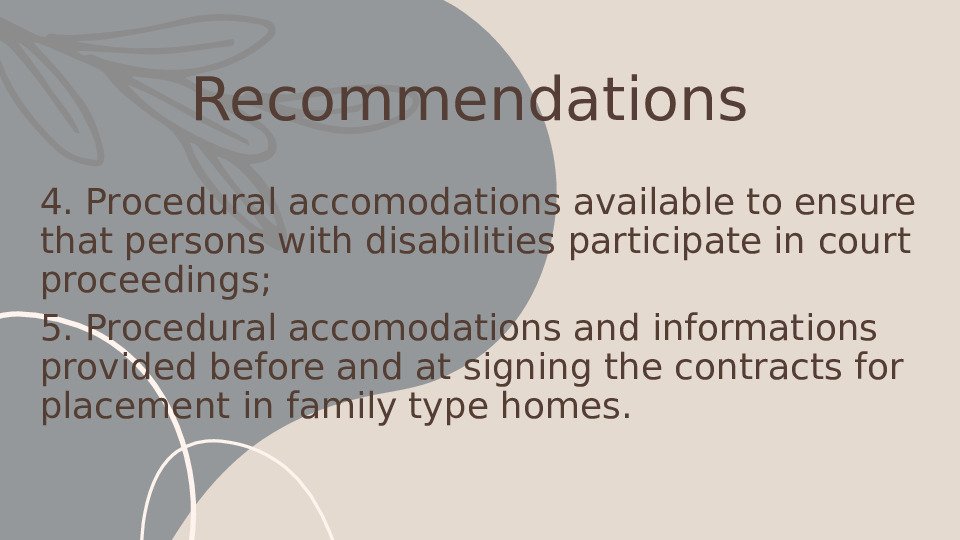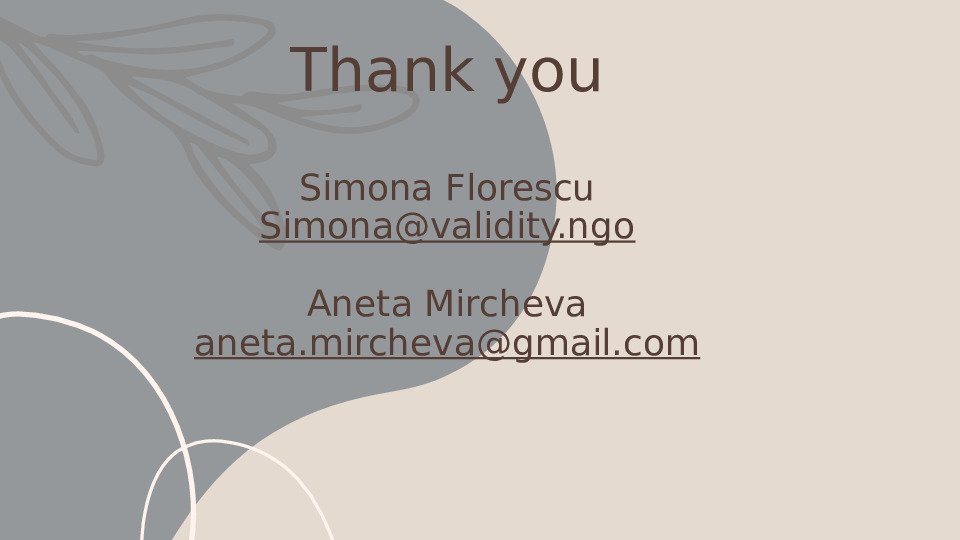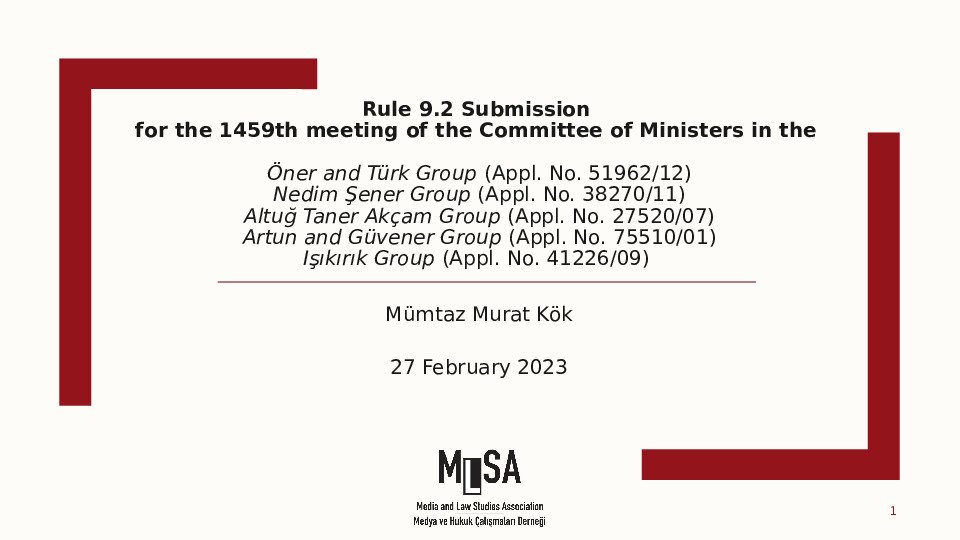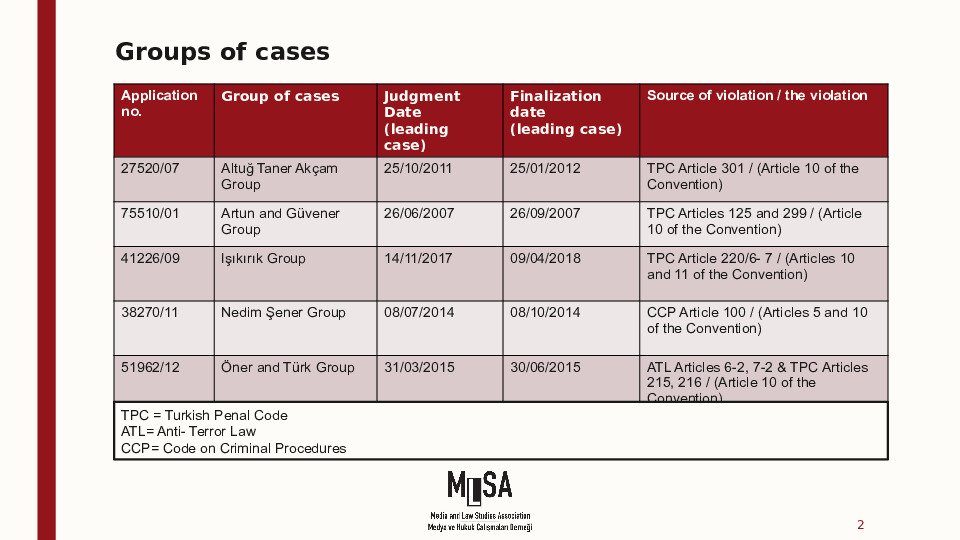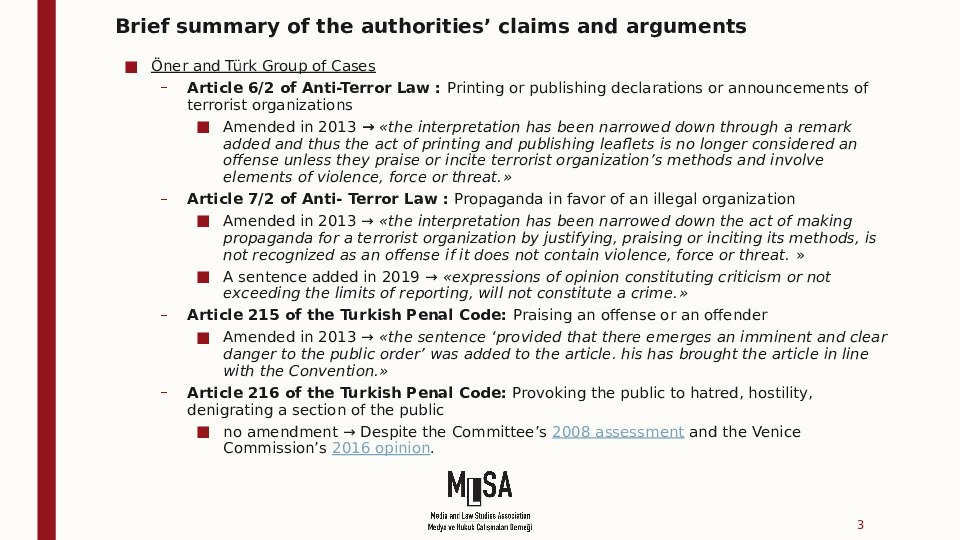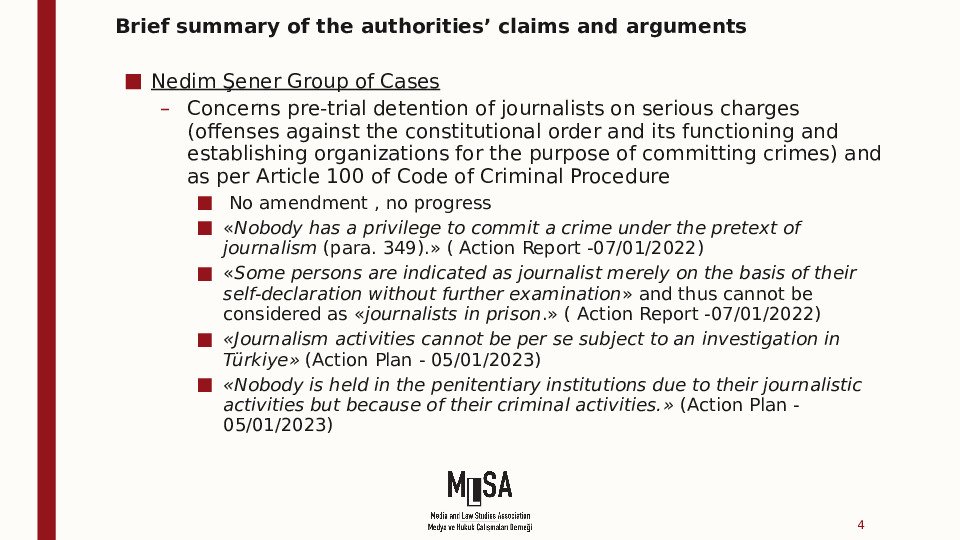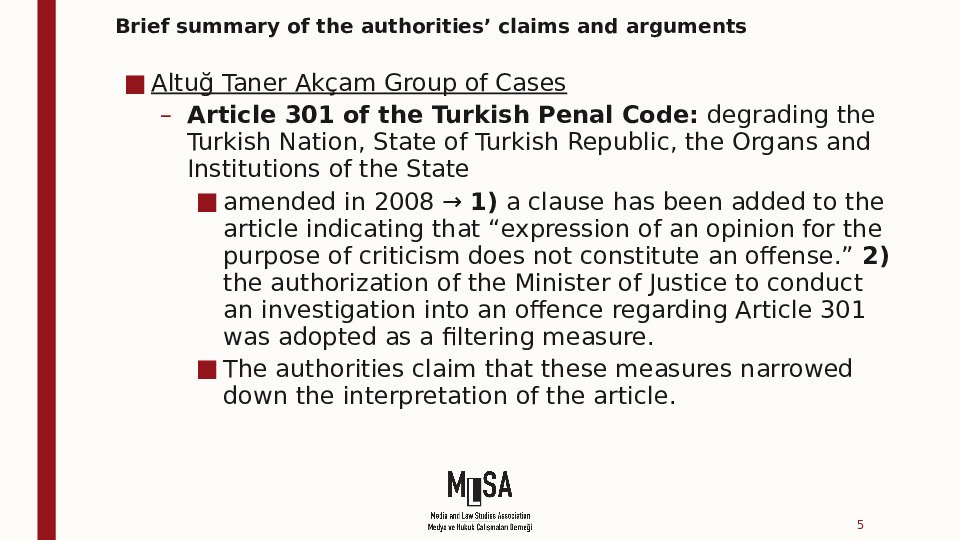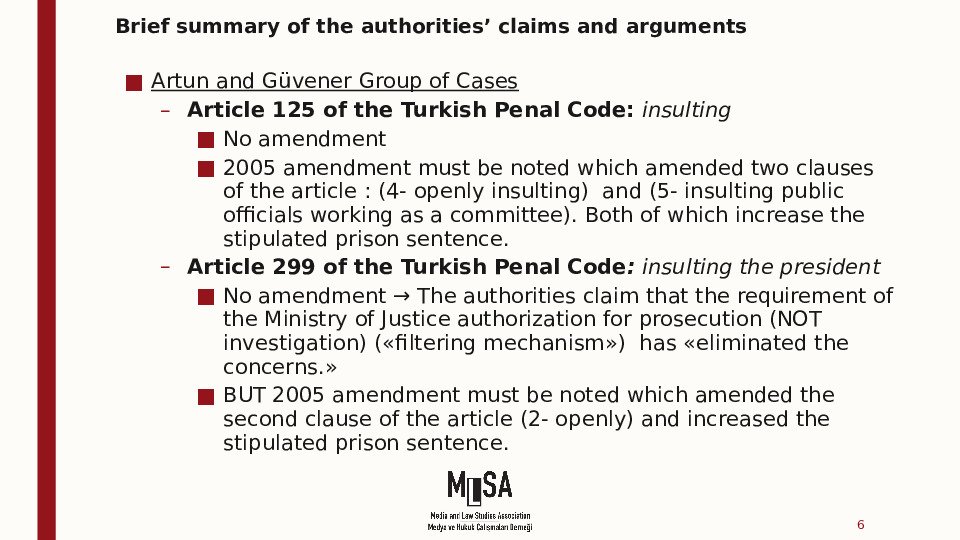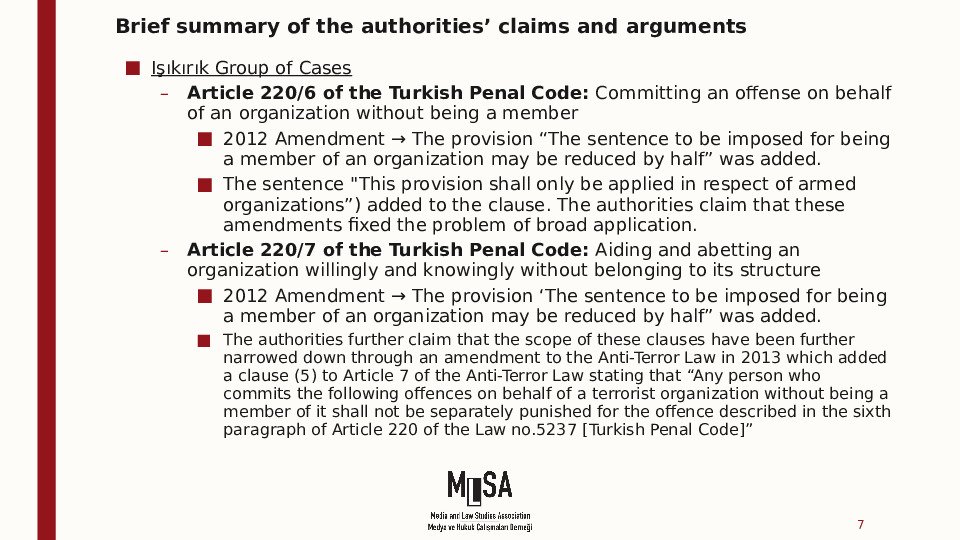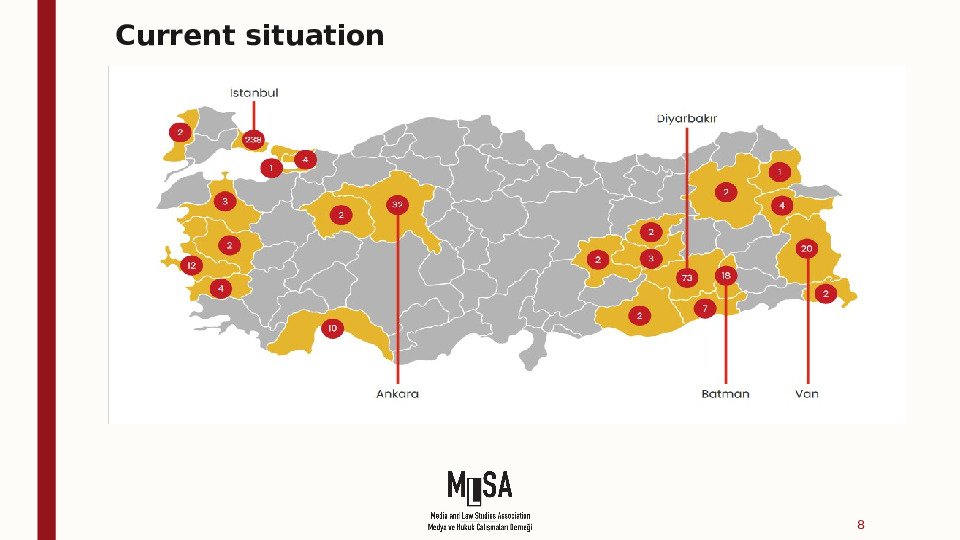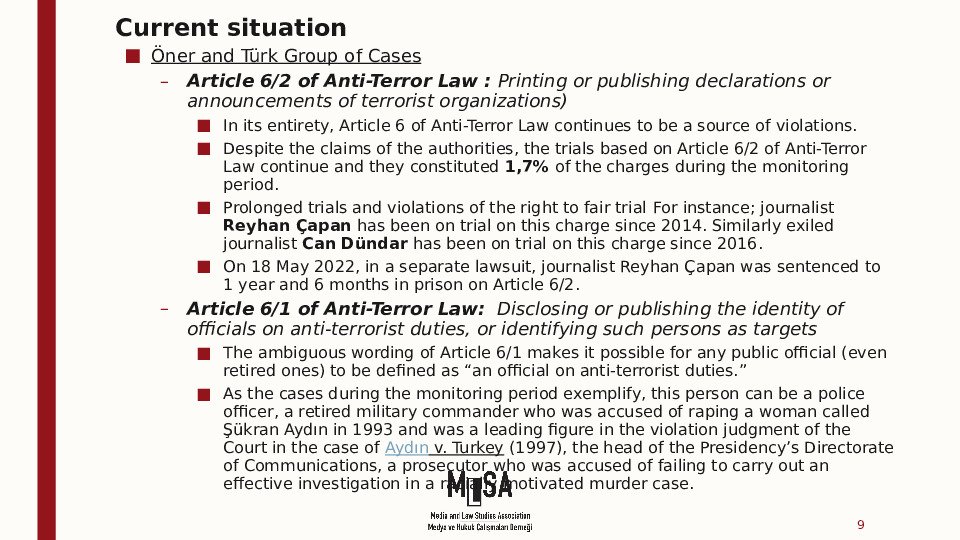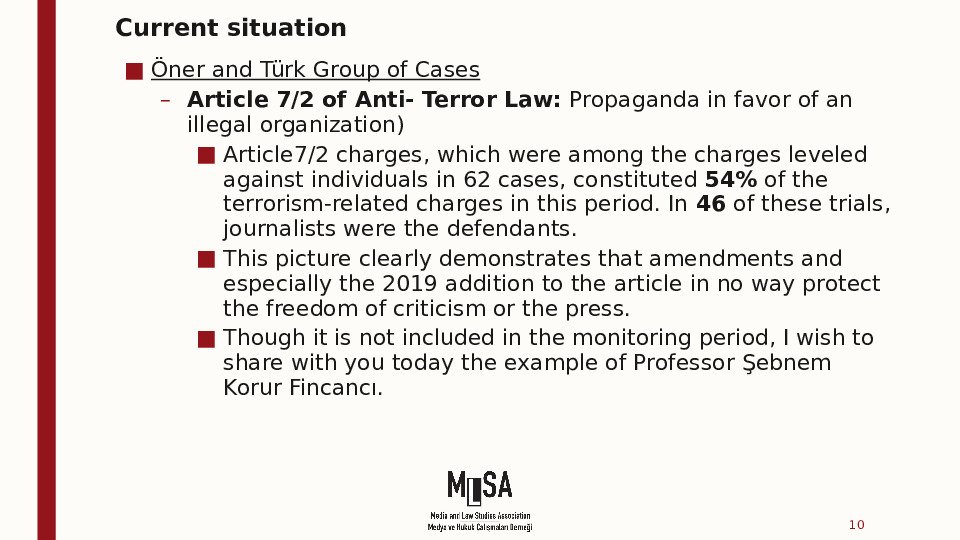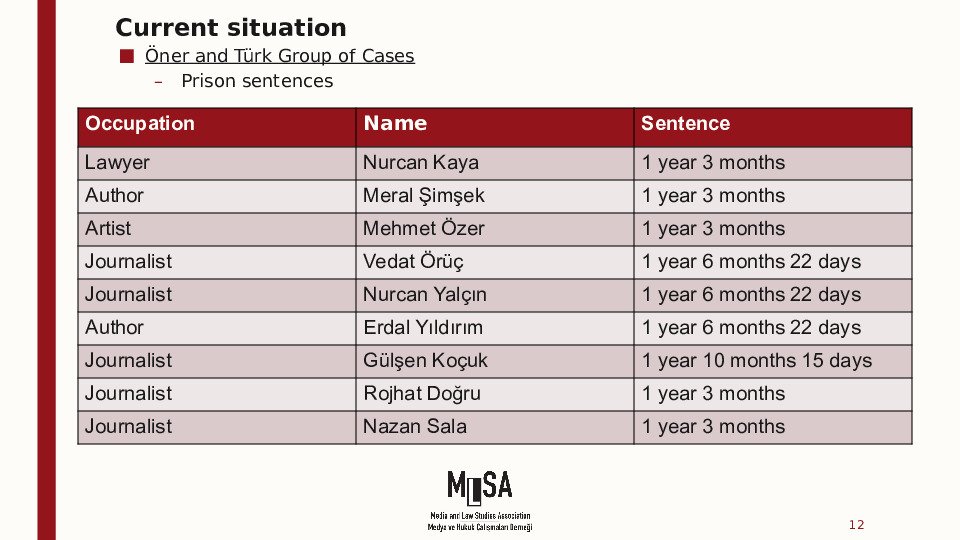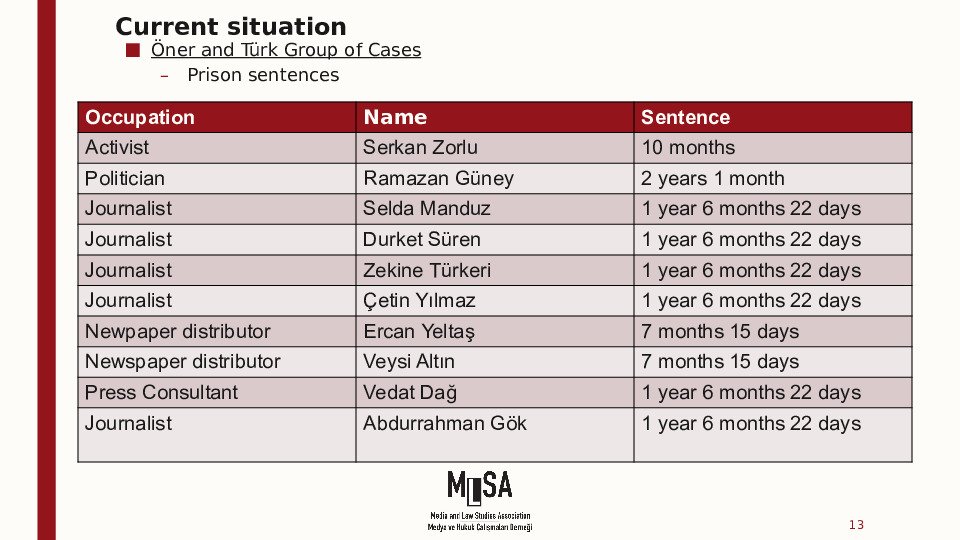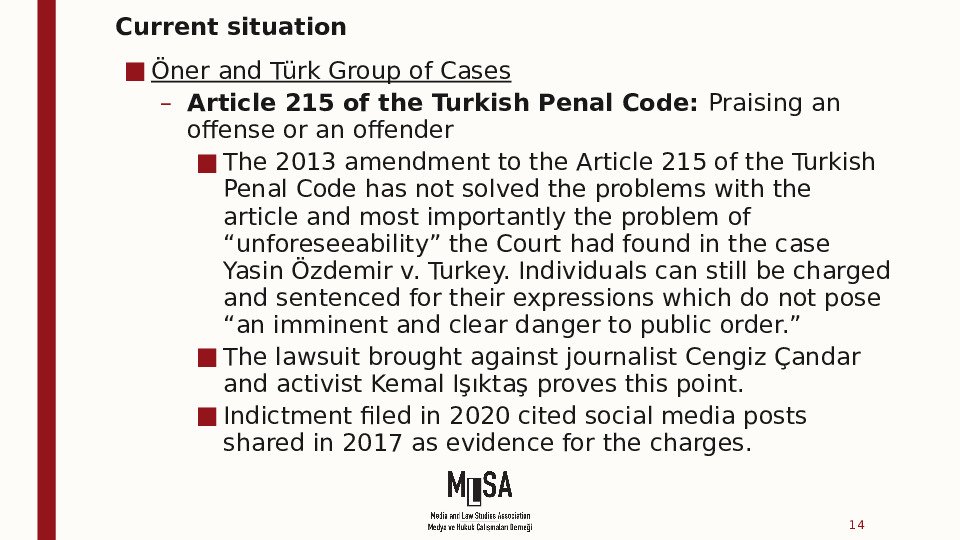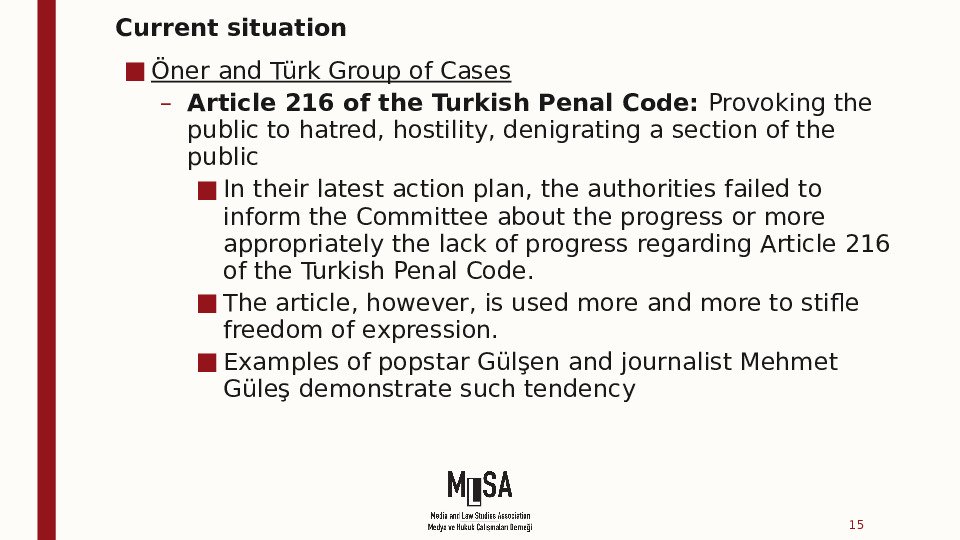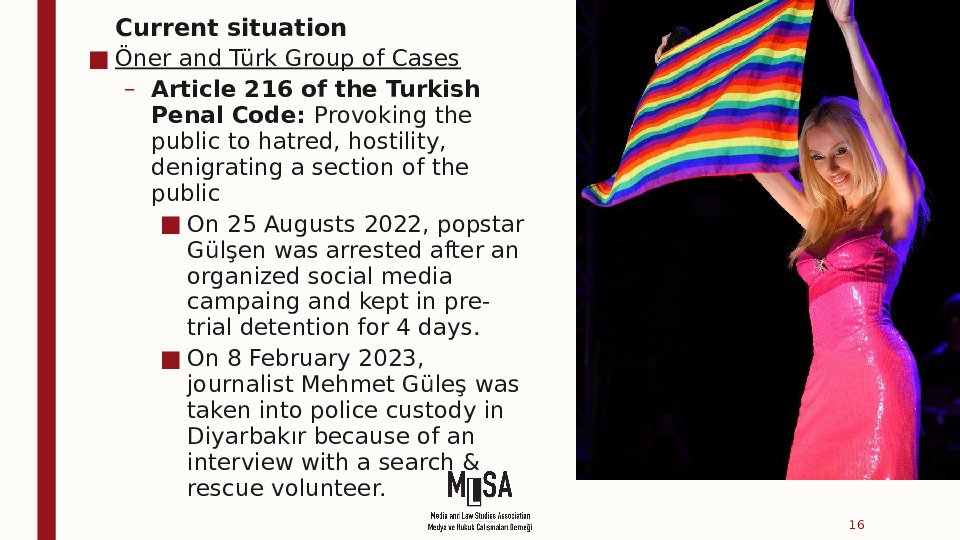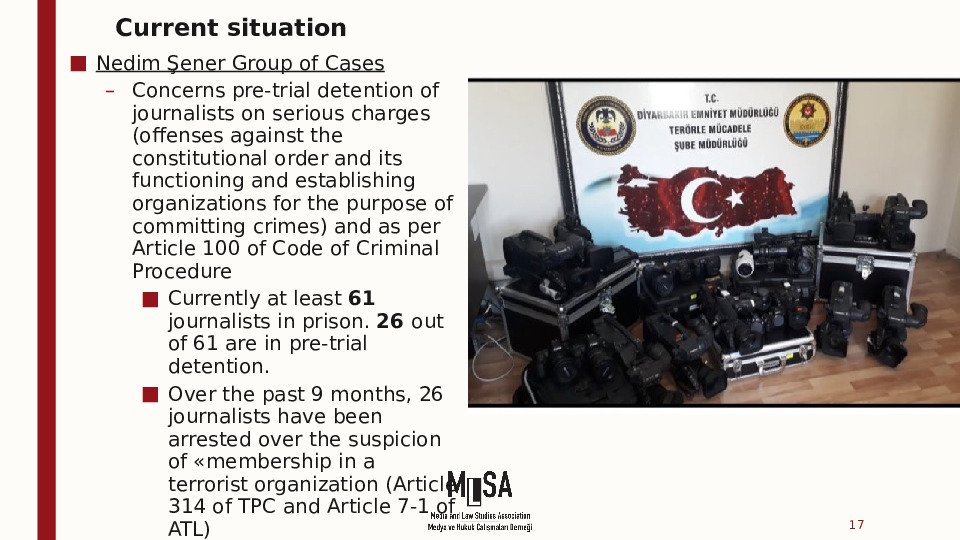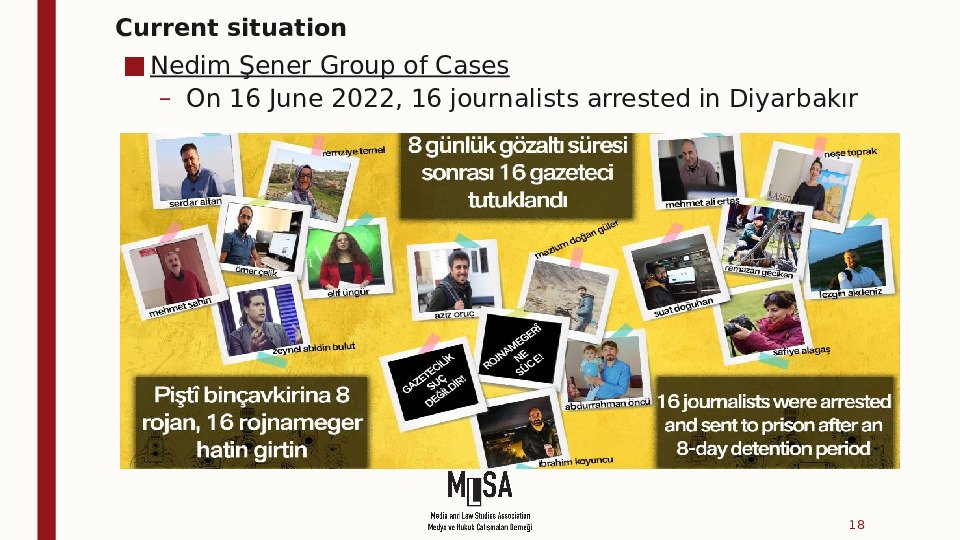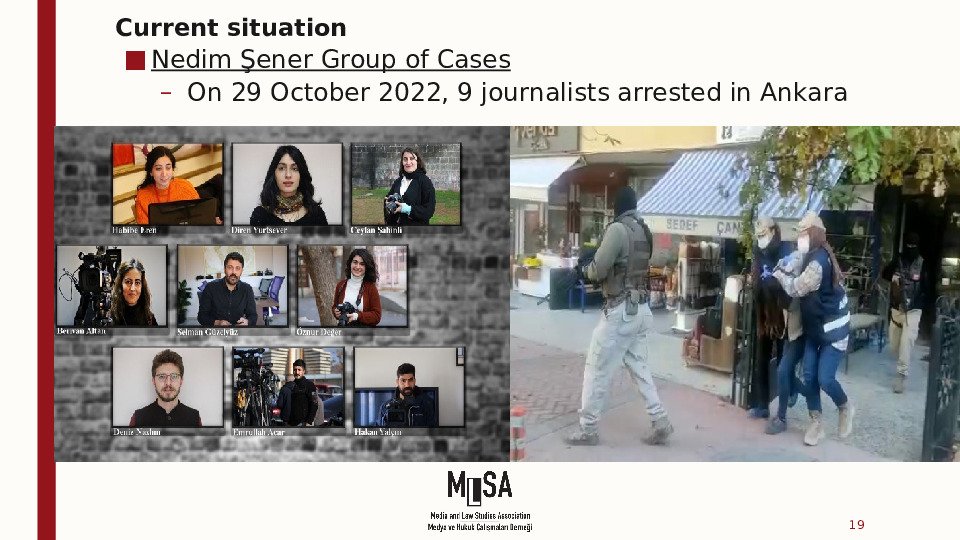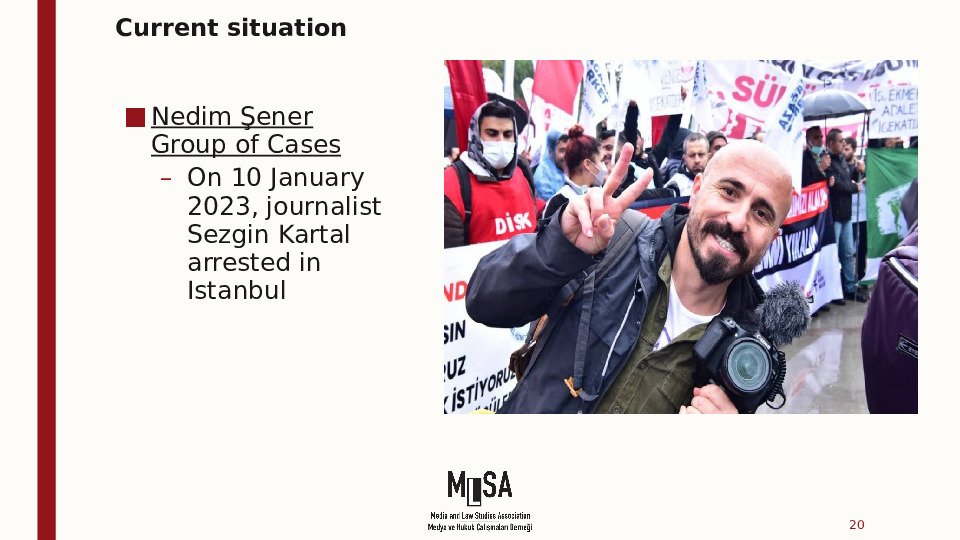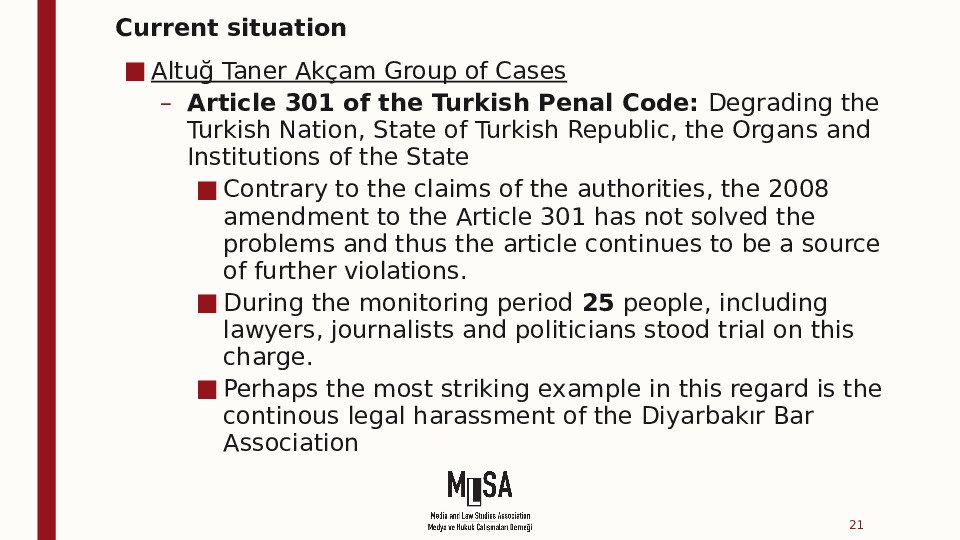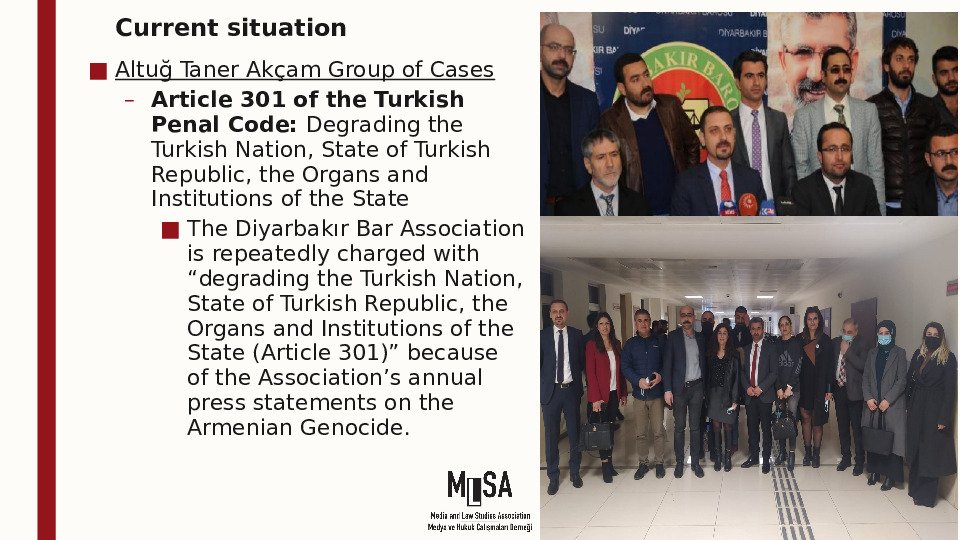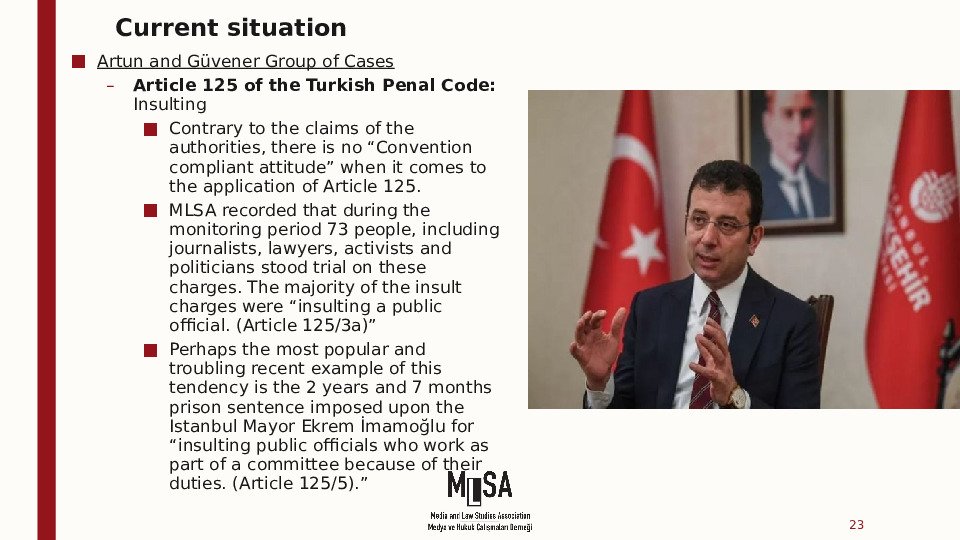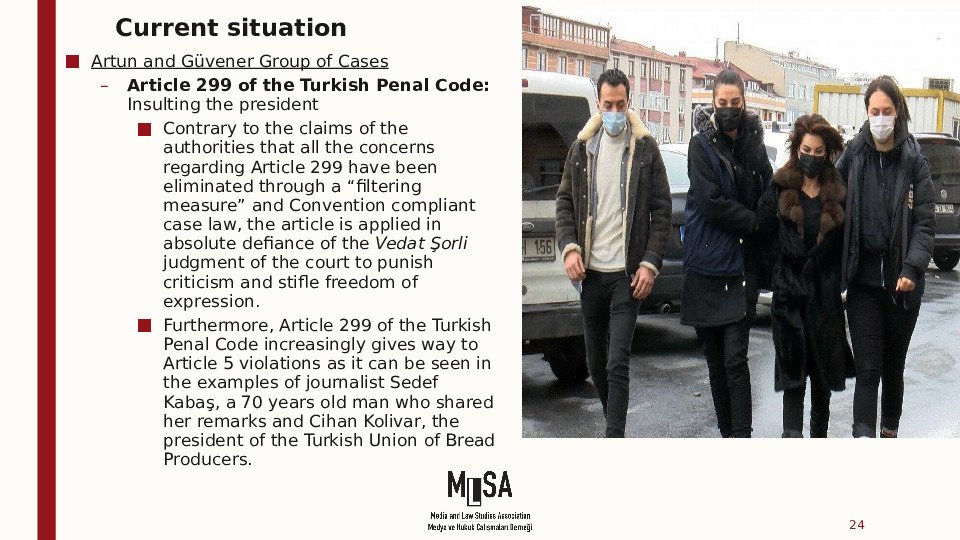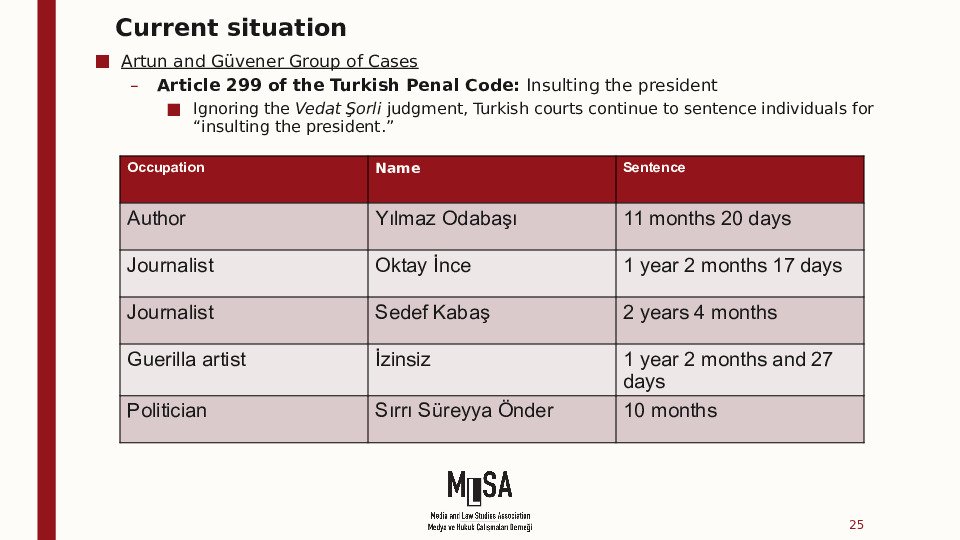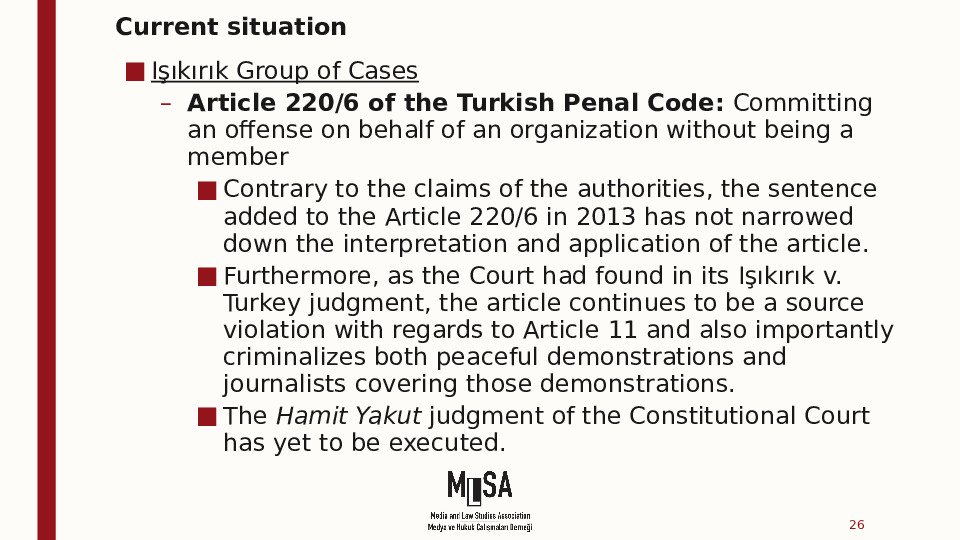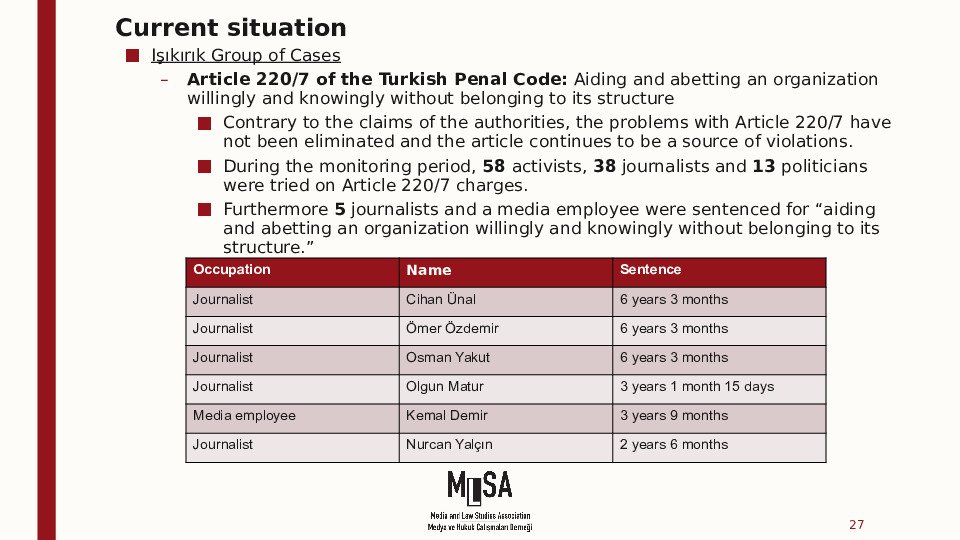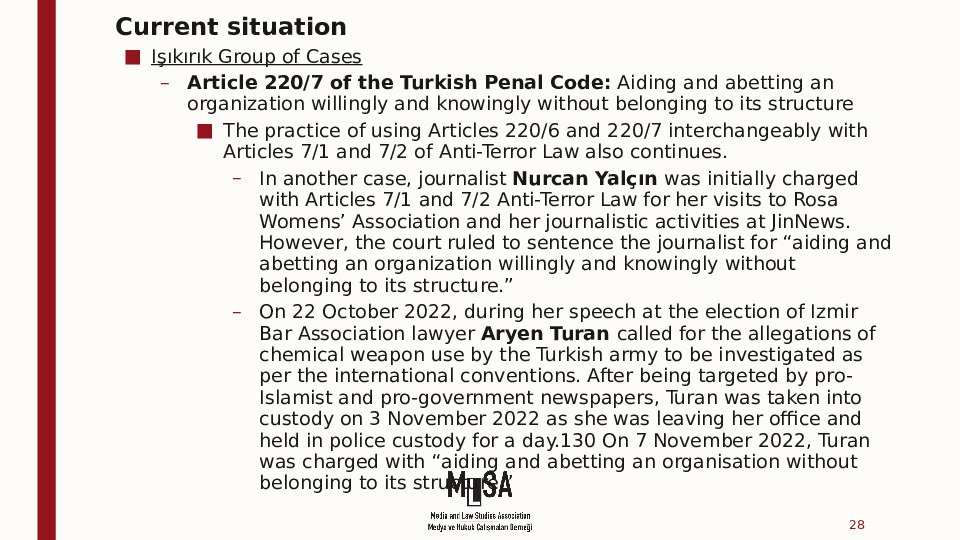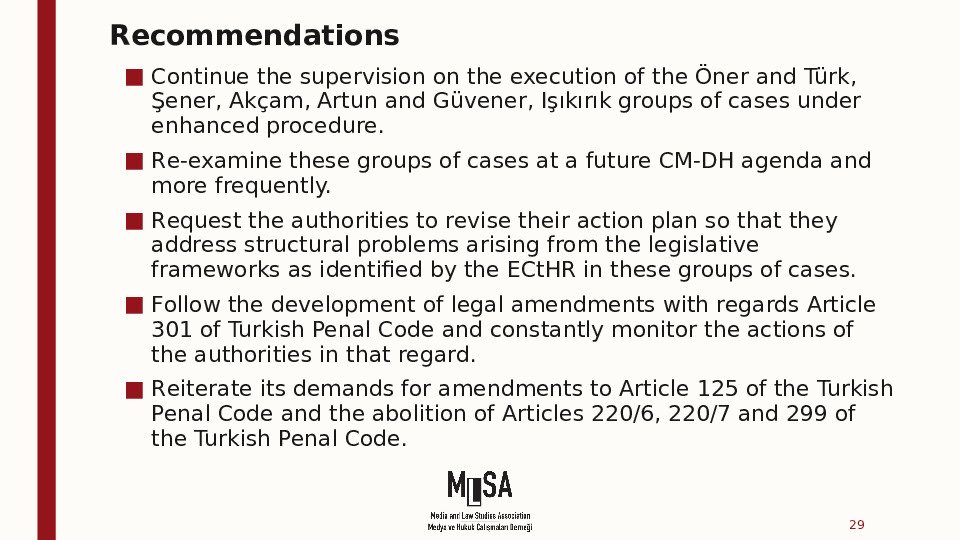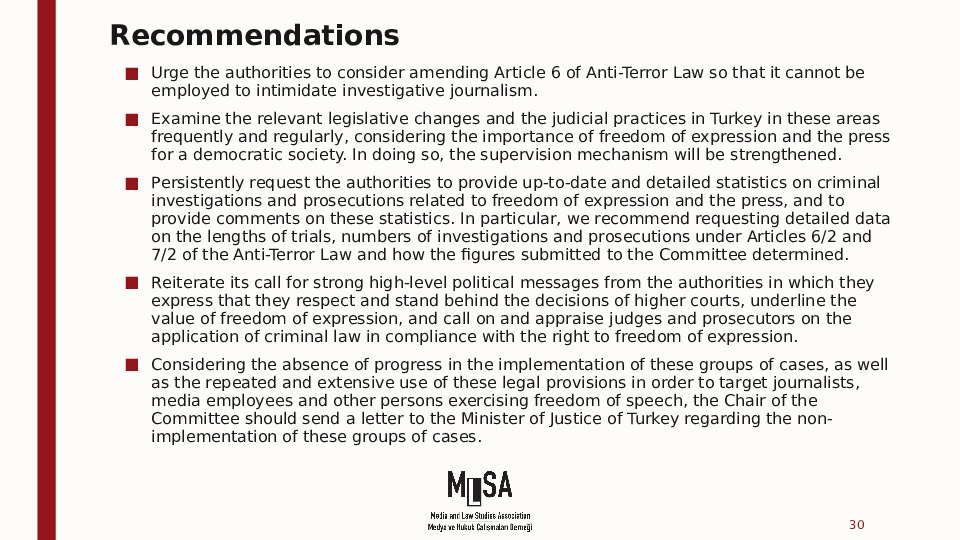EIN Civil Society Briefing November 2023 - Hungary, Türkiye, and Georgia
/On the 27th of November 2023, EIN held the latest civil society briefing for permanent Representations of the Council of Europe, ahead of the 1483rd Committee of Ministers Human Rights Meeting which takes place between 5th – 7th December 2023. The event was held in person in Strasbourg, and facilitated by Ioulietta Bisiouli, EIN Director.
The Briefing focused on the following cases:
Baka v Hungary concerns the lack of access to a court as regards the premature termination of the applicant’s mandate as President of the Supreme Court, which also led to a violation of his right to freedom of expression, presented by Erika Farkas, Legal Officer at the Hungarian Helsinki Committee.
Selahattin Demirtaş (No. 2) v Türkiye concerns the unjustified detention of the applicant without reasonable suspicion that he had committed an offence, with the ulterior purpose of stifling pluralism and limiting freedom of political debate. The case was presented by Ramazan Demir, Legal Representative of the applicant.
Identoba and others v Georgia concerns the lack of protection against homophobic attacks during demonstrations, presented by David Javakhishvili, International Litigation Lawyer at GYLA, and Toby Collis, Lawyer at EHRAC.
The Baka v Hungary case concerns the premature termination, via ad hominem legislative measures, of the applicant’s (President of the former Hungarian Supreme Court) term of office. The termination was found to have violated his right of access to a court as guaranteed by Article 6 § 1 because of the absence of judicial review. The Court found that these measures had been prompted by the views and criticisms expressed by the applicant on issues of public interest (planned major reform of the judicial system) and had violated Article 10 as they had not pursued any legitimate aim linked to the judicial reform at issue, nor had the measures been necessary in a democratic society.
The Hungarian Helsinki Committee discussed the lack of a remedy against removal and the judicial reform of 2023, setting out general measures required:
Providing guarantees for procedural fairness in cases involving the removal of judges
Ensuring that measures leading to the removal of judges will be open to effective review
The NGO also addressed the government’s excuse for non-execution:
“those measures which were criticised and put under scrutiny in the case of Baka, all resulted from a one-time constitutional reform” - this excuse is not valid
In 2023, there is still no remedy against removal:
The chief justice can be removed from office without legal remedy by 2/3 majority of the Parliament
The decision on impeachment is political and not subject to judicial remedy
The Hungarian Helsinki Committee also outline repeating patterns of political pressure on the judiciary:
Removal of judge Baka through ad hominem legislation
Removal of senior judges by forced early retirement via legislative acts
Election of new Kúria President through ad hominem legislation
Removal of a lower-court judge from the bench (case of judge Szabó) after she turned to the CJEU
Possibility of impeaching the Kúria President without judicial remedy
Overruling judicial decisions
The NGO provided comments on the Judicial Reform of 2023:
Hungary passed a judicial reform in May 2023
To fulfill undertakings towards the European Union
A possibility not taken to implement the Baka judgment
No new rules on the impeachment procedure, still no remedy
New rules on the eligibility and election of the Kúria President and Vice-president
More guarantees against undue interference by court administration
Hacking the requirement of excluding re-election of the Kúria President
The Kúria President cannot be re-elected, but can remain in office for an indefinite period
Undermines the whole reform regarding the status of the Kúria President
The Hungarian Helsinki Committee also discussed the freedom of expression violation and the ongoing chilling effect on judges:
A New Kúria President was elected in 2020 through ad hominem legislative acts of constitutional rank, without former experience as judge and against the objection of the National Judicial Council. The UN Special Rapporteur criticised this as “an attack against the independence of the judiciary in violation of the principle of separation of powers”, while the EC Rule of Law Report noted it was “not in line with European standards”.
The Chilling Effect
The chilling effect preventing judges from speaking out publicly against measures undermining the independence of the judiciary is caused by:
National measures (smear campaigns, political attacks, legal measures, abusive lawsuits).
Adopted and/or applied with the aim to dissuade or deter natural persons from fulfilling their professional duties.
Aiming at creating a self-censorship.
Since 2017, the Committee has called on the Hungarian authorities to fully guarantee and safeguard judges’ freedom of expression, to take measures to lift and countervail the chilling effect, and to evaluate the domestic legislation regarding guarantees against undue interference. The Hungarian Helsinki Committee emphasized that none of these expected measures were taken, and that the situation has not been addressed but rather aggravated.
Furthermore, smear campaigns against judges have continued, with the same pattern, in several waves:
Target: judges as members of the National Judicial Council (NJC)
Method: discrediting members of the NJC as judges
Aim: discouraging judges from speaking out
Smear attacks continue even during the NJC elections.
The new Kúria President has had an active role in the silencing of judges, having:
Joined smear campaigns against members of the NJC claiming that „decisions, communications and public appearances of the NJC are political activities”
Labelled the NJC as a „group of friends”
Upheld the legal force of the precedent of the Kúria according to which a preliminary question to the CJEU can be unlawful even after it was found incompatible with EU law
Challenged the new Code of Ethics before the Constitutional Court
As regards the New Code of Ethics for Judges adopted by the NJC, it significantly extends the freedom of expression of judges, especially with respect to criticising legislation. However, the Kúria President challenged the new Code before the Constitutional Court requesting its annulment and questioning the legal authority of the NJC to adopt the Code. The proceedings are still pending.
The Hungarian Helsinki Committee called on the Committee of Ministers to:
Continue examining the case under enhanced procedure
Take into account the changed context of the execution
Require legislative changes
to exclude political pressure through the Kúria President
to remove the possibility of prolongation of the mandate of Kúria President by political minority
to guarantee freedom of expression of judges in accordance with ECtHR judgments
Require Hungarian authorities to refrain from
public critique of judicial decisions
legislative steps overruling judicial decisions
smear campaigns against judges
Evaluate the domestic legislation regarding guarantees against undue interference
Relevant Documents
NGO Communications:
CM Decisions:
The Selahattin Demirtaş (No. 2) v Türkiye case concerns the arrest and pre-trial detention of, and criminal proceedings against, the applicant, a member of the National Assembly and one of the leaders of the Peoples’ Democratic Party (HDP, a pro-Kurdish opposition party).
The applicant’s legal representative, Mr. Ramazan Demir reminded the participants of the key facts of the case:
Mr Selahattin Demirtaş, who was at the time one of the co-chairs of and a member of parliament for the Peoples’ Democratic Party (HDP) was placed in pre-trial detention since 2016 on account of allegations that his speeches and statements incited acts of violence between 6-8 October 2014. He was not released after judgment.
The case was referred to the Grand Chamber, and he was placed in pre-trial detention again under new investigation related to events between 6-8 October 2014. According to the Grand Chamber judgment delivered in December 2020:
The second pre-trial detention decision was a continuation of the first pre-trial detention decision.
The applicant was detained with political motives under Article 18.
Mr. Selahattin Demirtaş must be released immediately.
Ramazan Demir outlined the Government’s arguments:
The Government’s Arguments
The applicant’s detention subject to the Court’s judgment has ended;
The current detention falls outside the scope of the present application;
New charges, evidence and allegations (i.e. witness and anonymous witness statements) were in substance different from those examined by the Court in its judgment;
The necessary individual measures have been taken.
The Government alleges that Mr Demirtaş’s continued detention, on the basis of a new charge, amounted to a new fact, raising a new problem, one that had not been examined by the Court. However:
The charges against the applicant have not changed in substance';
Witness/anonymous witness statements have not contained any substantially new facts capable of justifying a new suspicion and the substance of these statements had been based on facts that were similar or even identical to those that the Court had already examined in the Demirtaş v. Türkiye (no. 2) [GC] judgment;
The witness statements:
Are contradictory, inconsistent and false,
Their content and accusations essentially concern the events of 6-8 October and that Demirtaş is a member of/executive for a terrorist organization';
Are added to the case file approximately 2.5, 3.5, 17, 29, 32 and 33 months after the pre-trial detention decision and are used as tools to keep the applicant in prison.
Ongoing judicial harassment against the applicant:
The 4 years and 8 months prison sentence in the second set of proceedings was used as a tool to prevent the applicant’s release and to prevent his participation in any election.
There have been 47 cases filed against the applicant, and 10 cases remain pending under different courts.
New indictment prepared for the dissolution of the HDP and the political ban on politicians including the applicant.
The Constitutional Court has not delivered any judgment for the application related to the second pre-trial detention of the applicant since 7 November 2019.
In terms of recommendations, Ramazan Demir requested the Committee of Ministers to:
Request the Government of Türkiye to release Mr Demirtaş immediately;
Request the Government of Türkiye to take measures compatible with the Grand Chamber judgment and to drop all the charges brought against the applicant together with the removal of all other negative consequences of the constitutional amendment;
Urge the Constitutional Court of Türkiye to conclude, without delay and in line with the Grand Chamber judgment, the individual applications listed between paragraphs 23 and 25 of the applicant’s Rule 9.1 submission dated 17 May 2021;
Underline that the continuing detention of Mr. Demirtaş constitutes a violation of Article 46 of the Convention on the binding nature of final judgments of the ECtHR which may trigger Article 46/4 of the Convention;
Examine the applicant’s situation at each regular and human rights meeting of the Committee until such time that he is released;
Invite the Secretary General of the Council of Europe, member states and international human rights organisations to raise the case and the ongoing judicial harassment faced by the applicant in diplomatic talks between members of the Council of Europe and Türkiye;
Write a letter to the Minister of Foreign Affairs of Türkiye to urge the Government to fully execute the Grand Chamber judgment.
Relevant Documents
Applicant Communications:
NGO Communications:
CM Decisions:
The Identoba and Others v Georgia group of cases concerns several violations regarding the lack of protection against homophobic attacks or religiously motivated attacks by private individuals during marches/meetings.
GYLA and EHRAC provided participants with a summary of the group of cases & action plans/reports:
The Identoba group is a collection of cases from Georgia concerning:
Degrading treatment of the applicants on account of abusive and humiliating police conduct, motivated by homophobic and/or transphobic hatred; and/or
Authorities’ failure to provide adequate protection against, and in some instances official acquiescence and connivance in, inhuman and degrading treatment inflicted by private individuals on LGBTI activists and Jehovah’s Witnesses; and/or
Absence of effective investigations into these facts, including lack of investigation into discriminatory motives, including issues of discrimination on LGBTI status, religious status (Jehovah’s Witness/ Muslim groups),
A number of cases in the group have been closed, but 3 remain open, and individual measures have been insufficient:
Summary of Action Plans/Reports:
The Government provided early Action Plans in 2016 - 2017, and annual Action Reports since 2018. An Action Report was submitted recently (for the December 2023 meeting) asking the Committee to end supervision.
The report outlines recent individual measures – in summary, investigations are ongoing and 2 persons have been charged in the Mikeladze case. No police officers have been charged or identified in the other cases.
Regarding general measures, the Action Report emphasized:
Zero tolerance messages against hate crimes is a ‘priority’ and an ‘ongoing process.’
Authorities cooperate on the organisation of Pride events. However, it was not possible to hold the July 8, 2023 Tbilisi Pride event: “a particularly large number of counter demonstrators made it complicated to control them in a wide area.”
The investigations of attacks during previous marches are ongoing.
A department of human rights protection was set up and specialised investigation of hate crimes was developed through hate crime training (only specialised investigators/ prosecutors investigate hate crimes).
Collecting data: a memorandum was signed on data collection. Complete data for 2022 was published.
The National Human Rights Strategy was approved and adopted in 2023, and authorities are now working on an Action Plan.
GYLA and EHRAC outlined the status of individual measures:
Individual Measures
Aghdgomelashvili and Japaridze v. Georgia (App. no. 7224/11)
To date, no individual has been determined charged or convicted.
Victims have not been granted adequate access to pertinent information or documentation.
The criminal responsibility of police officers will be excluded due to the expiration of the statute of limitations on December 15, 2023
WISG and Others v. Georgia (App. no. 73204/13)
Not a single individual has been found criminally responsible or held to account.
Prosecutor declined request for the acknowledgment of all those interviewed as victims.
Mikeladze and Others v Georgia (54217/16)
No investigative activity took place between 2015 to 2021.
Criminal charges were brought against two former police officers.
For the remaining applicants: investigation ongoing and not yet granted victim status.
GYLA and EHRAC outlined developments pertinent to general measures:
General Measures: Zero-tolerance messages
Anti-LGBT sentiment and statements continue to form at the highest points of Government. The NGOs provided statements made by the Prime Minister as an example:
“March should not take place as it is unacceptable to the majority of the population”, then he followed up on this by saying “We have our traditions, rules and everyone should respect our rules and traditions. … I would also like to point out that, unfortunately, behind the organizers ... are revanchist, radical groups. In particular, the radical opposition led by Saakashvili. They are involved, absolutely, I declare this with full responsibility, that they are organizing this march.” - Prime Minister- Irakli Garibashvili
Shortly after, the angry mob started to attack journalists and offices of various NGOs.
GYLA and EHRAC highlighted the impact and chilling effect on freedom of peaceful assembly from these cases:
5 July 2021 - Publicly organized violent attacks on journalists because of their support for LGBTQI
More than 50 journalists were beaten and some were hospitalized while covering a protest against a gay rights rally in Georgia's capital, Tbilisi;
Due to the large-scale aggression of violent groups, the “Pride March” was canceled;
None of the organizers of the hate groups have been charged;
No investigation has been initiated into the alleged violations of State itself.
In 2022, Tbilisi Pride decided not to hold a March of Dignity - Chilling Effect';
8 July 2023 - At least 2000 anti-LGBTIQ+ individuals attacked the NGO Tbilisi Pride’s Pride Festival in Tbilisi, Georgia;
Tbilisi Pride had to cancel all the Pride-related events following the attack;
None of the organizers or participants of the hate groups have been charged.
The NGO highlighed deficiencies of the investigation of hate crimes and refusal of establishment specialized investigative unit:
The investigative units are not launching investigations.
The government refuses to initiate investigations with respect to the omissions of police officers and the negligence of MIA's high-ranking officials.
The prosecutor's office continues to refuse to grant victim status or involve victims.
The government has not established a specialized investigative unit.
Discriminatory motive is not included as an aggravating factor for administrative offences.
Results of impunity
Aleksandre Lashkarava, a cameraman severely beaten by members of a hate group, passed away soon after event. The investigation is still ongoing.
Some journalists have left the country, while others have left the profession.
Due to the physical injuries sustained, cameraman Ilia Tvaliashvili suffered permanent negative consequences on his body and is under restricted work.
The organizers of hate groups continue to publicly plan assaults on Pride events. None of them have been charged or detained.
The legal representatives of the victims do not even have access to the criminal case materials related to the organizers.
The National Human Rights Strategy and Action Plan
“The National Strategy for the Protection of Human Rights for 2022-2030 was adopted by the Parliament in March 2023 without including the needs of the LGBTI community”. - Public Defender of Georgia
GYLA and EHRAC concluded with their individual and general measures recommendations to the Committee of Ministers:
Individual measures
The responsible authorities should carry out effective, timely, independent investigations, including identification of police officers involved, and ensure that statute of limitations do not lead to impunity;
Authorities must reclassify the crimes commensurate with their seriousness; and
Authorities should grant victim status and adequate victim participation.
General measures
Authorities must create a specialized investigative unit capable of investigating the hate crimes;
Authorities must observe its positive obligation to protect LBGTQI persons at events from violence and effectively investigate these incidents, particularly those arising out of the violence on 5-6 July 2021, and 08 July 2023, and particularly the organisers of the events;
The Government must reconsider its official tolerance of the repetitive violent acts committed by organizers of hate crimes, and discontinue anti-LGTBQI sentiments;
Together with civil society actors, the State should establish the measures necessary to enable the safe and peaceful gatherings of LGBTQI activists and take preventive measures to deter violence, hatred and discriminatory attitudes and behaviour.
Relevant Documents:
NGO Communications:
NHRI Communications:
CM Decisions:


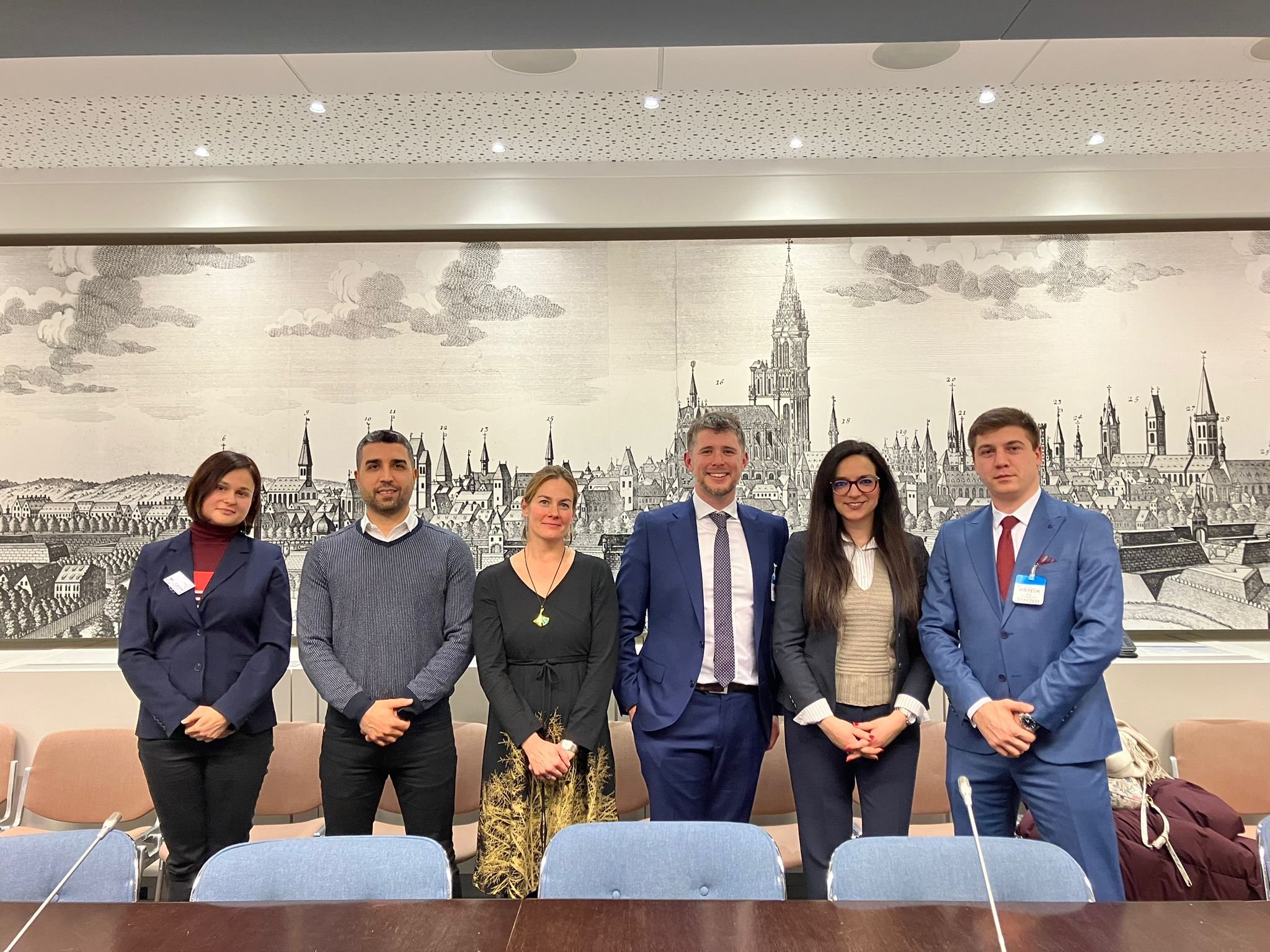
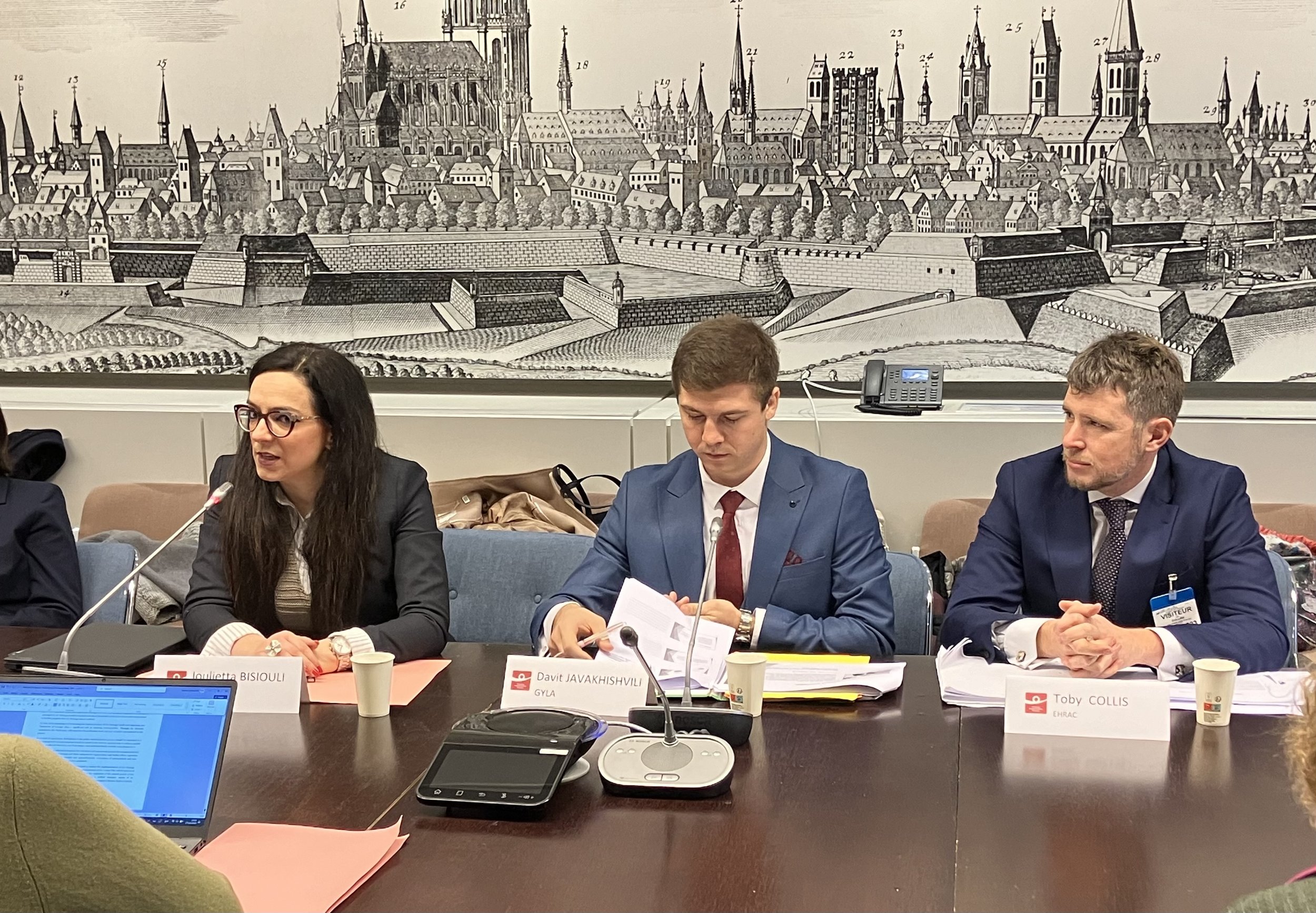
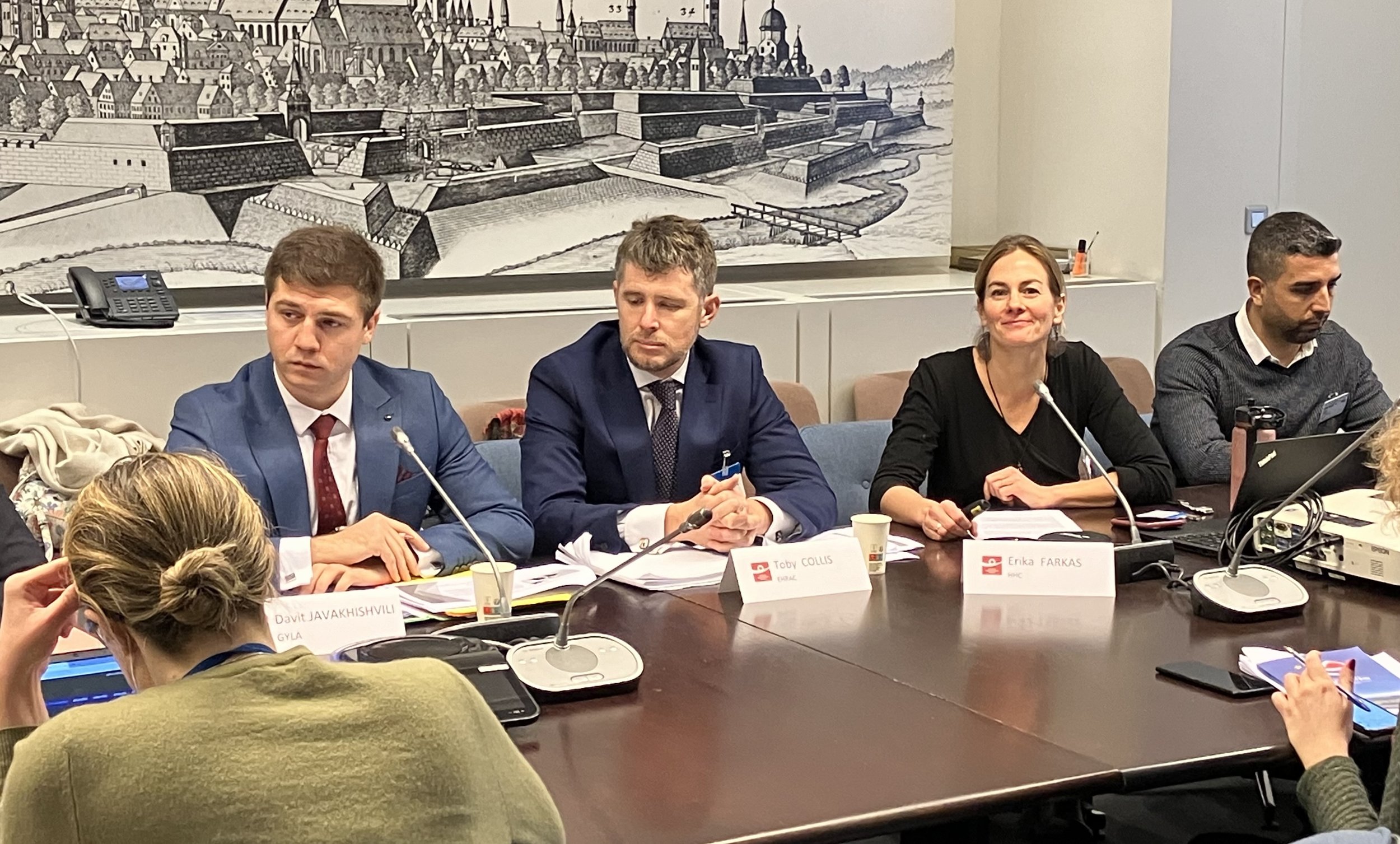
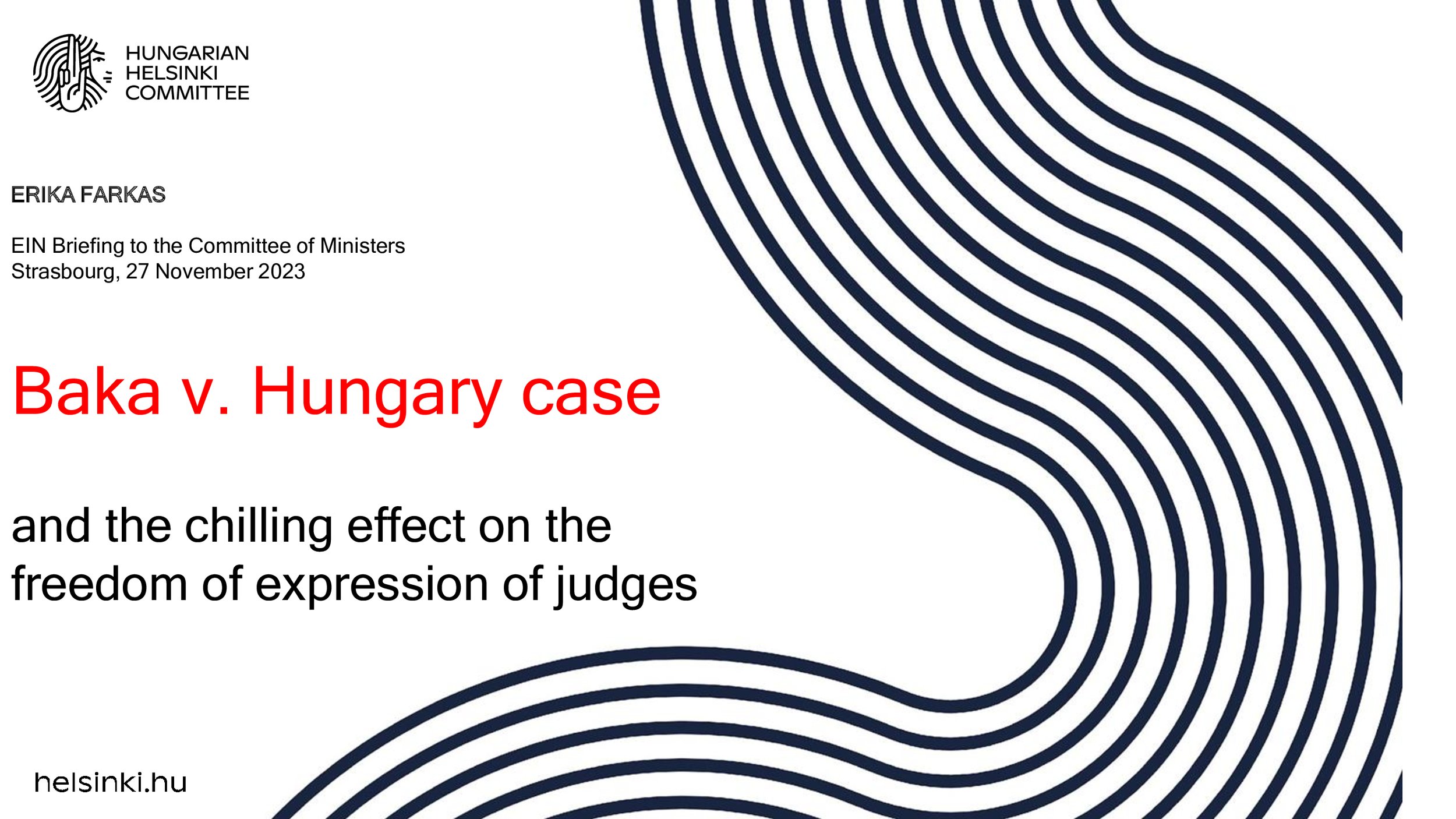

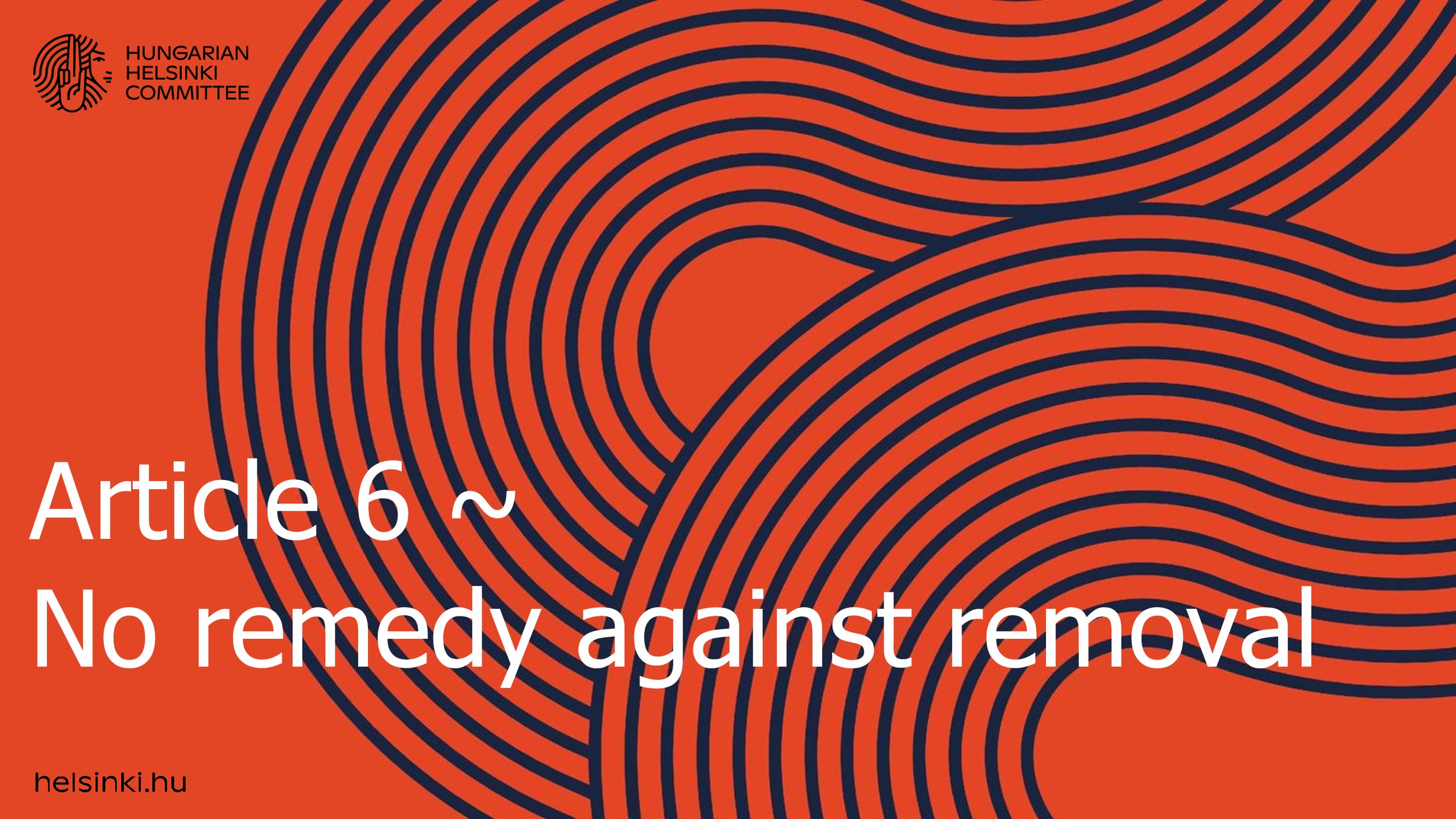

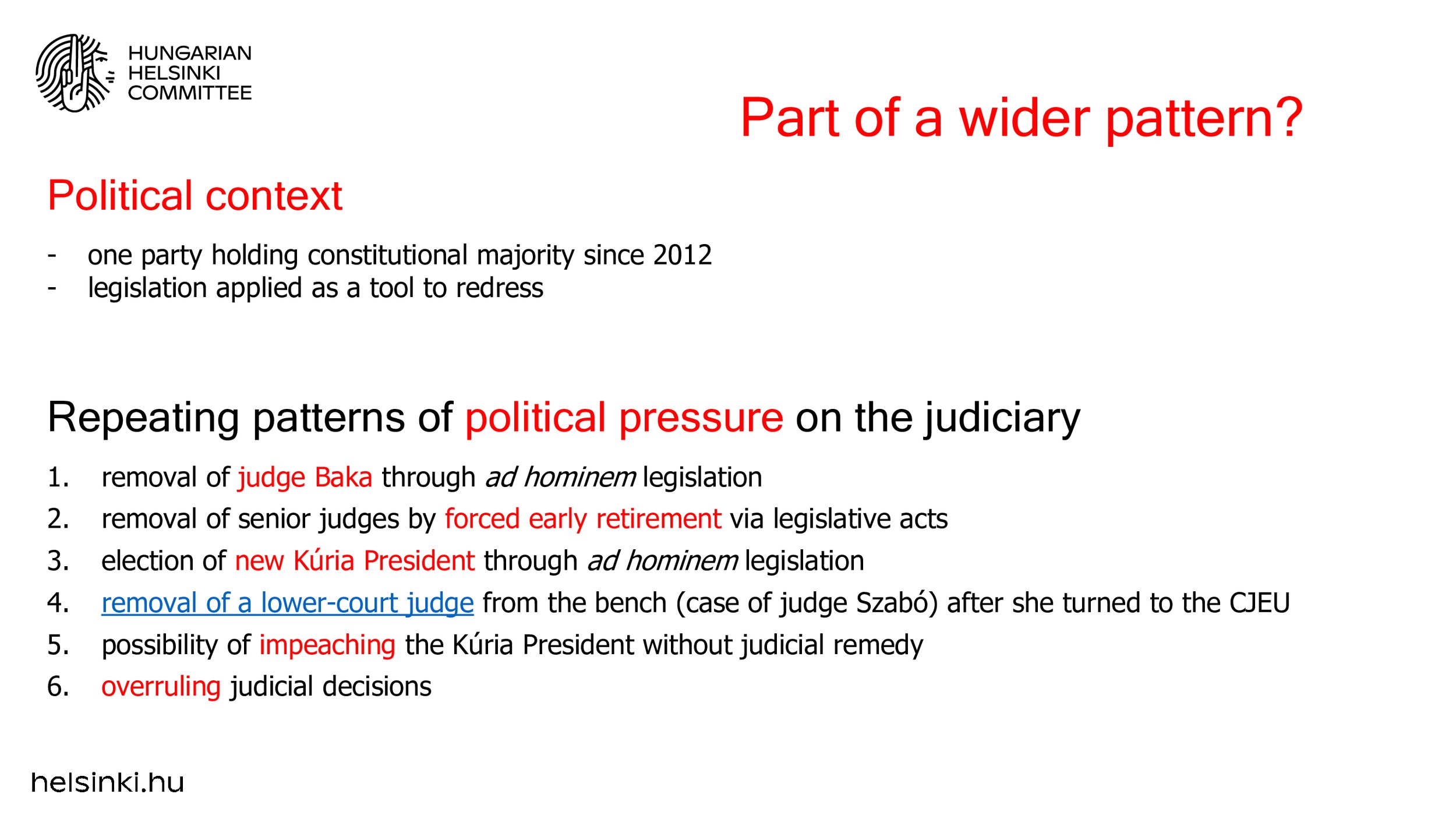
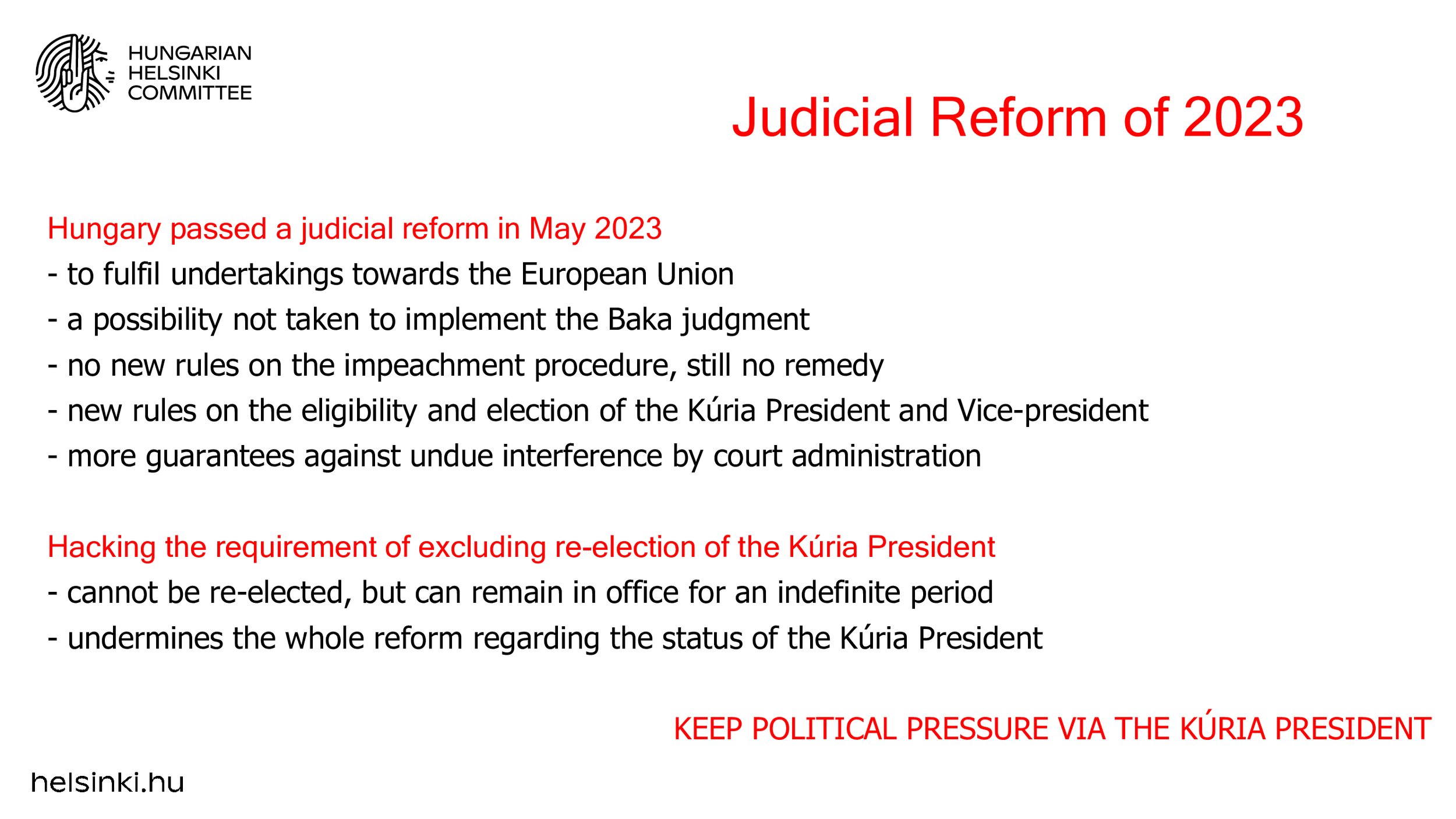


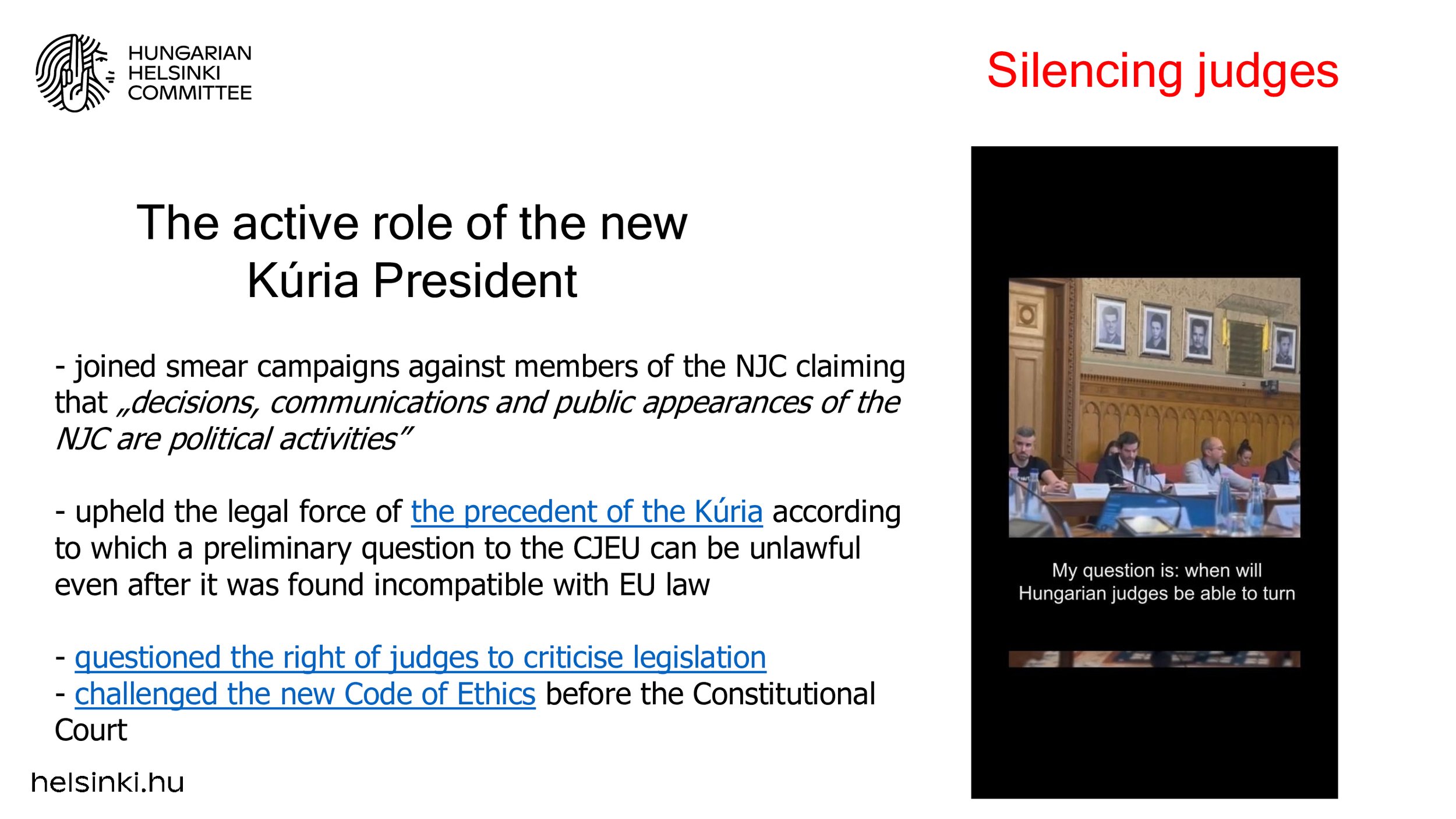
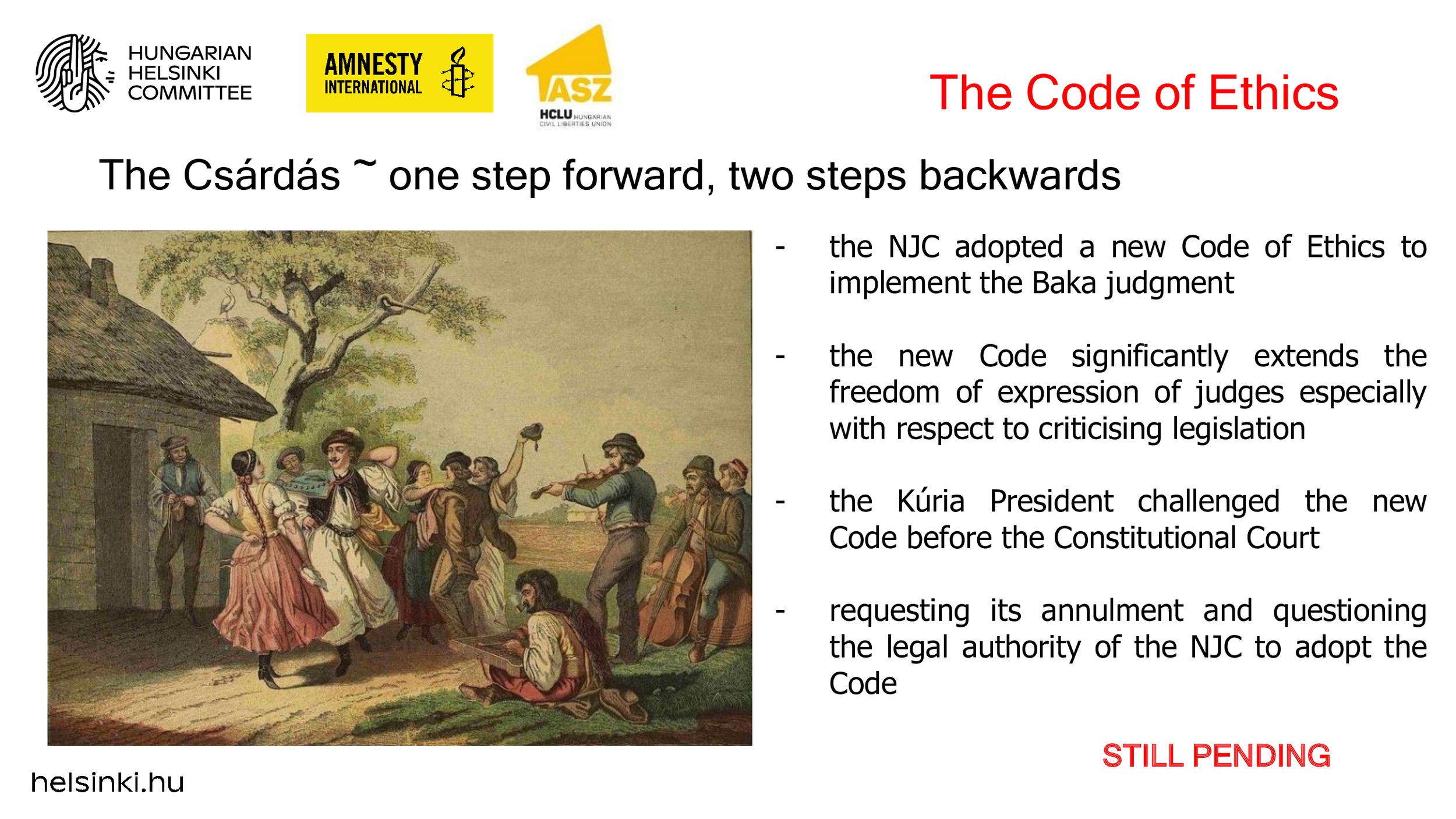
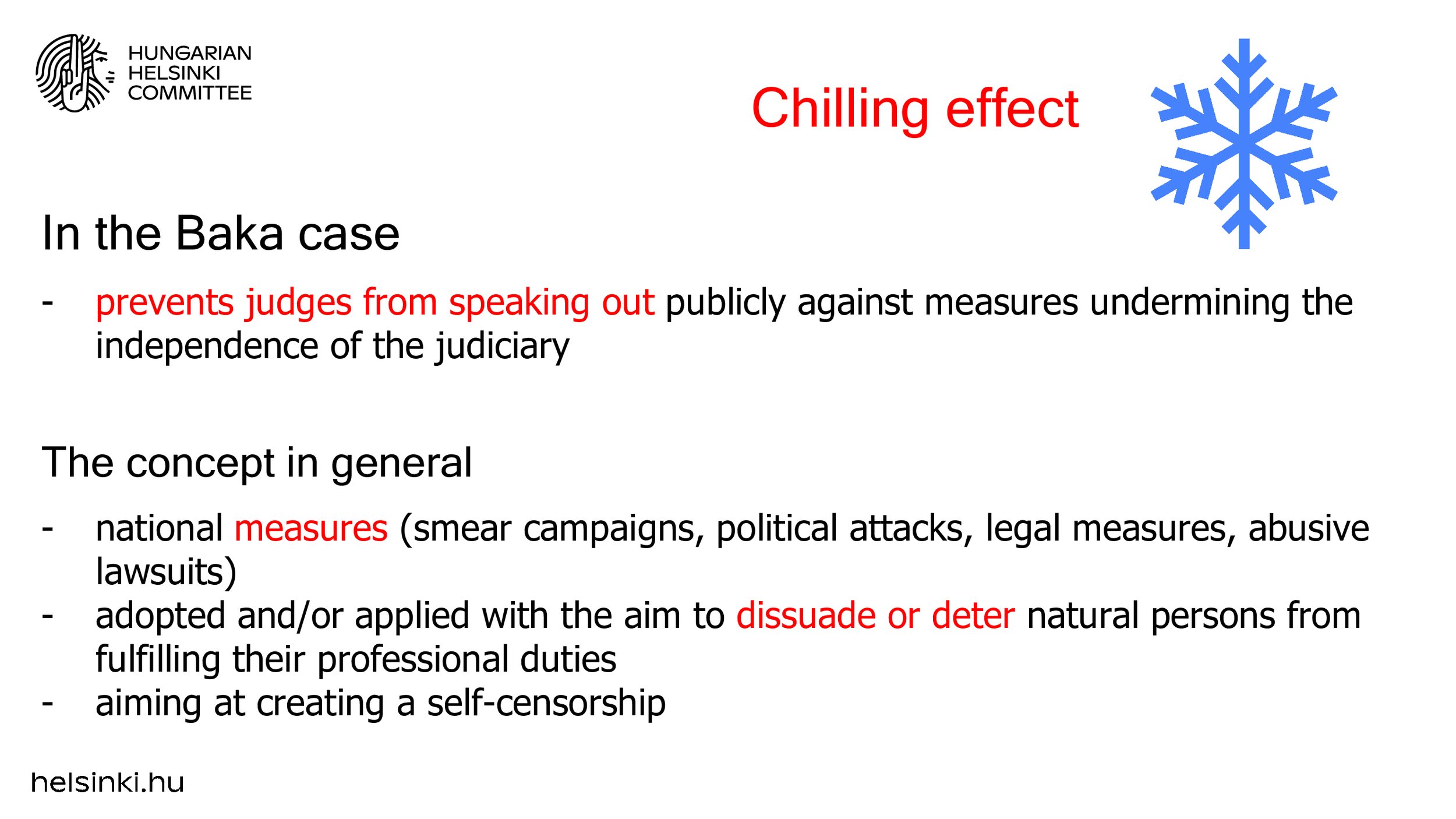

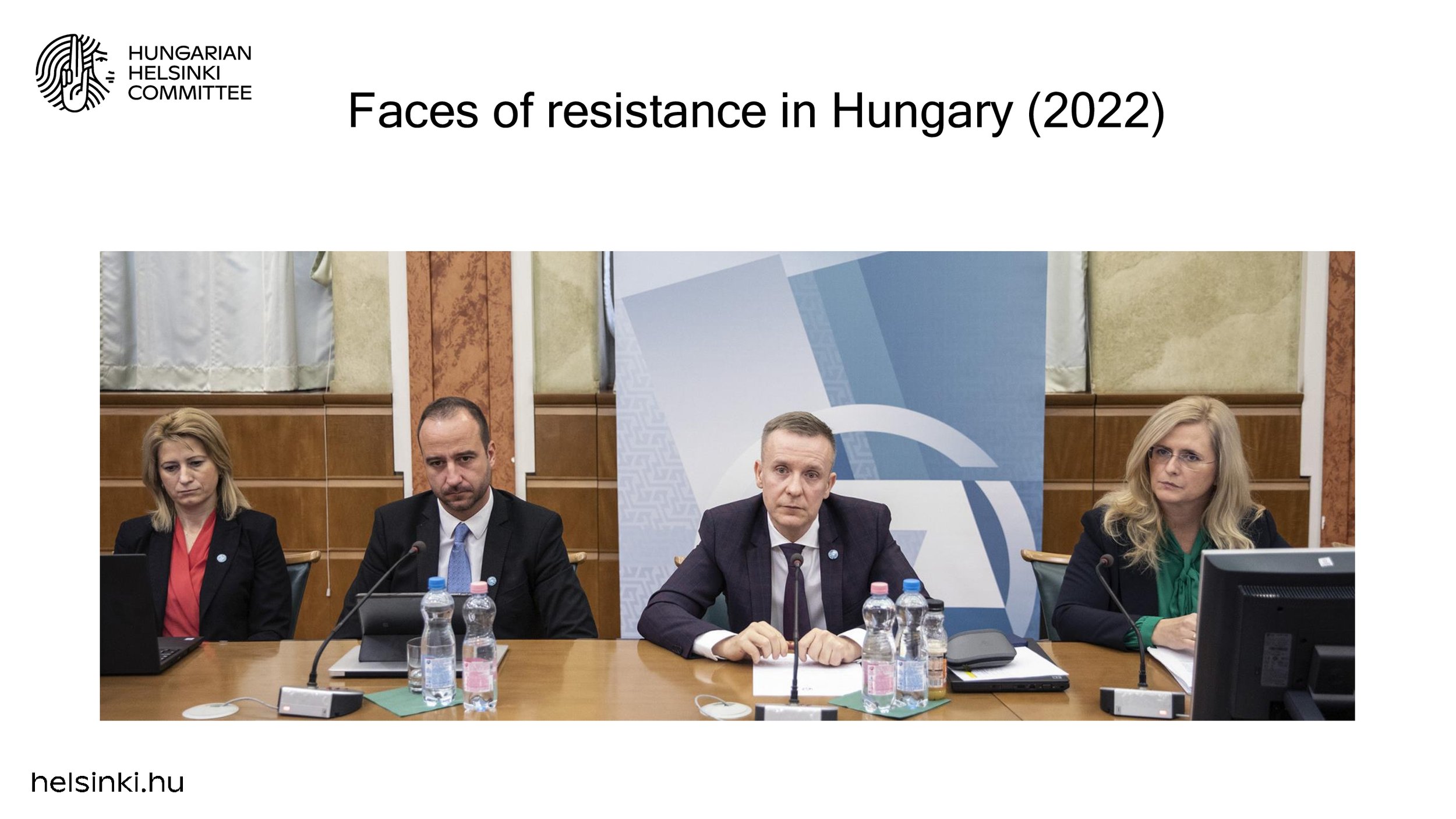

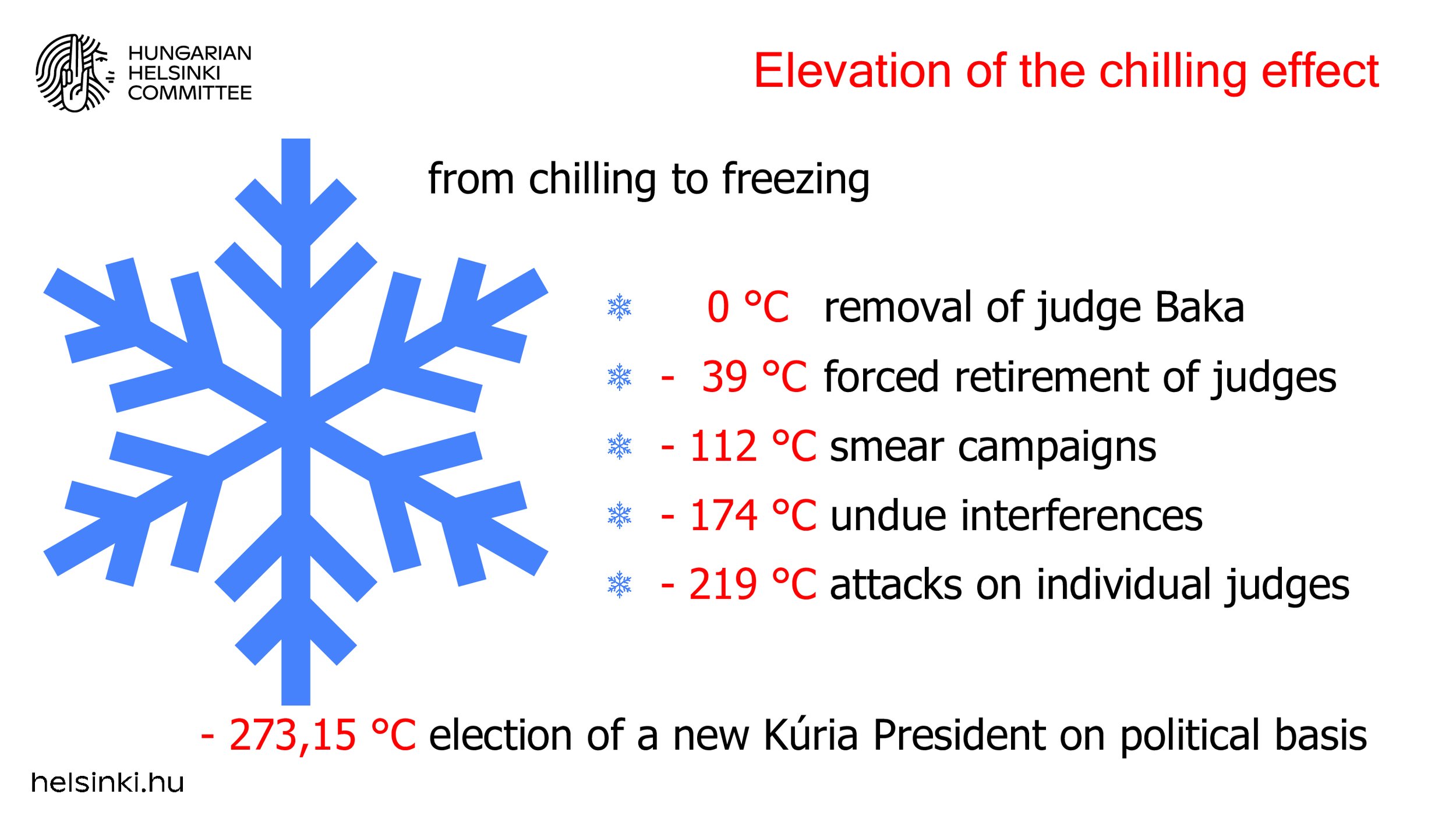
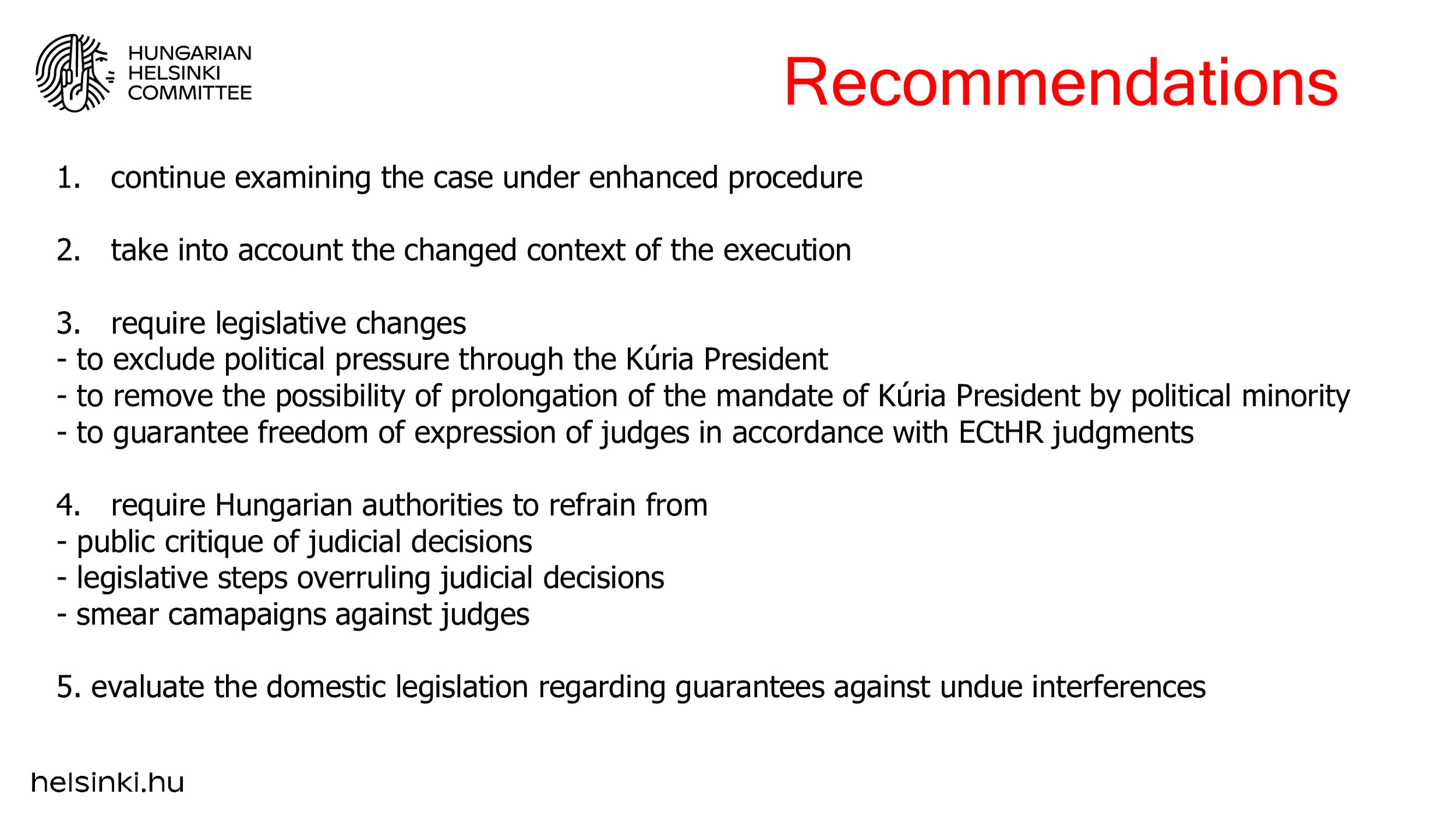


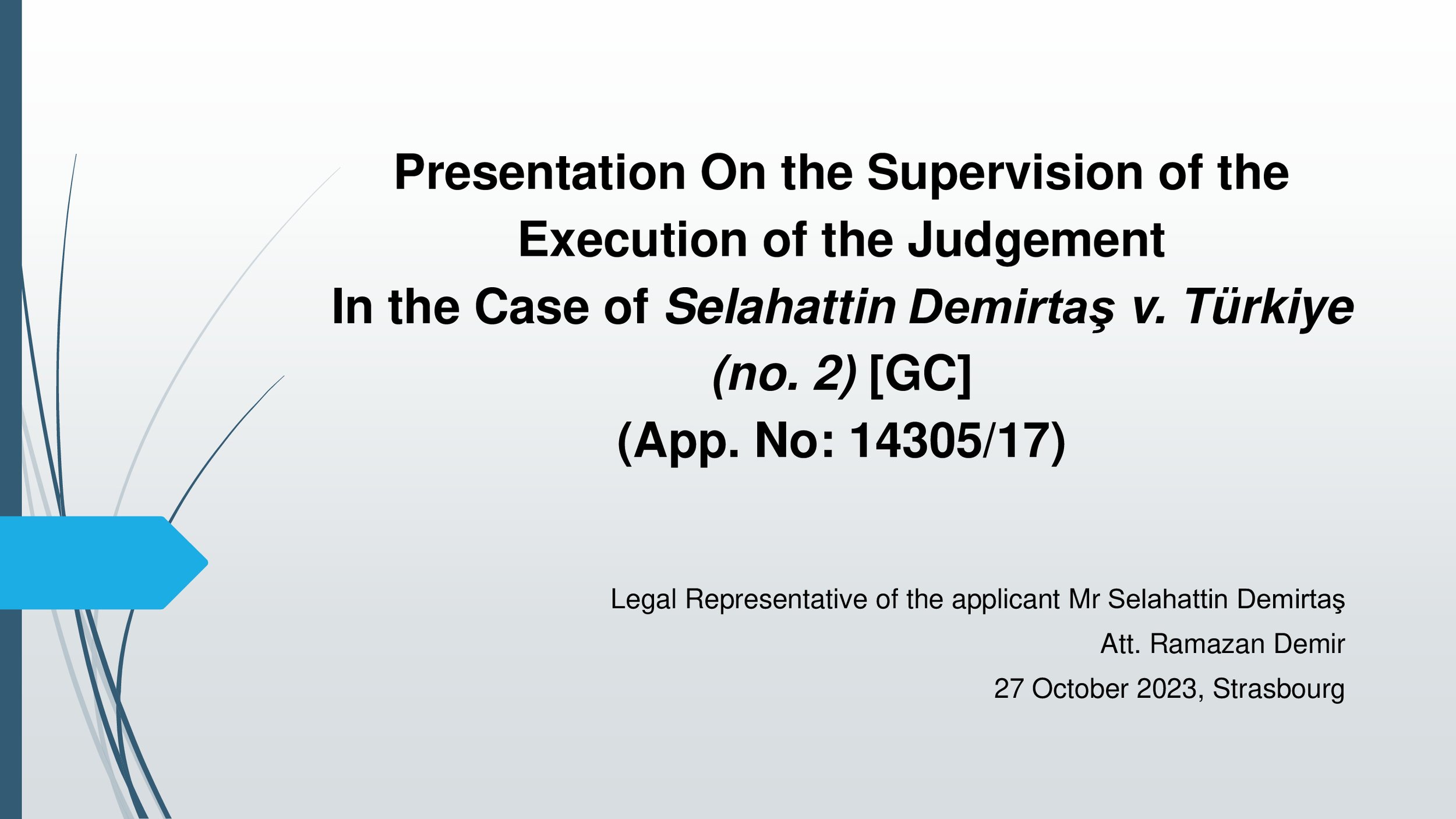
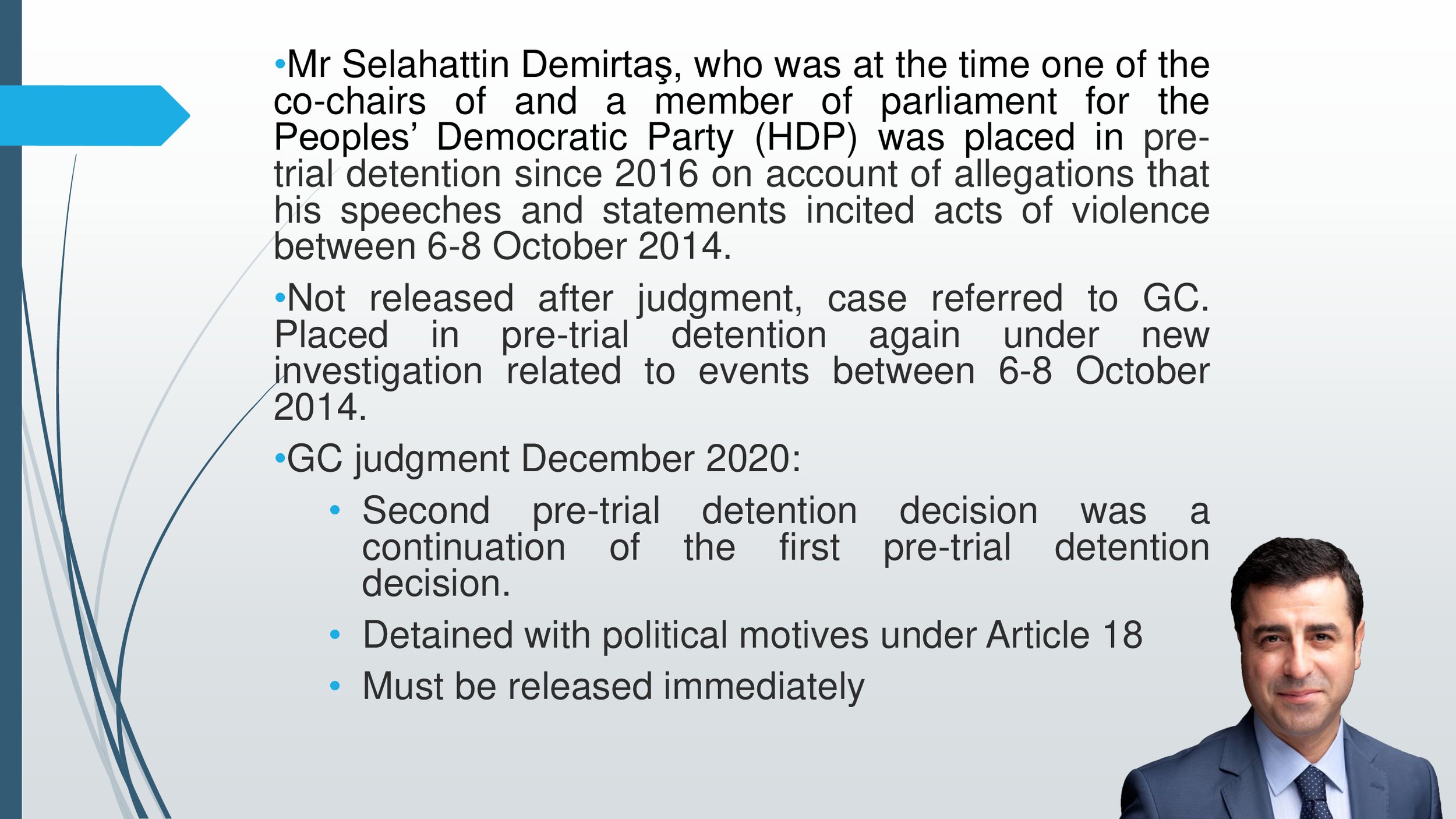


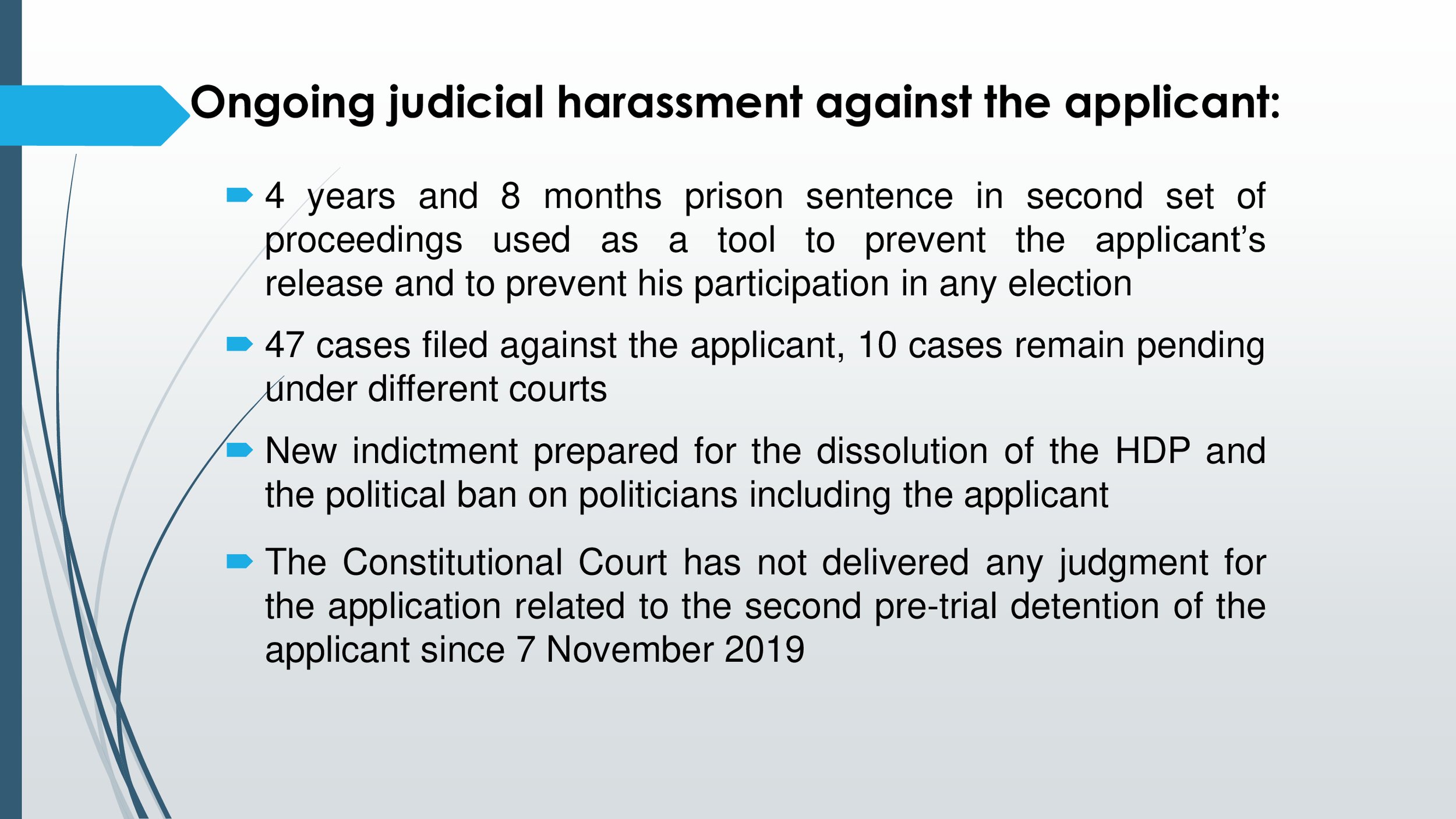
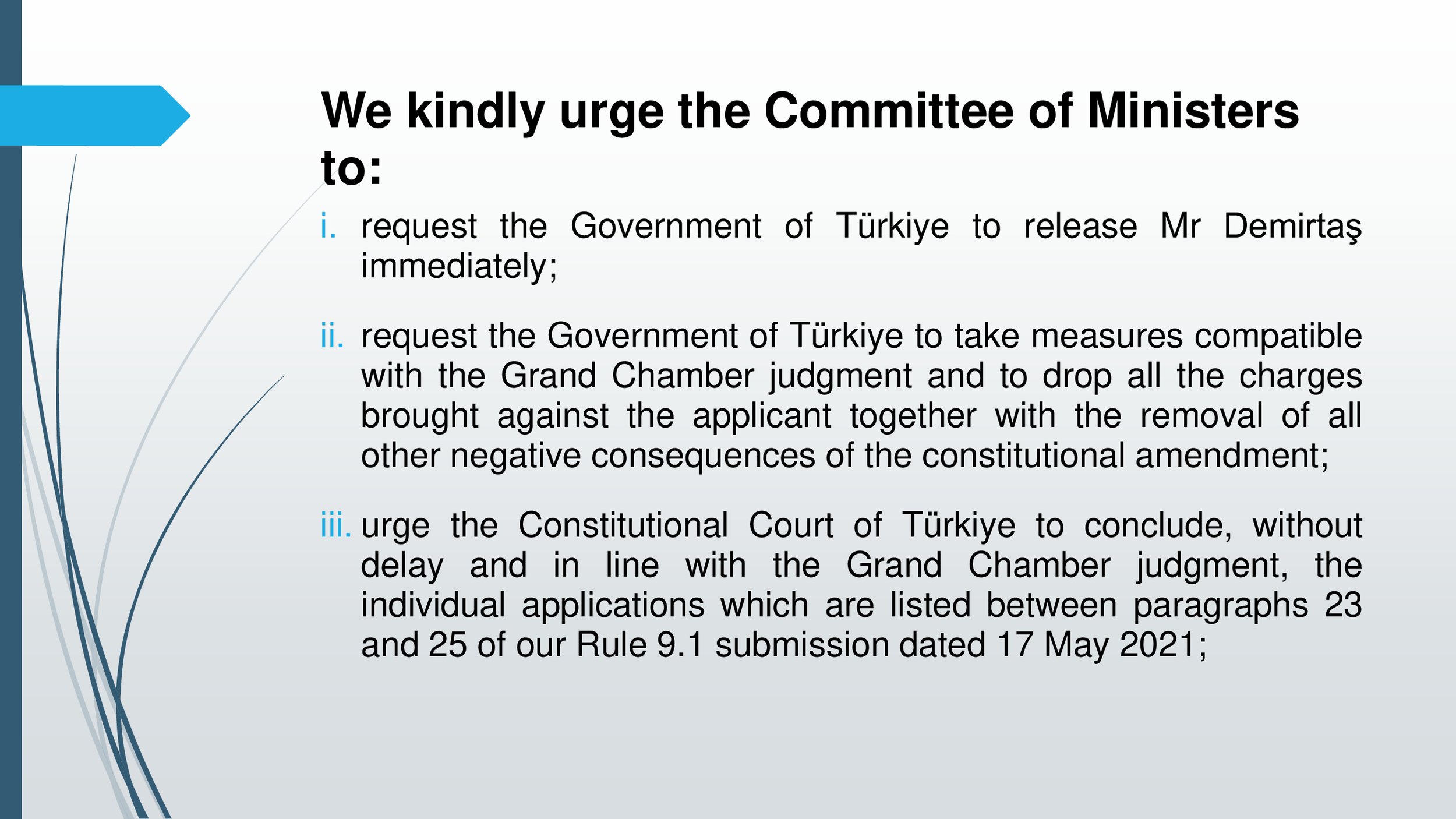
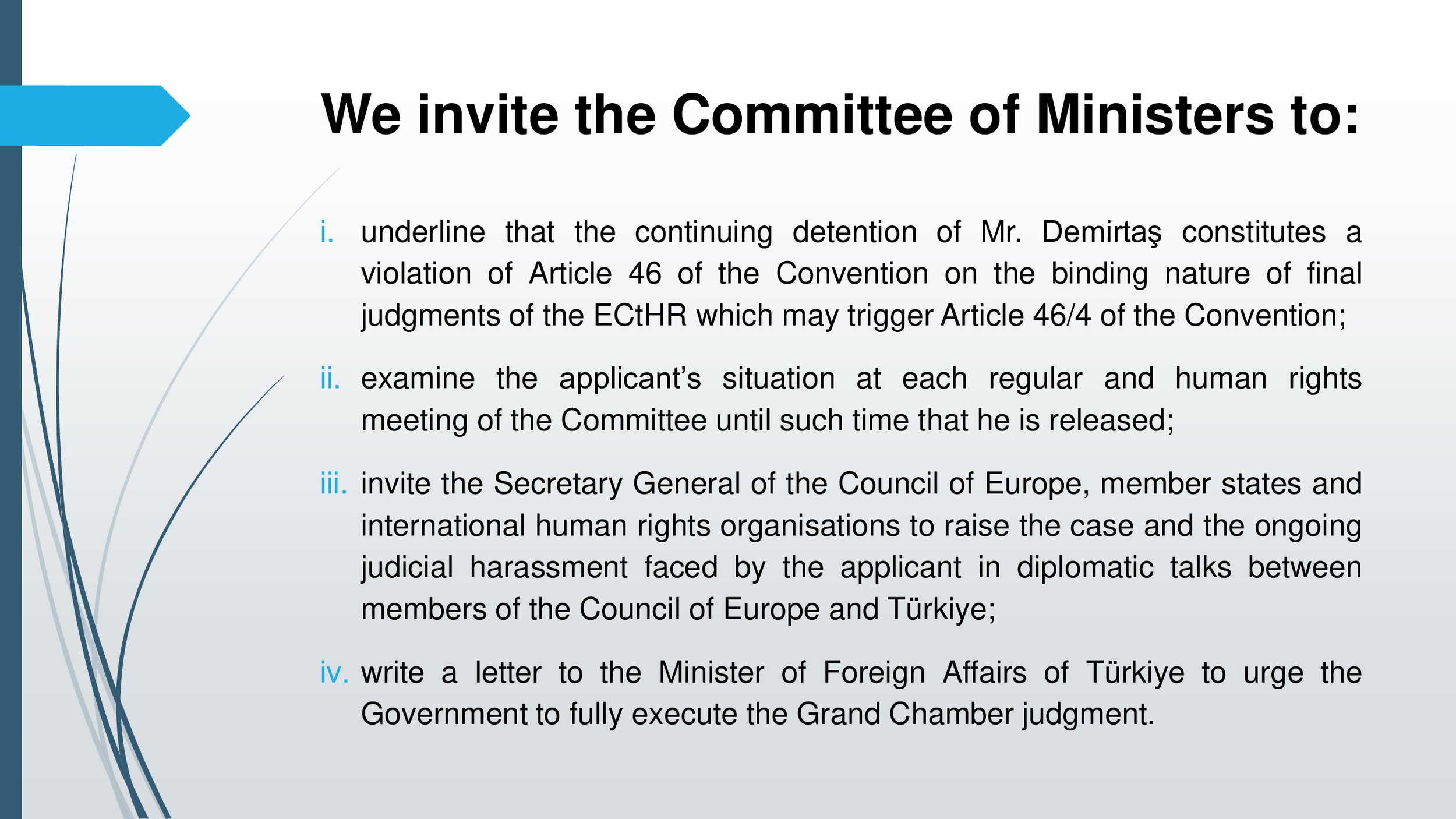
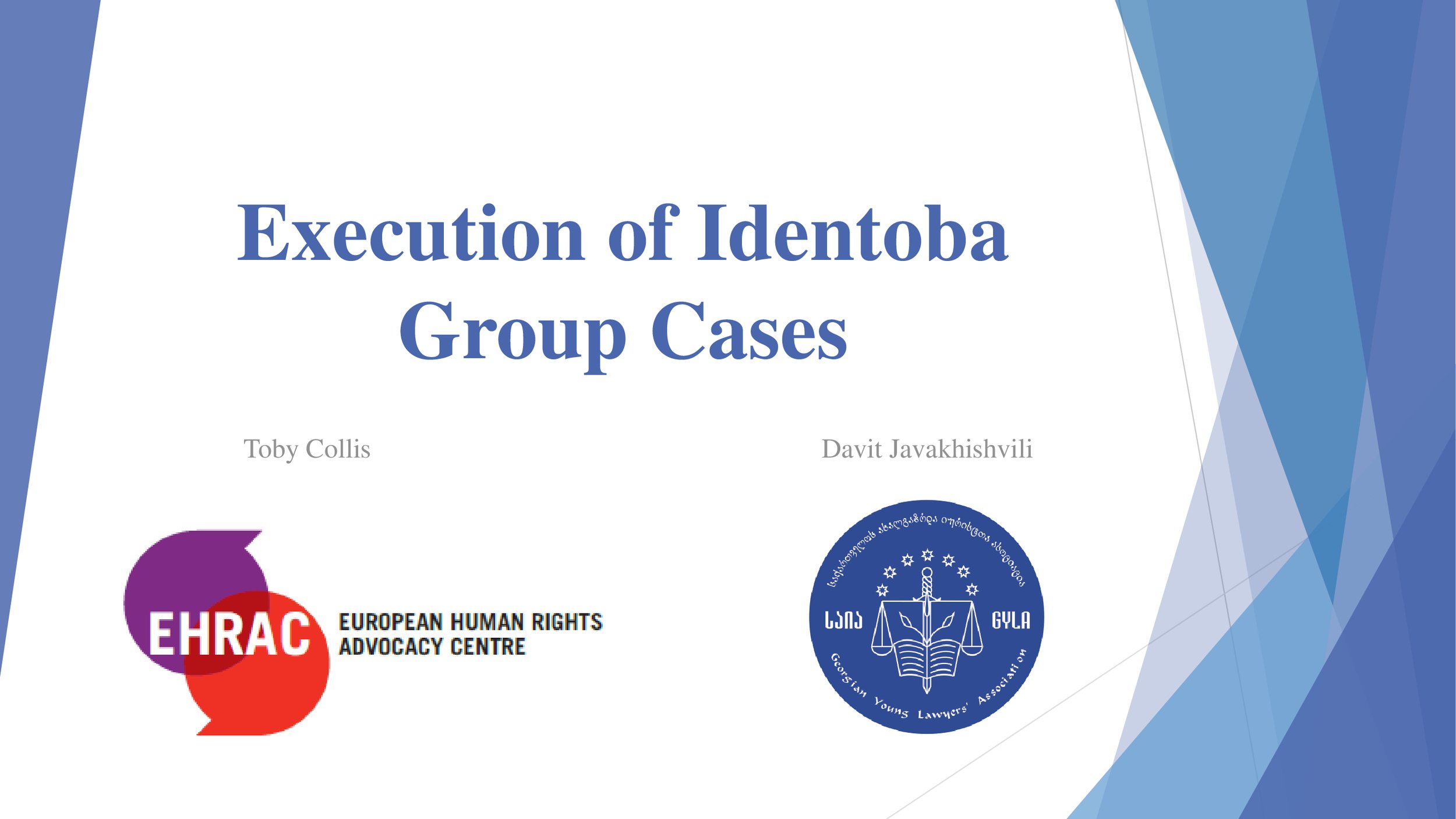
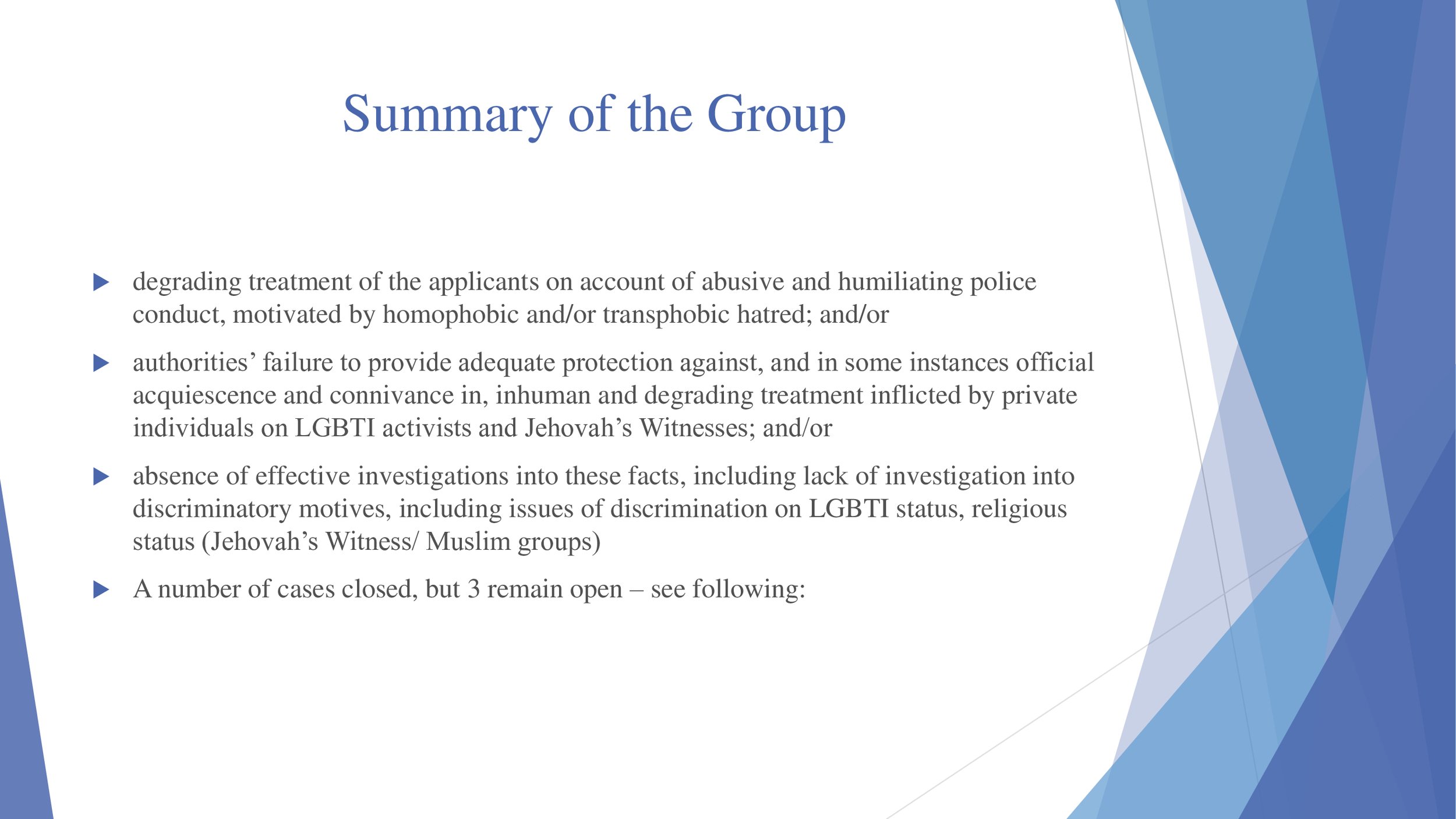
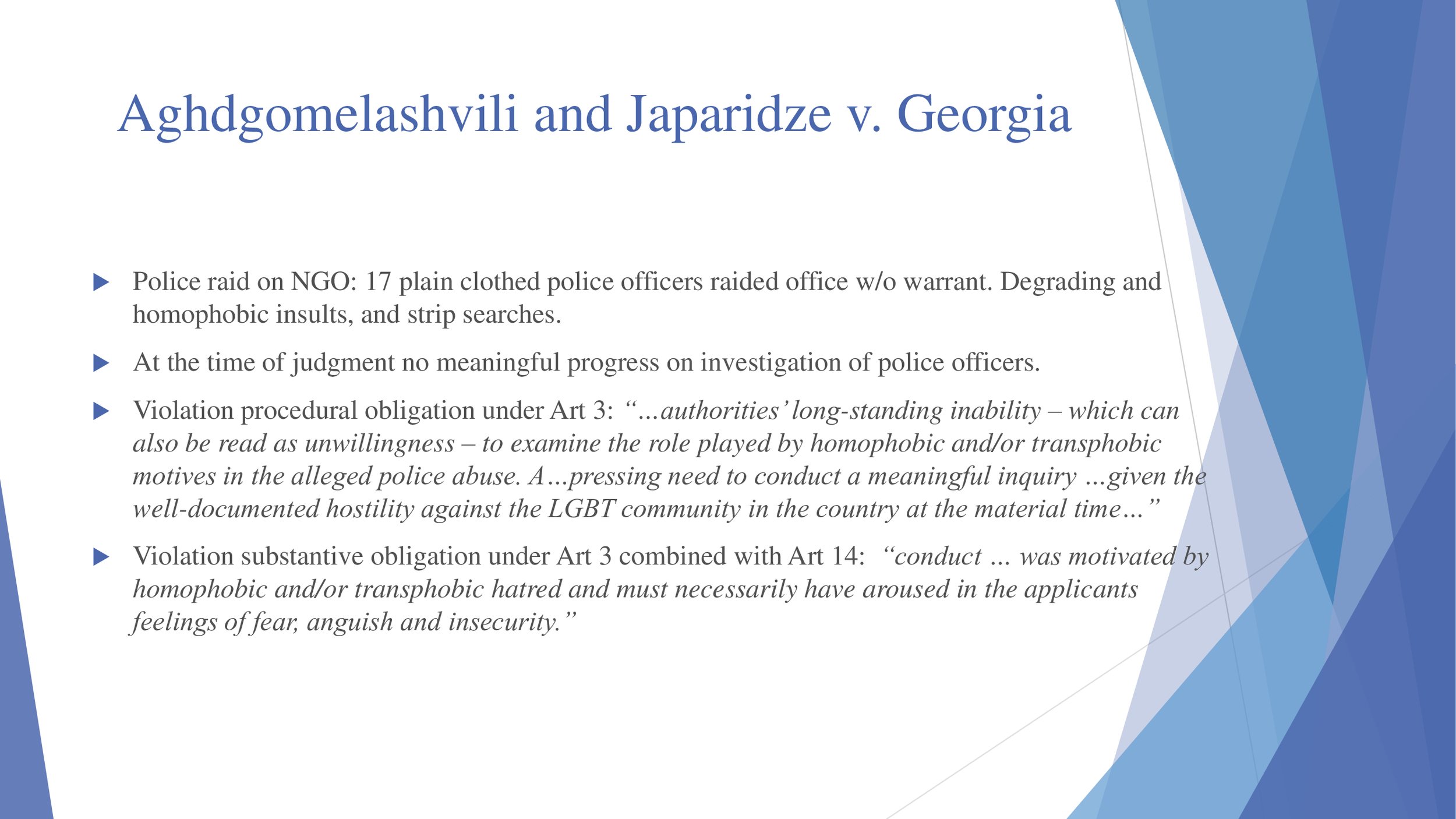
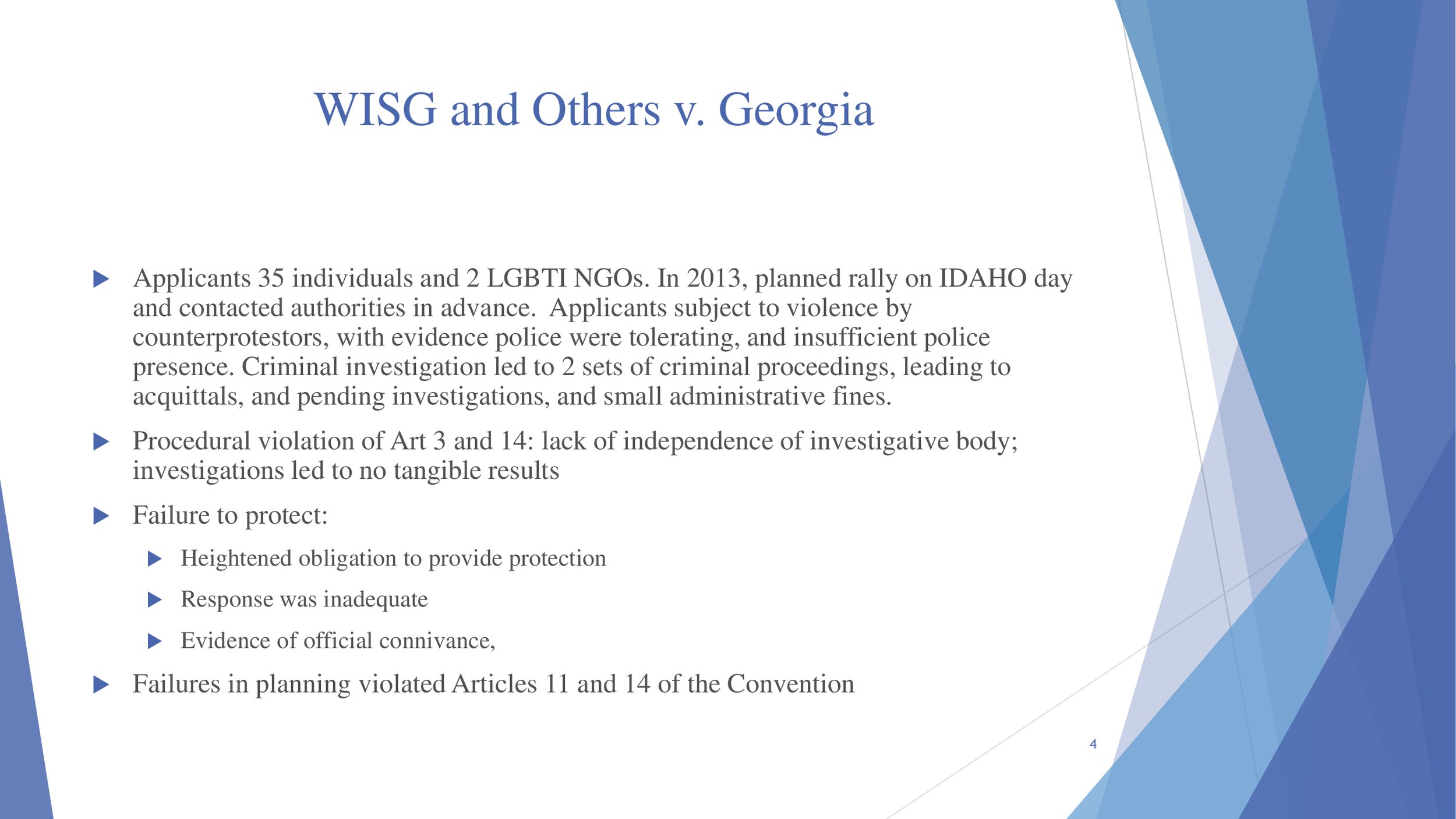



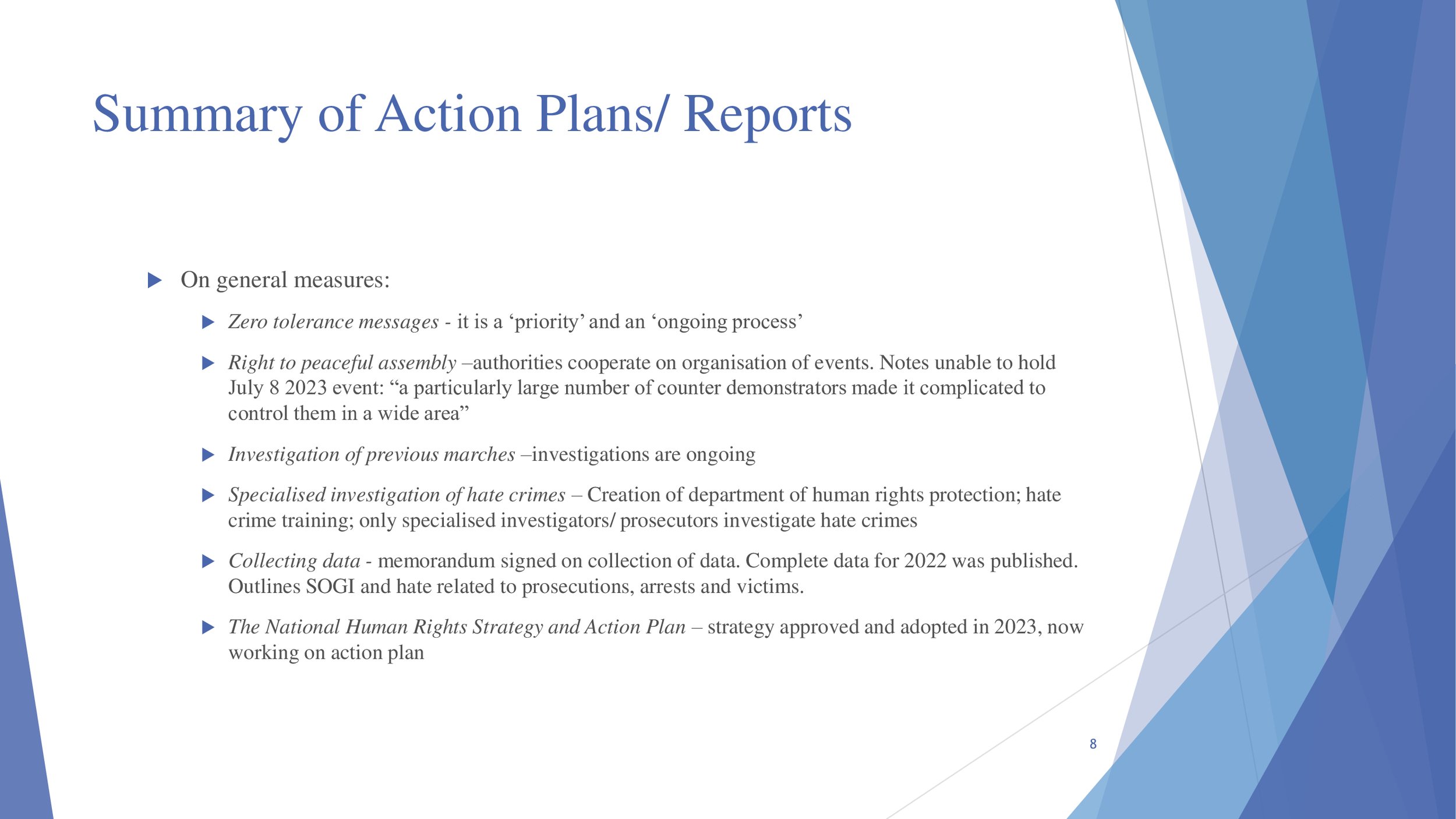
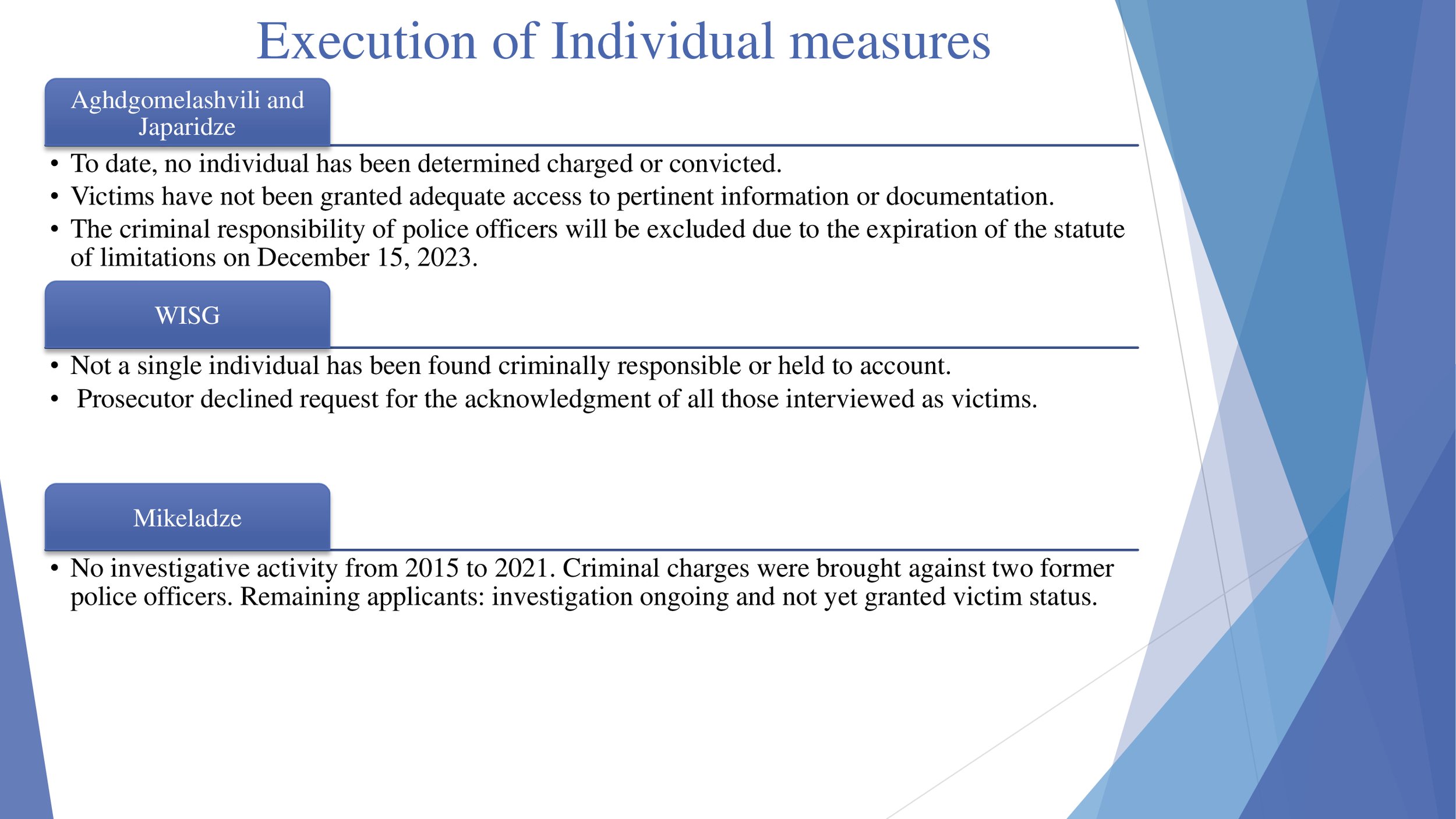



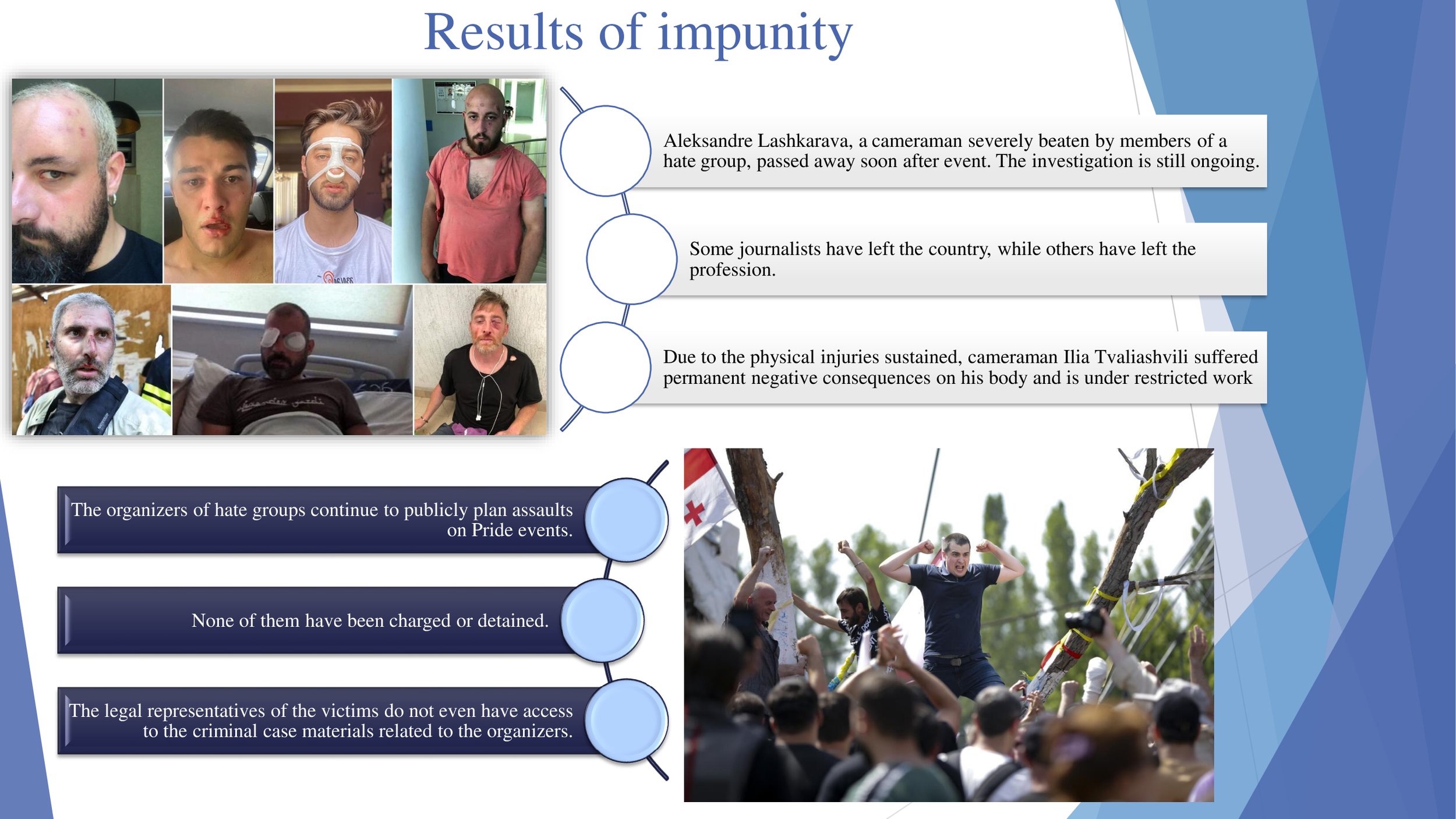
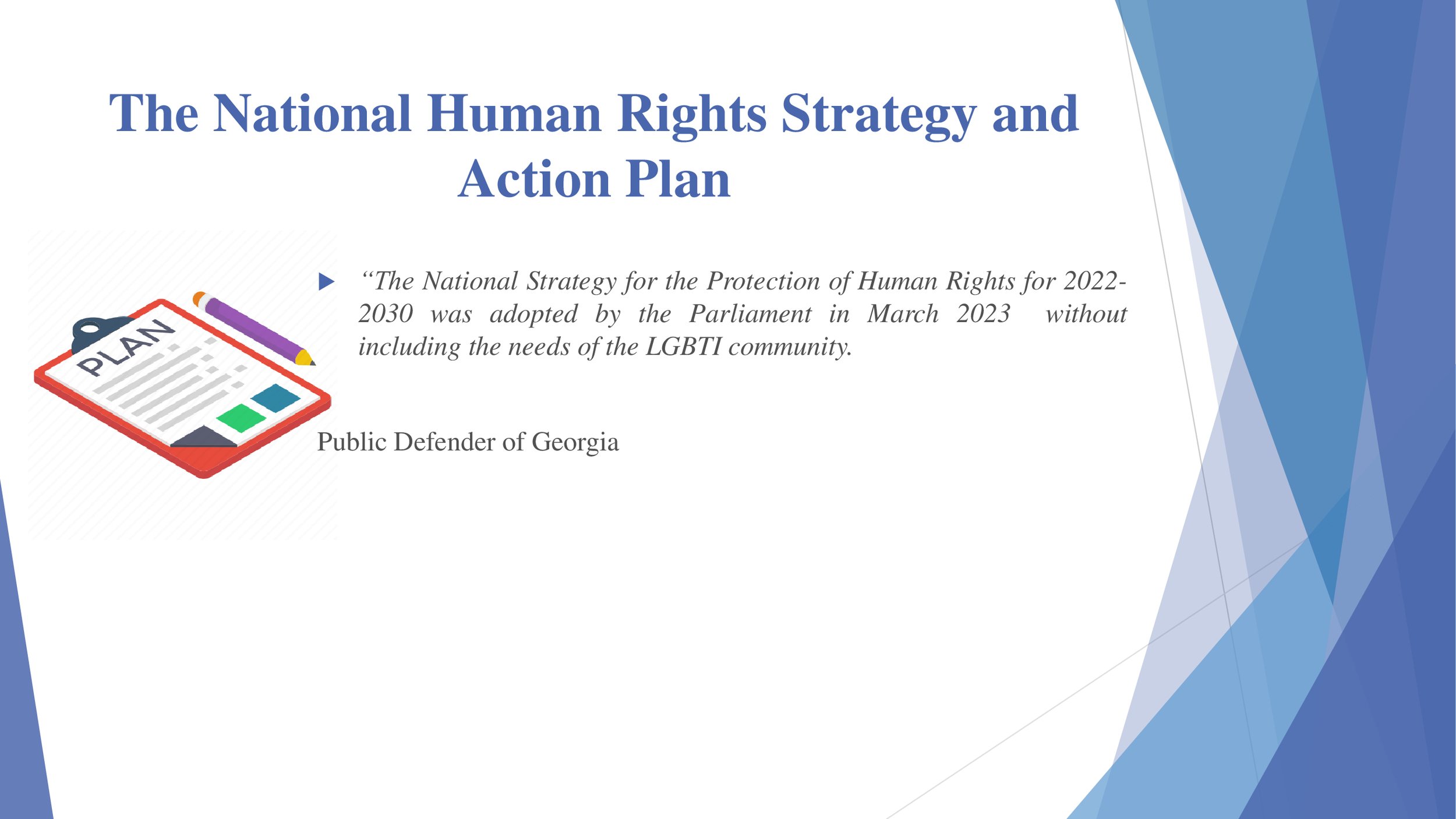
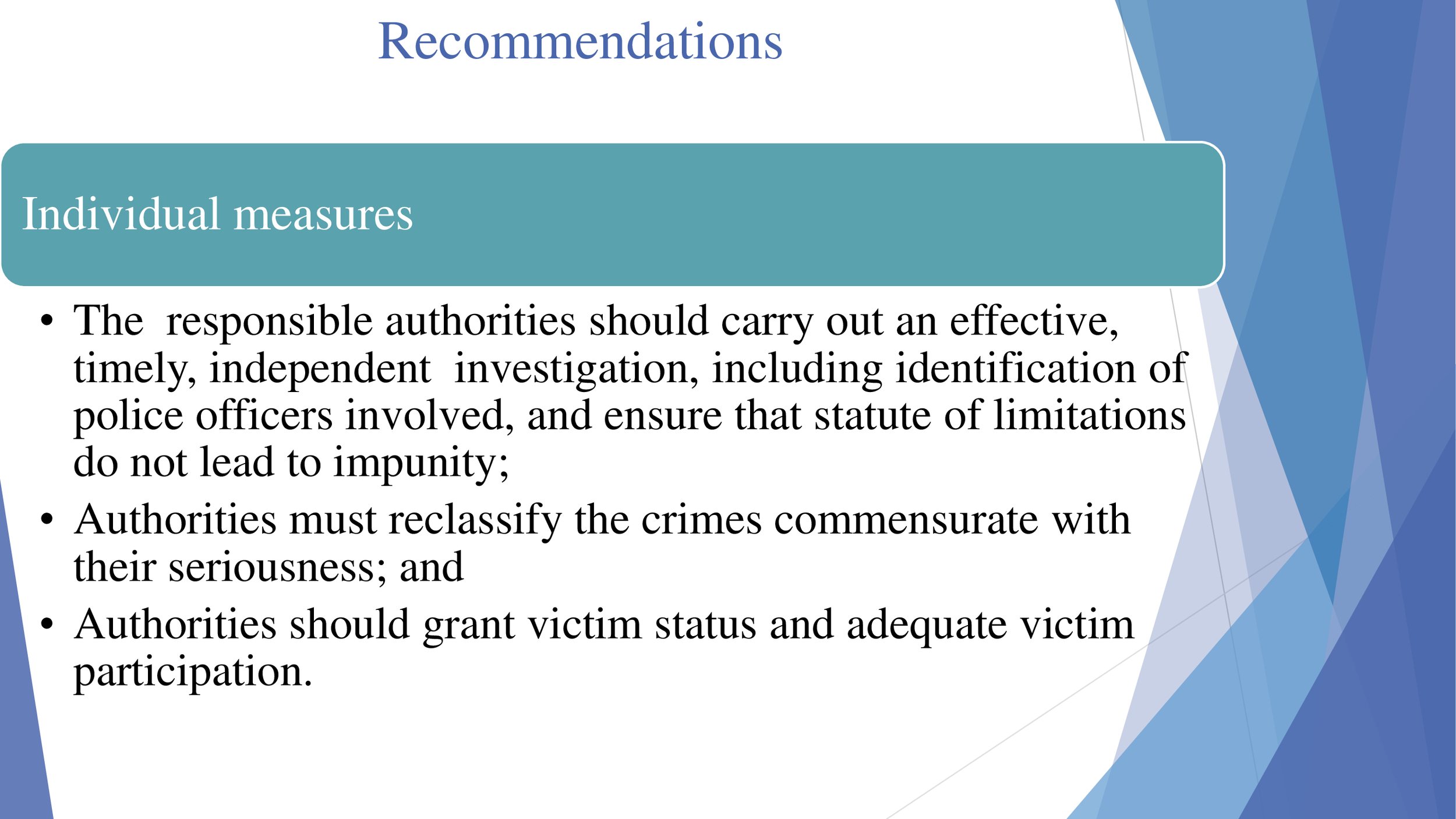

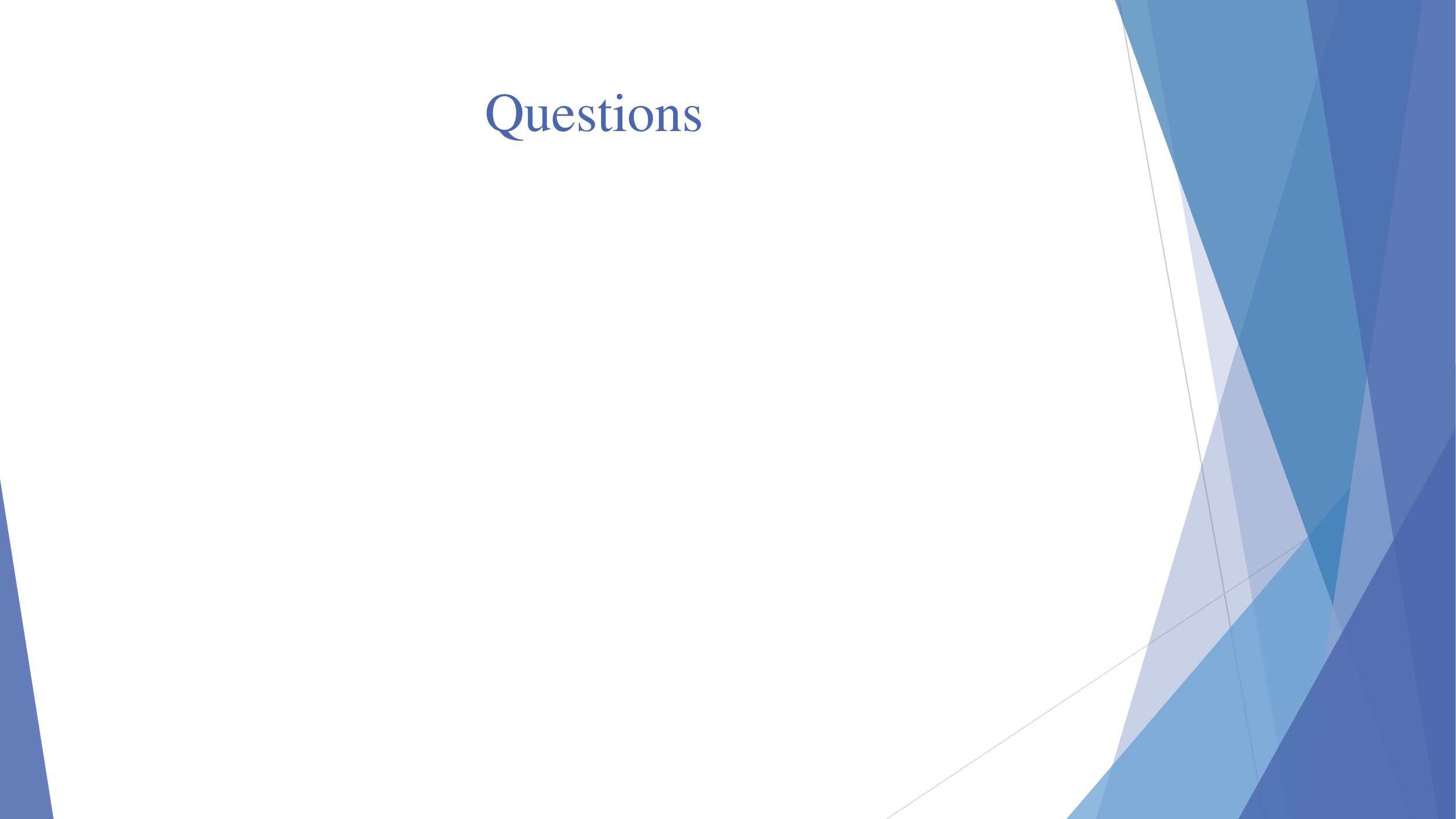
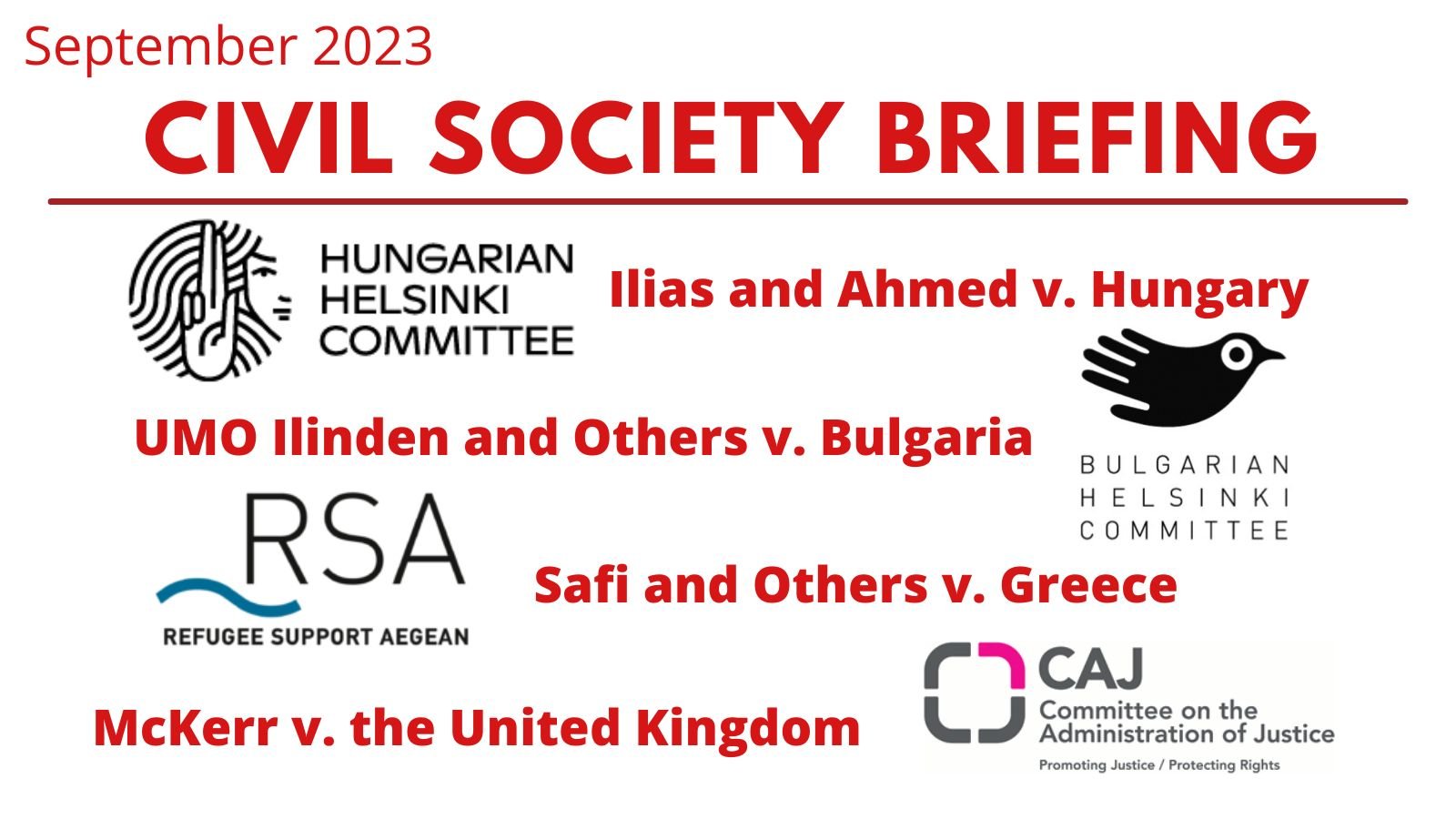
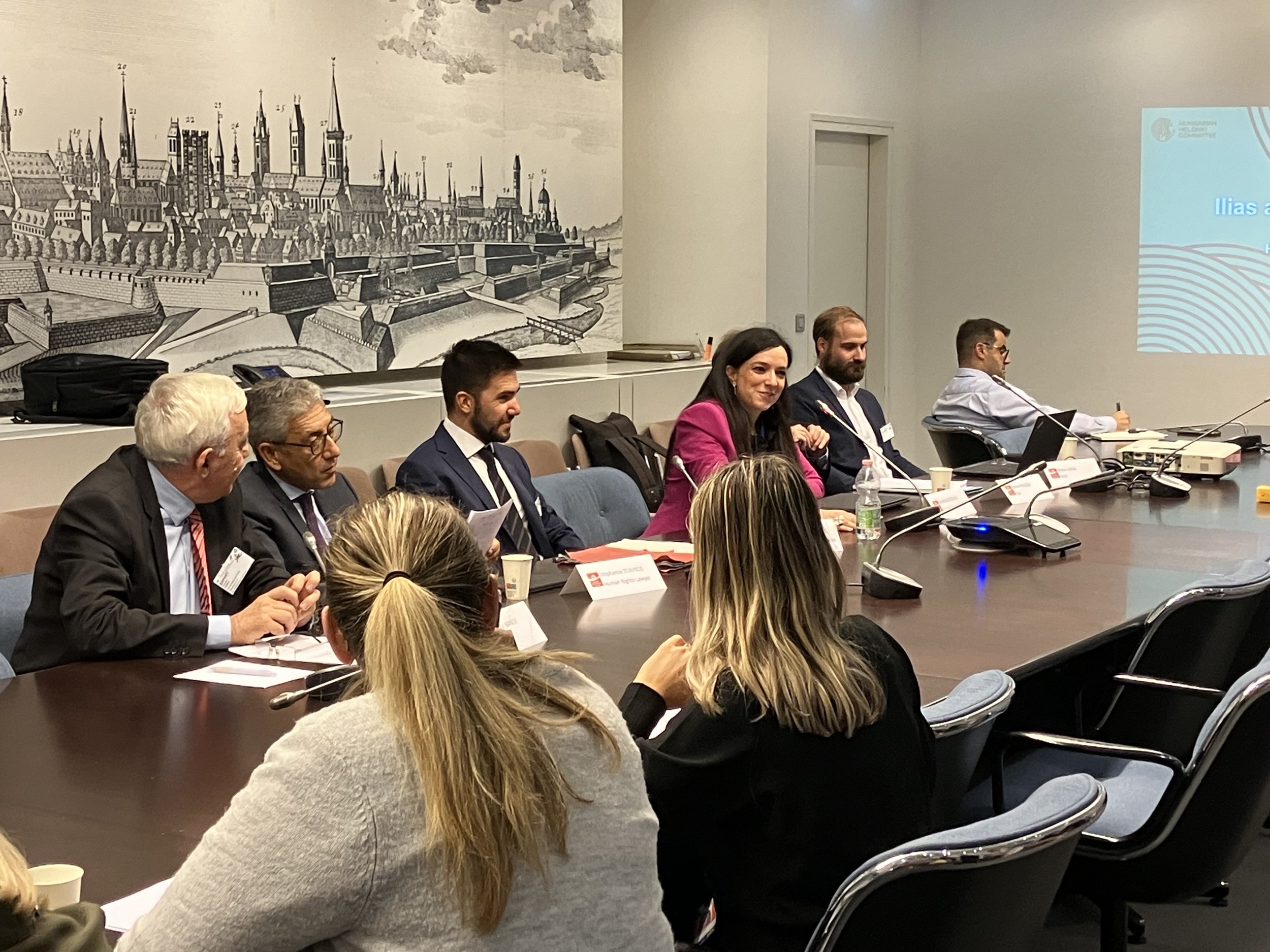

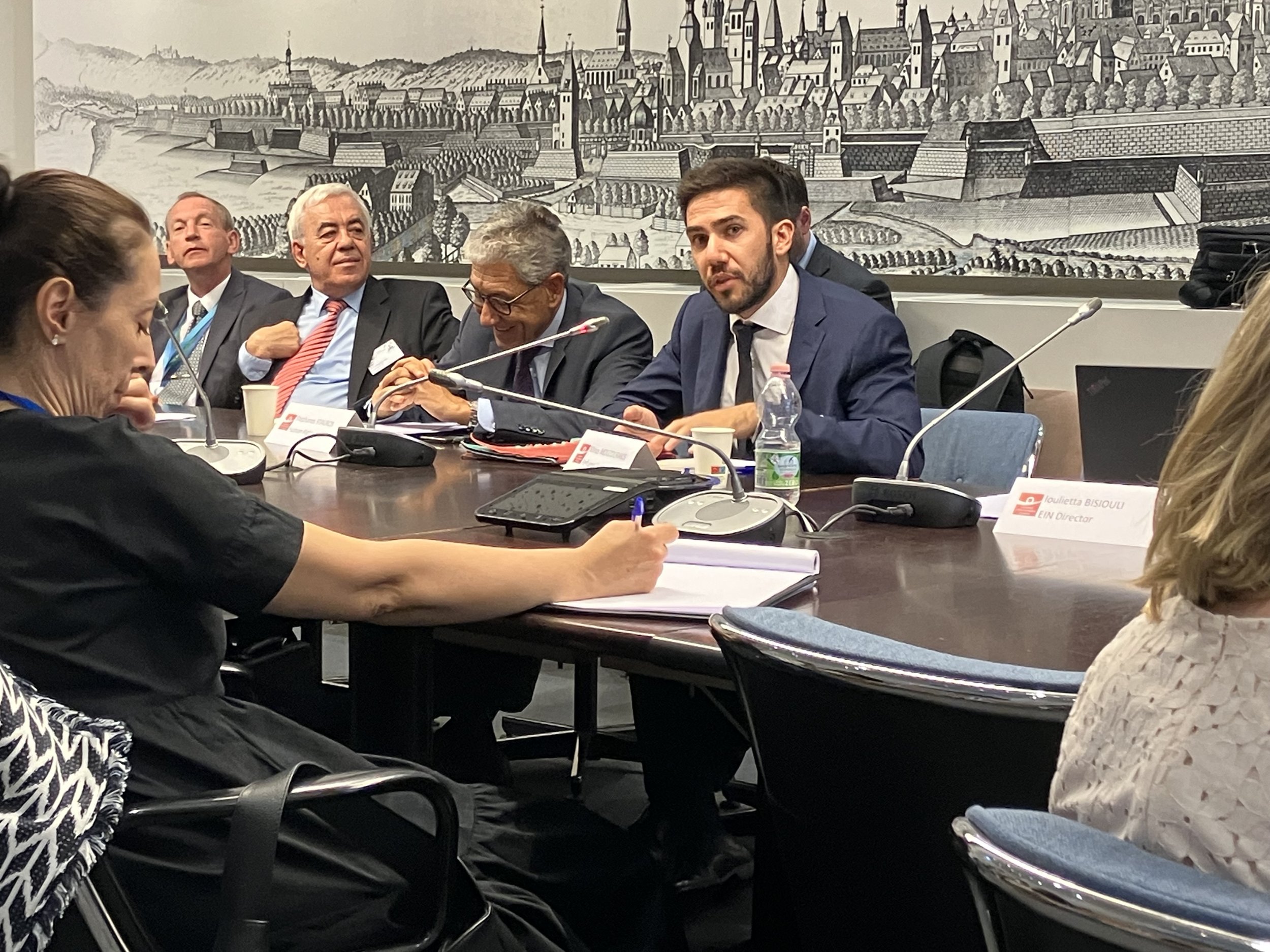



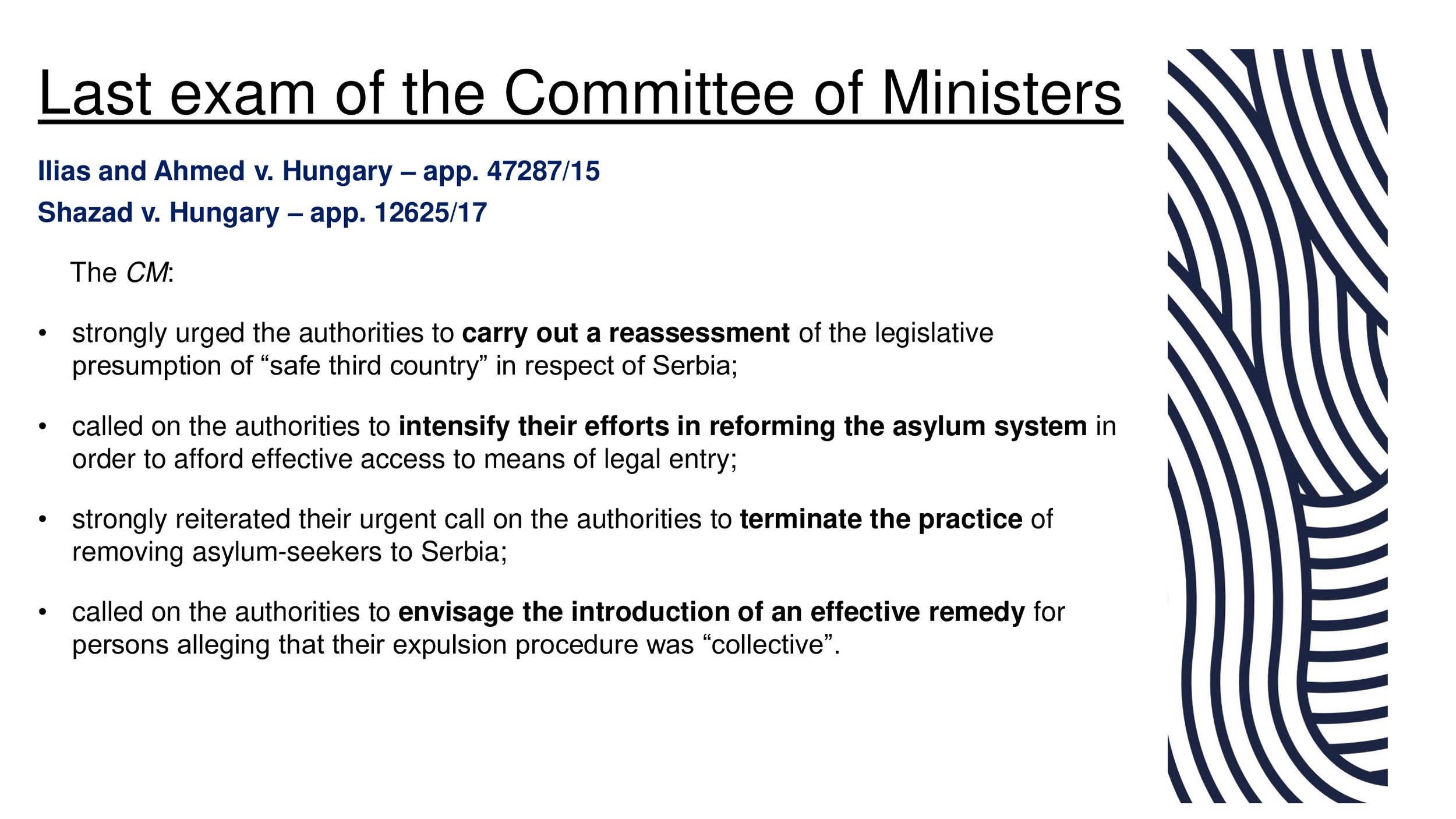
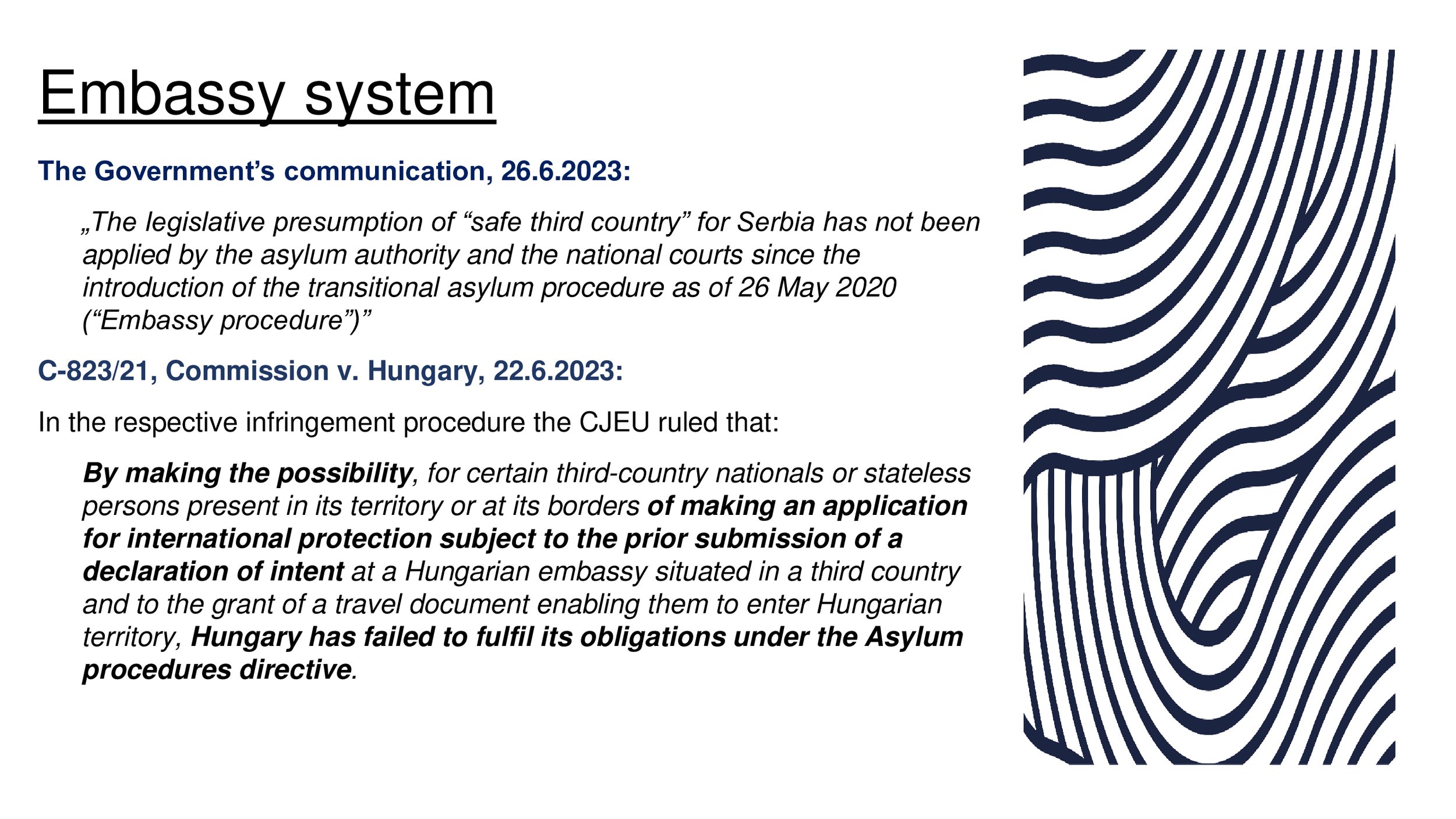

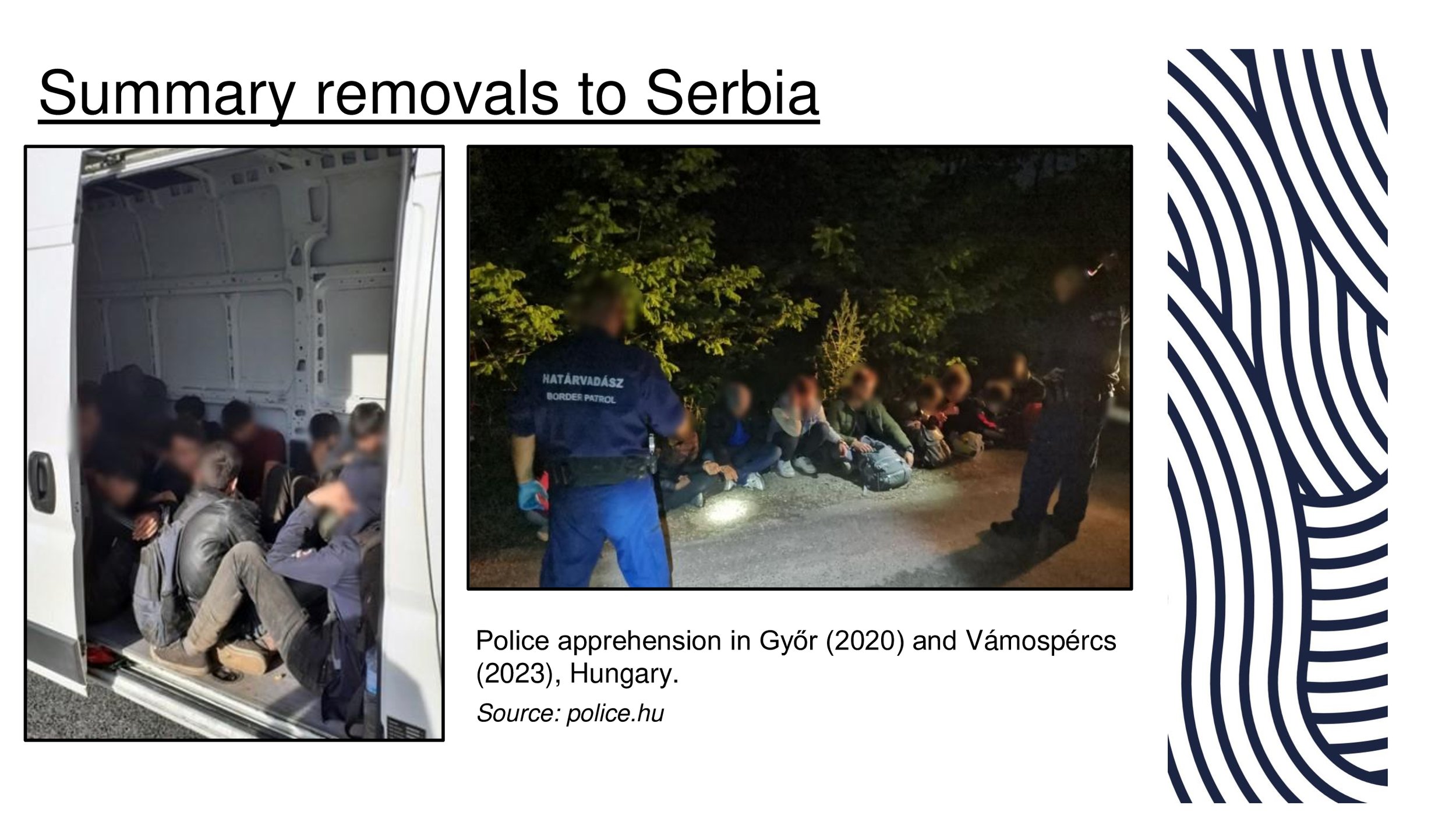

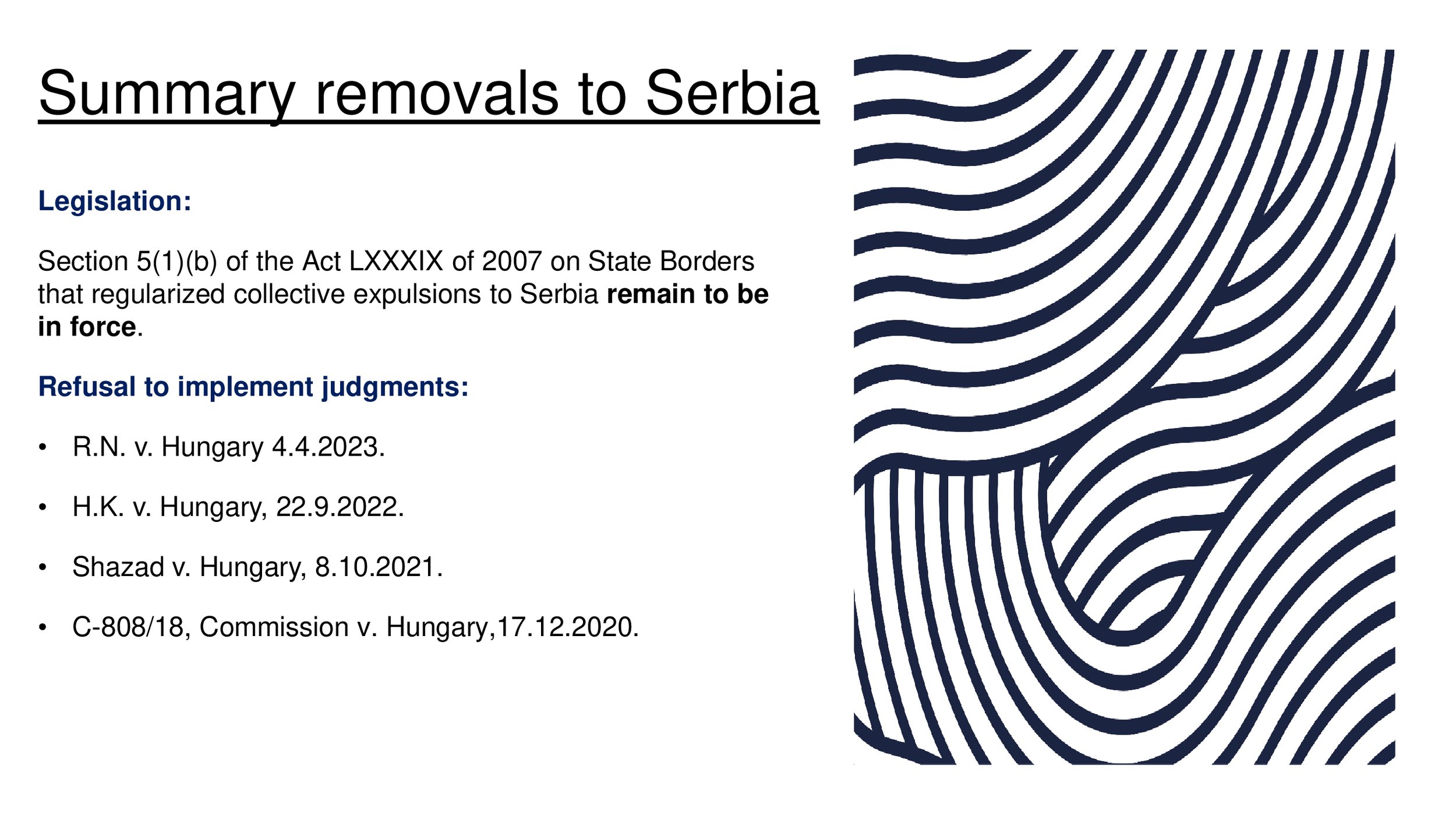

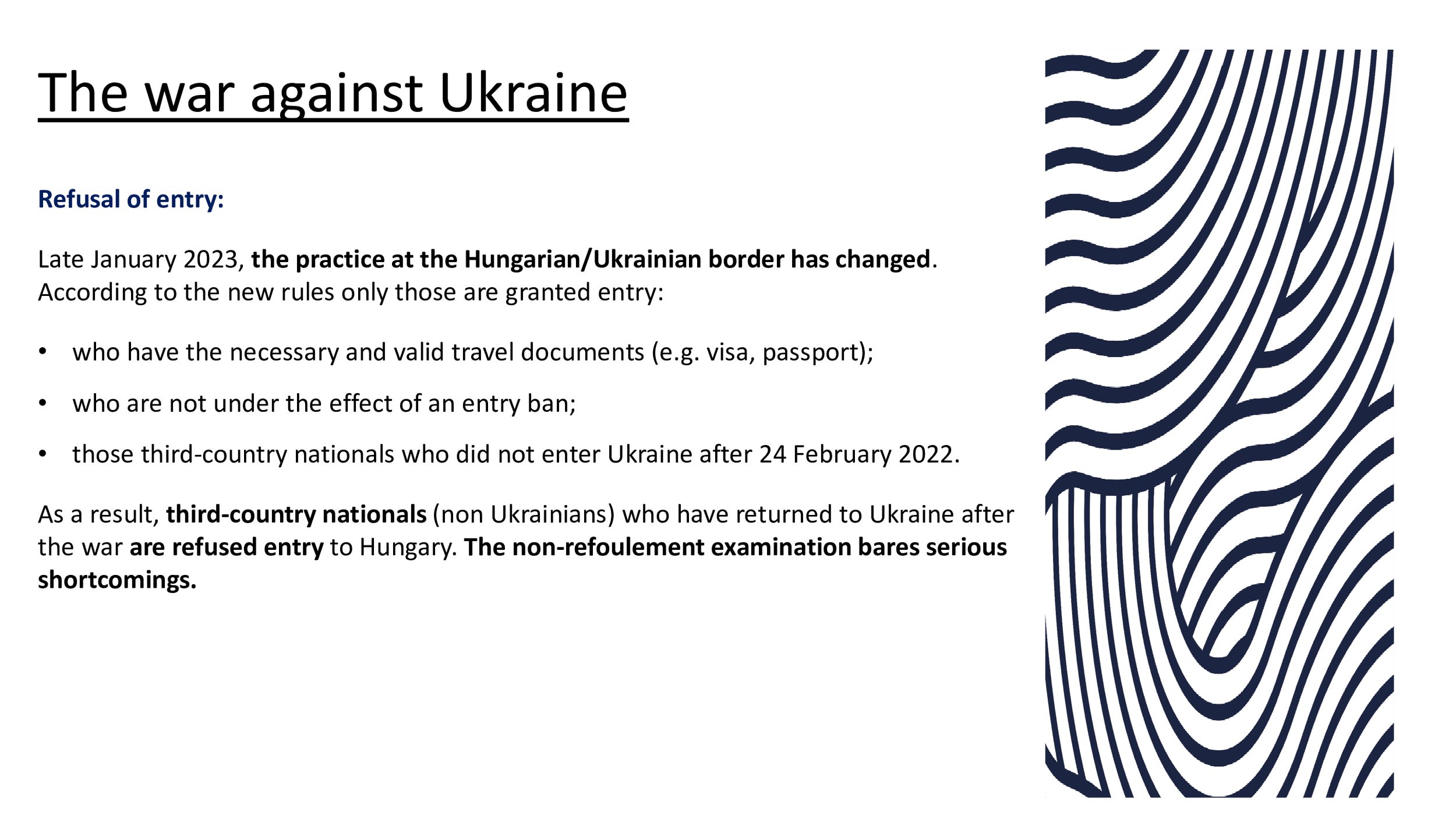
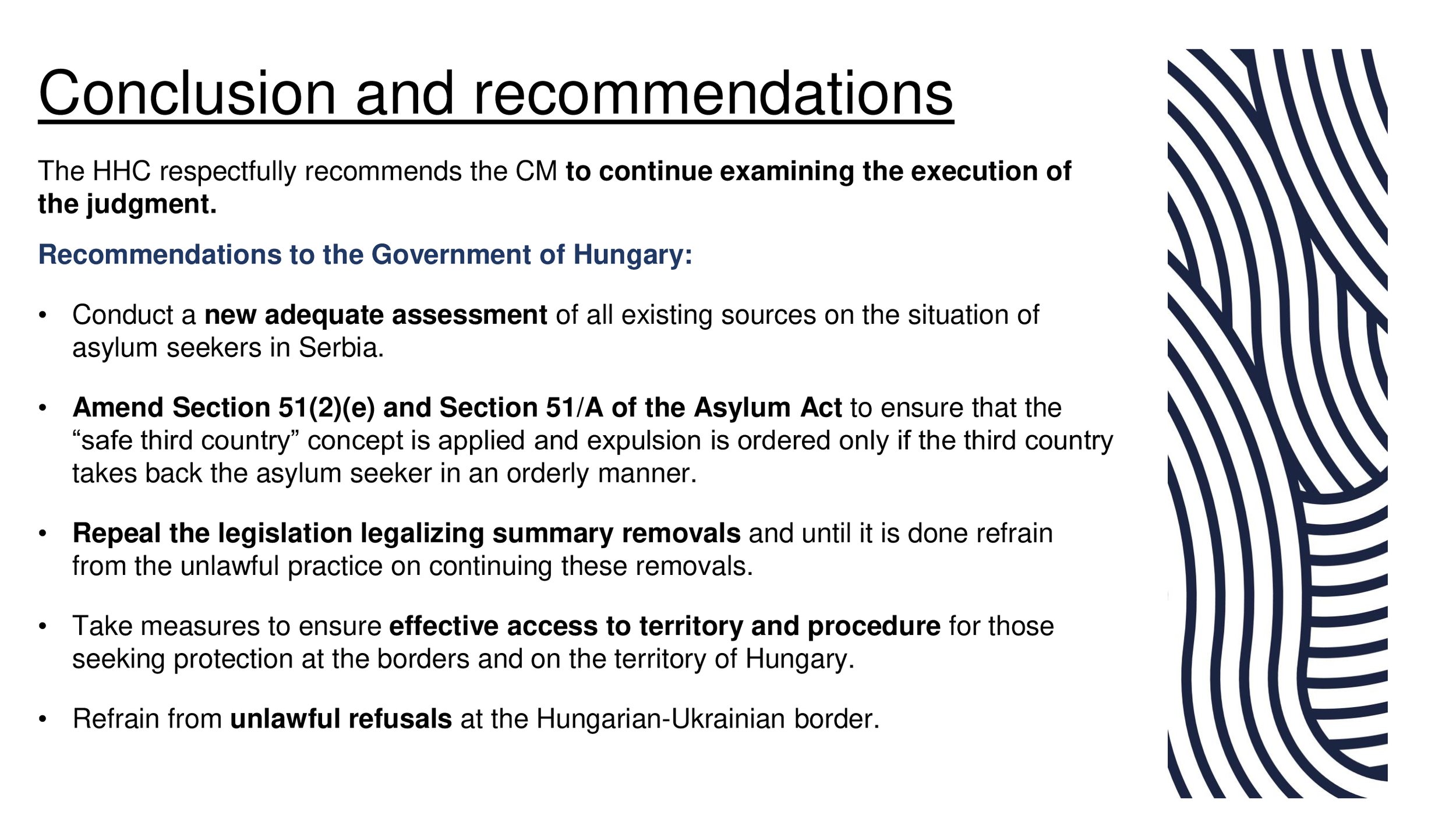

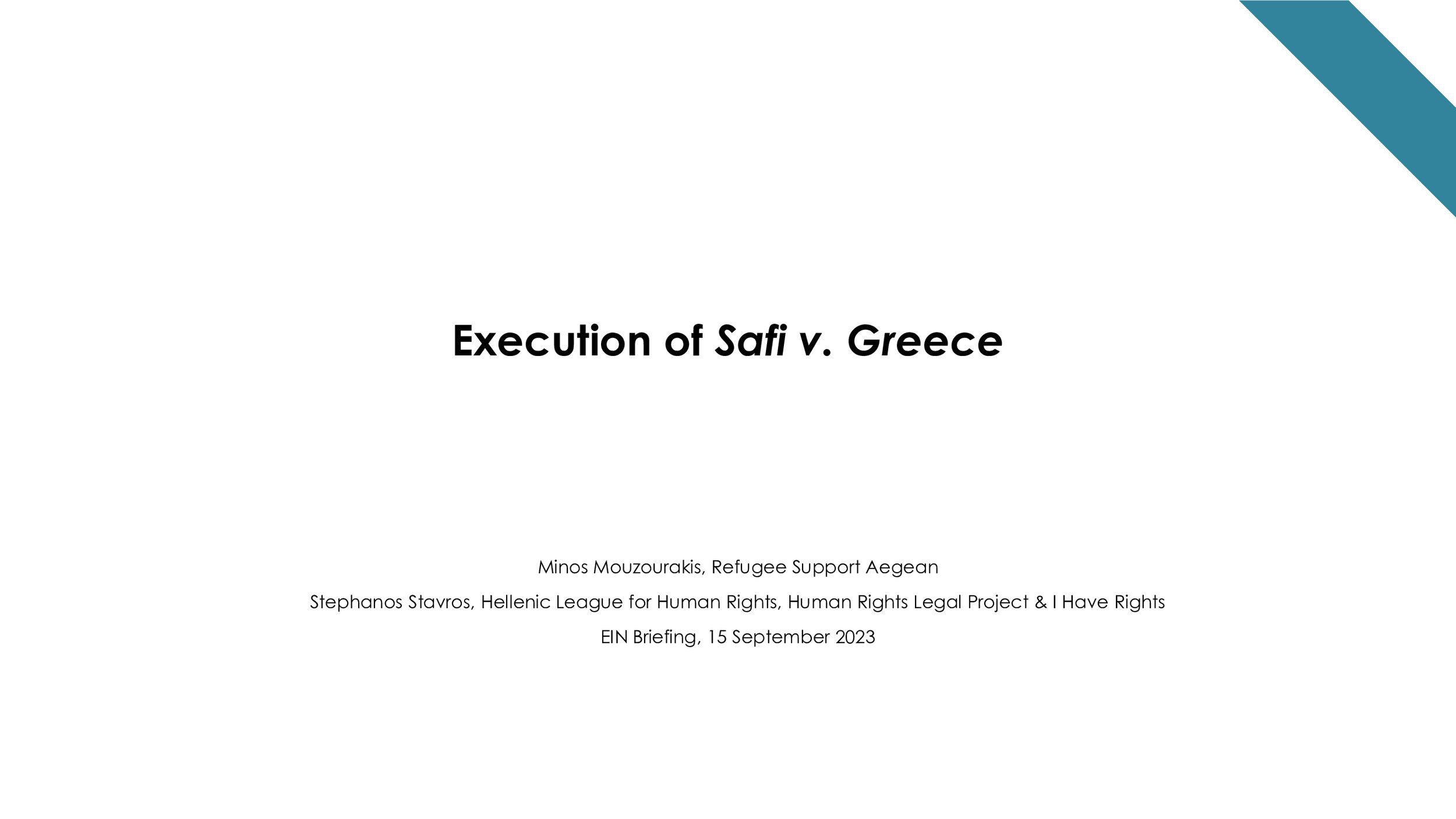
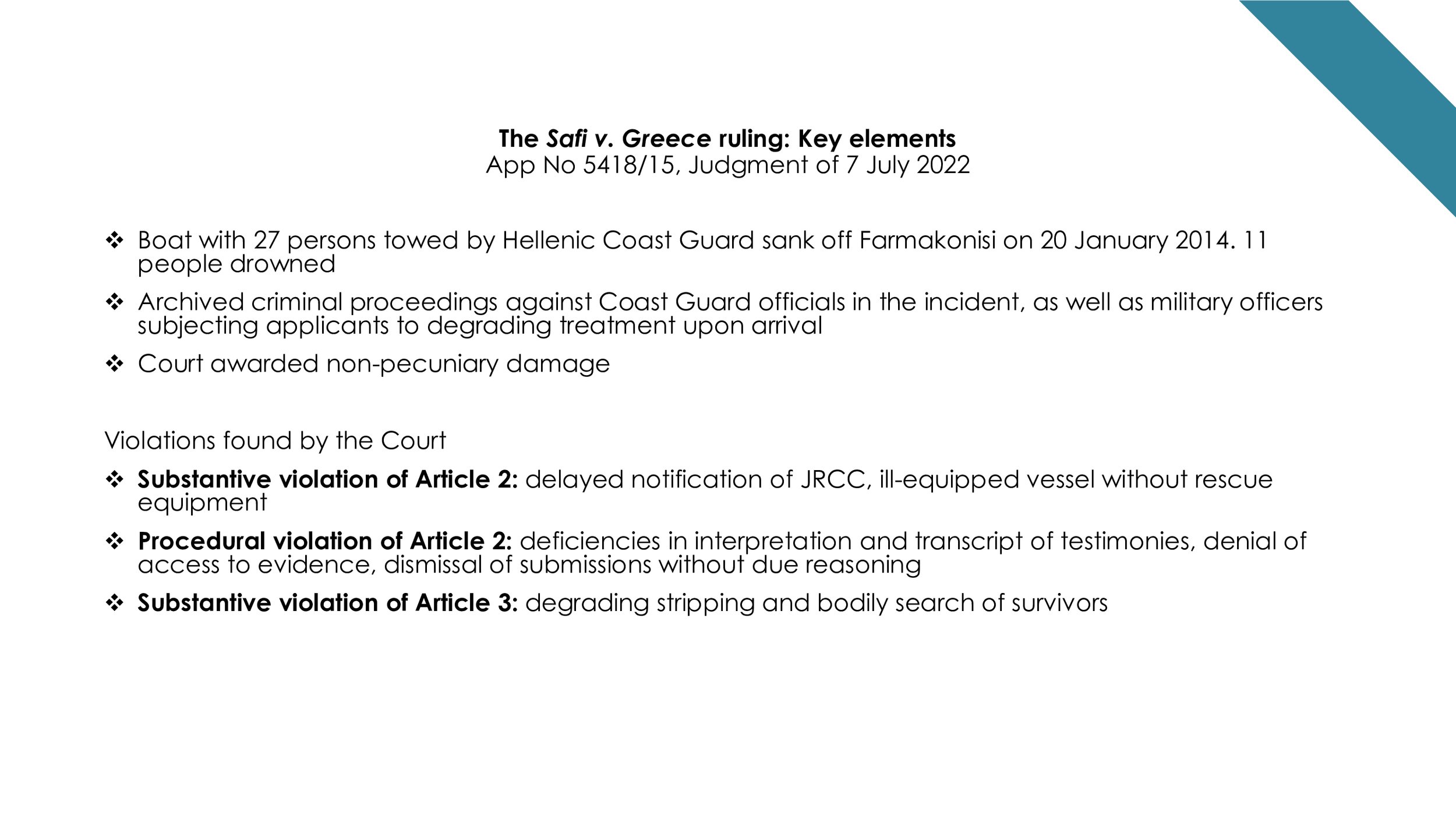

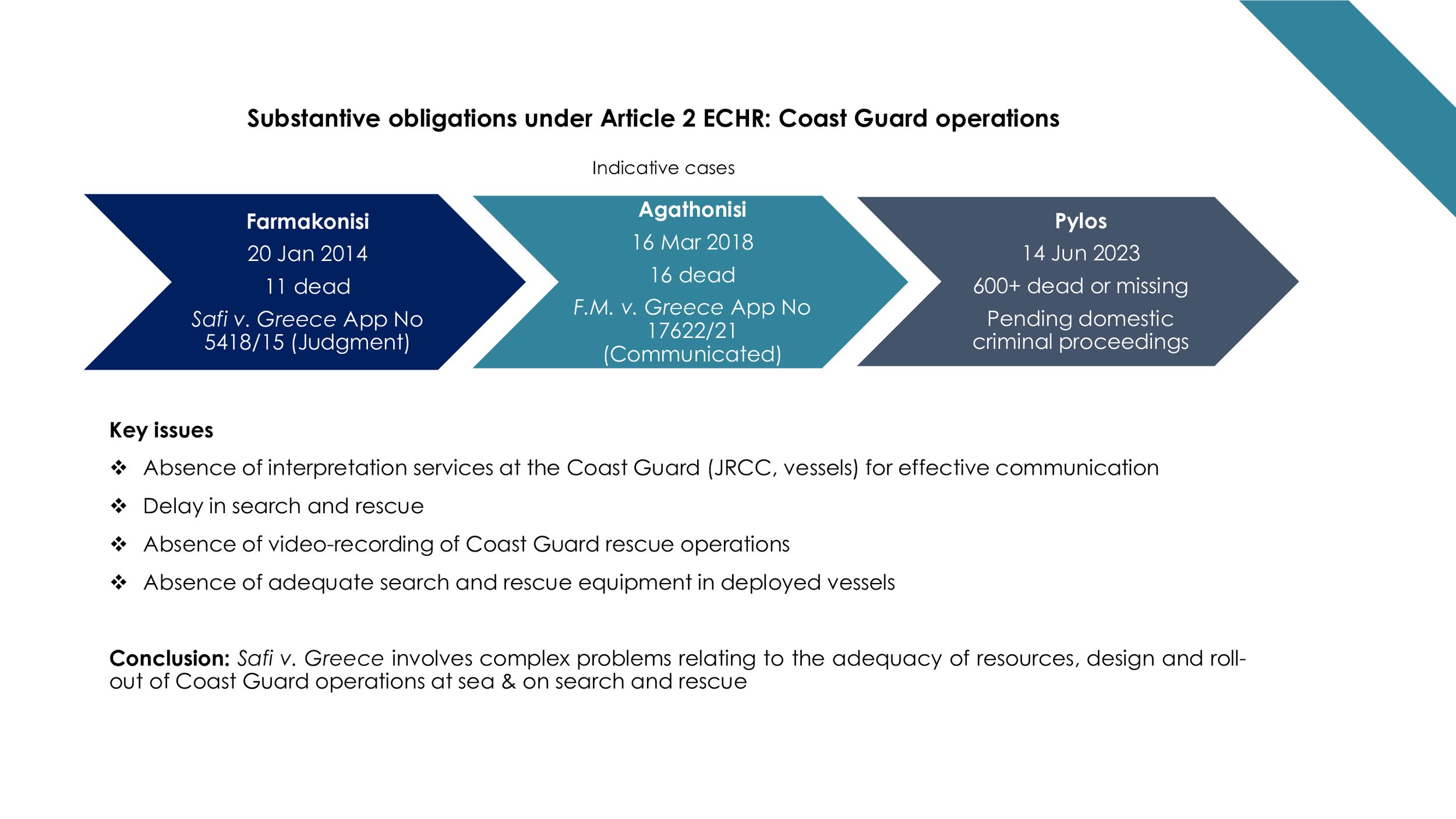
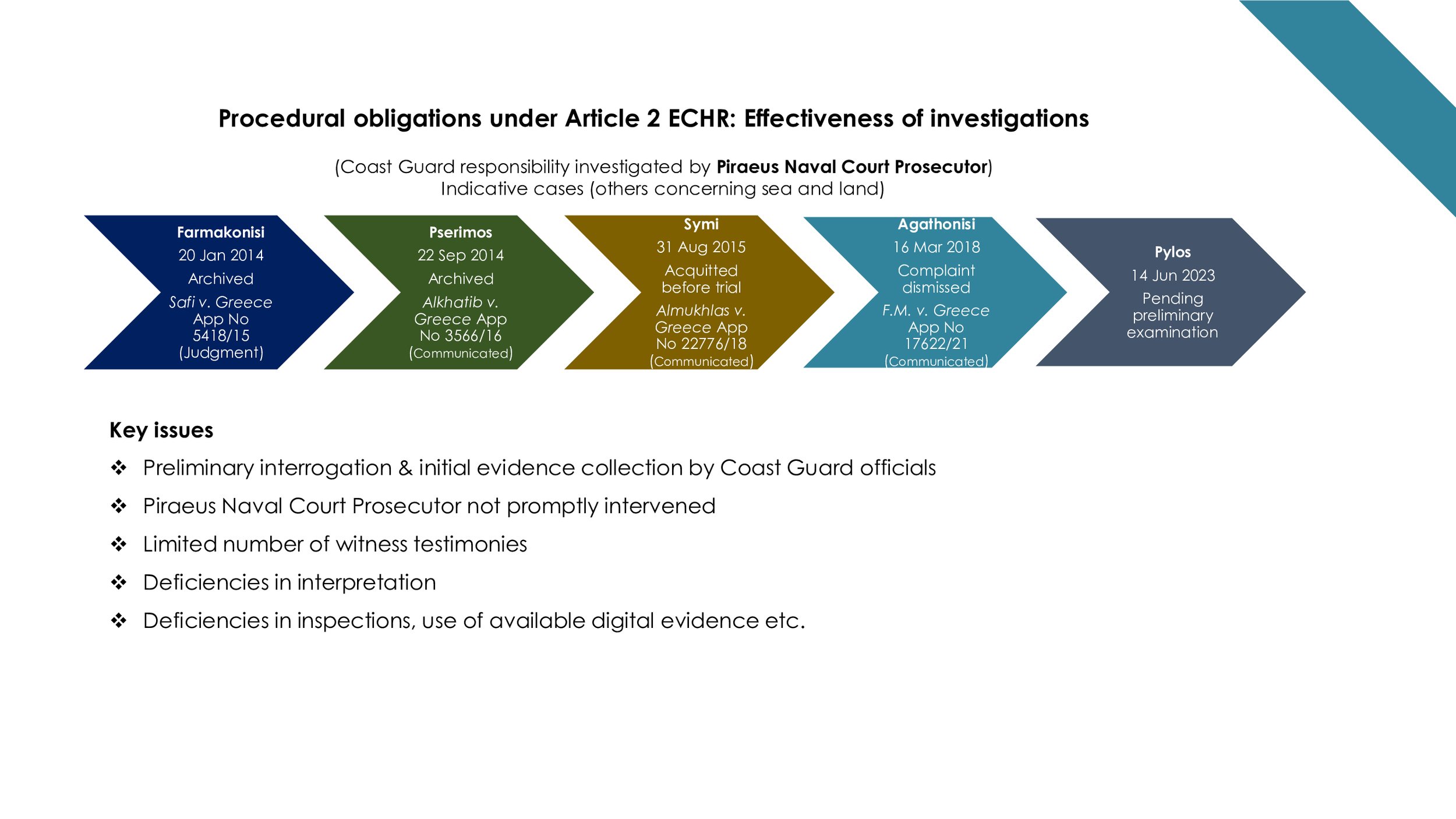


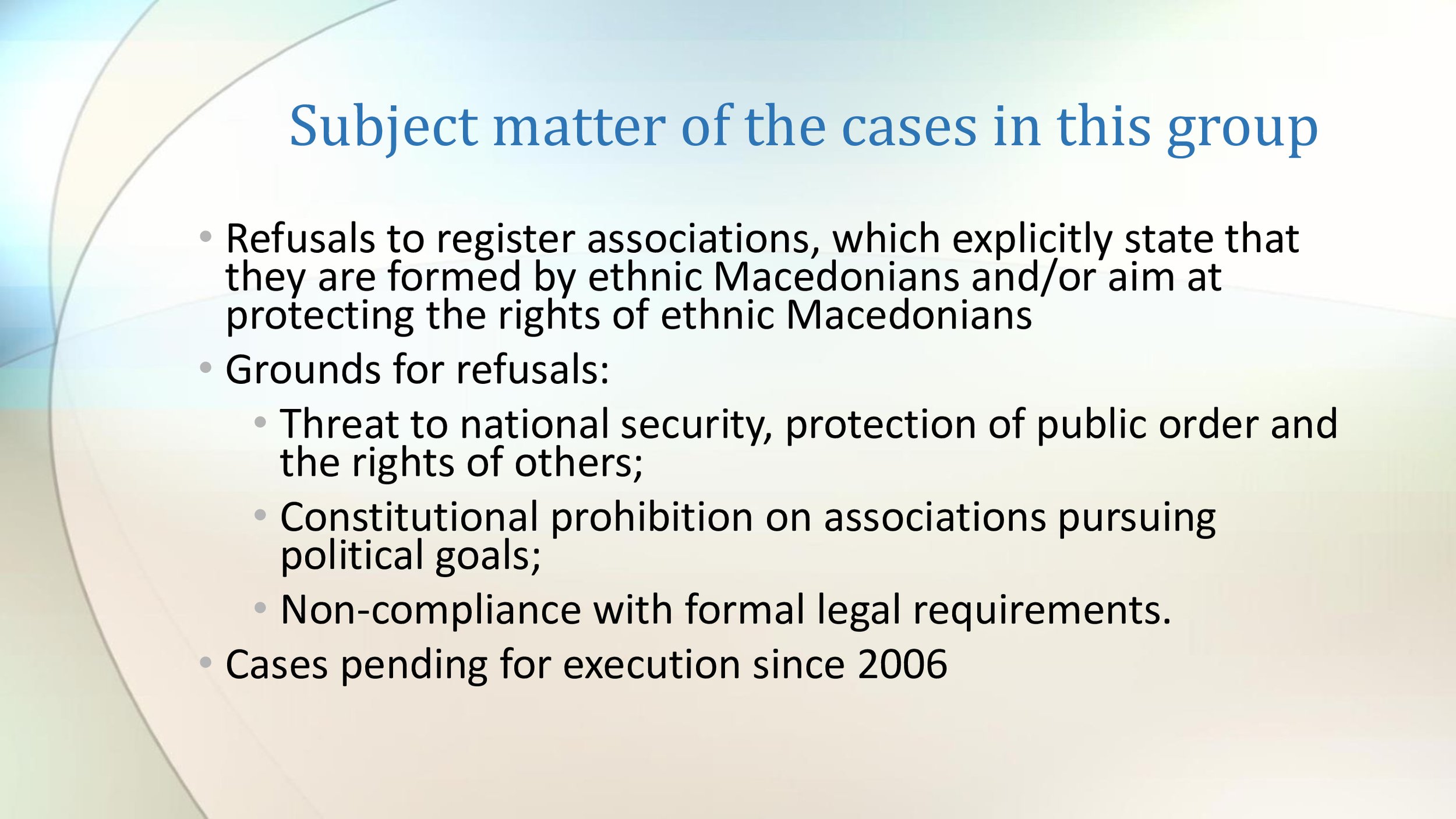
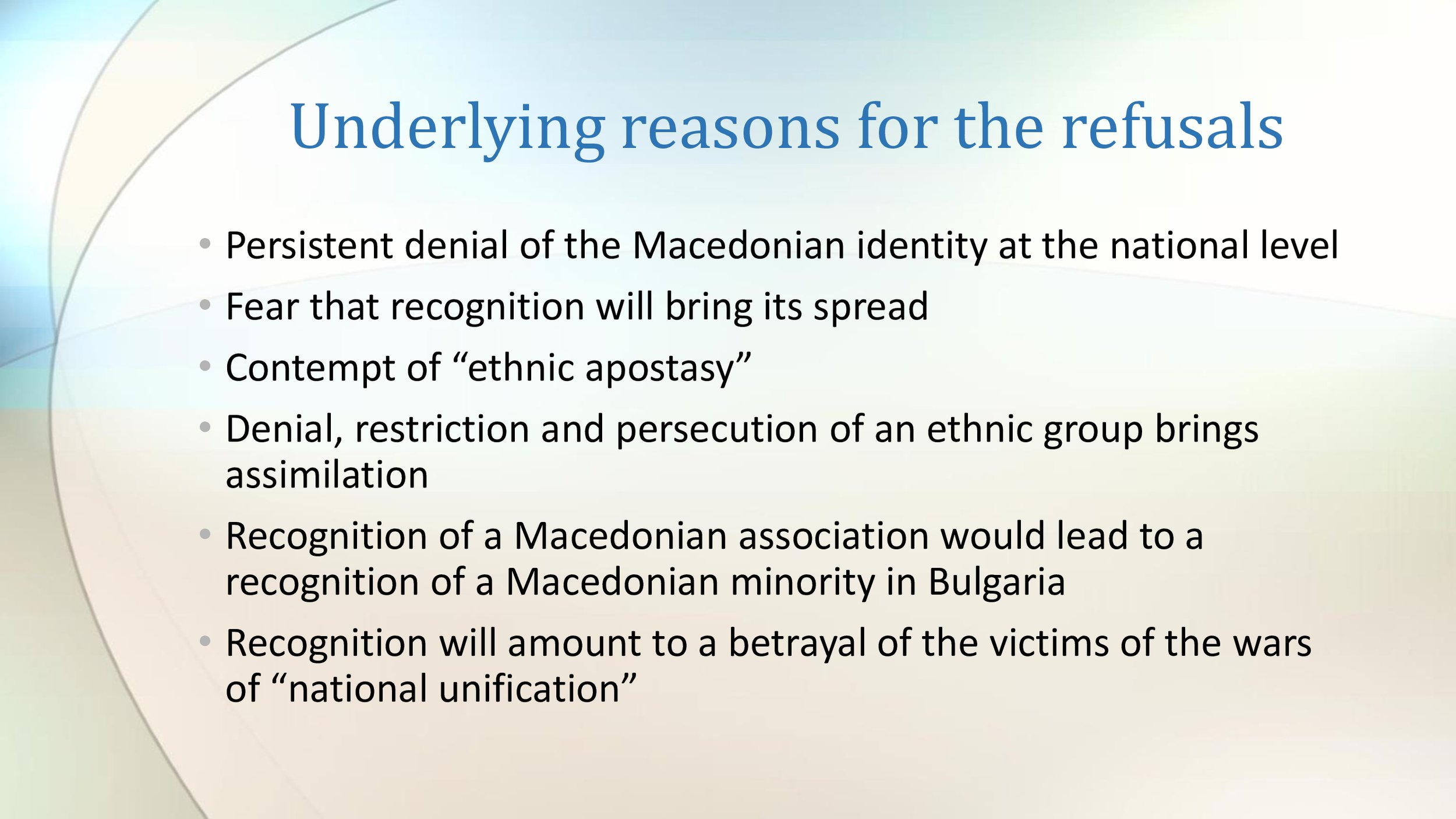

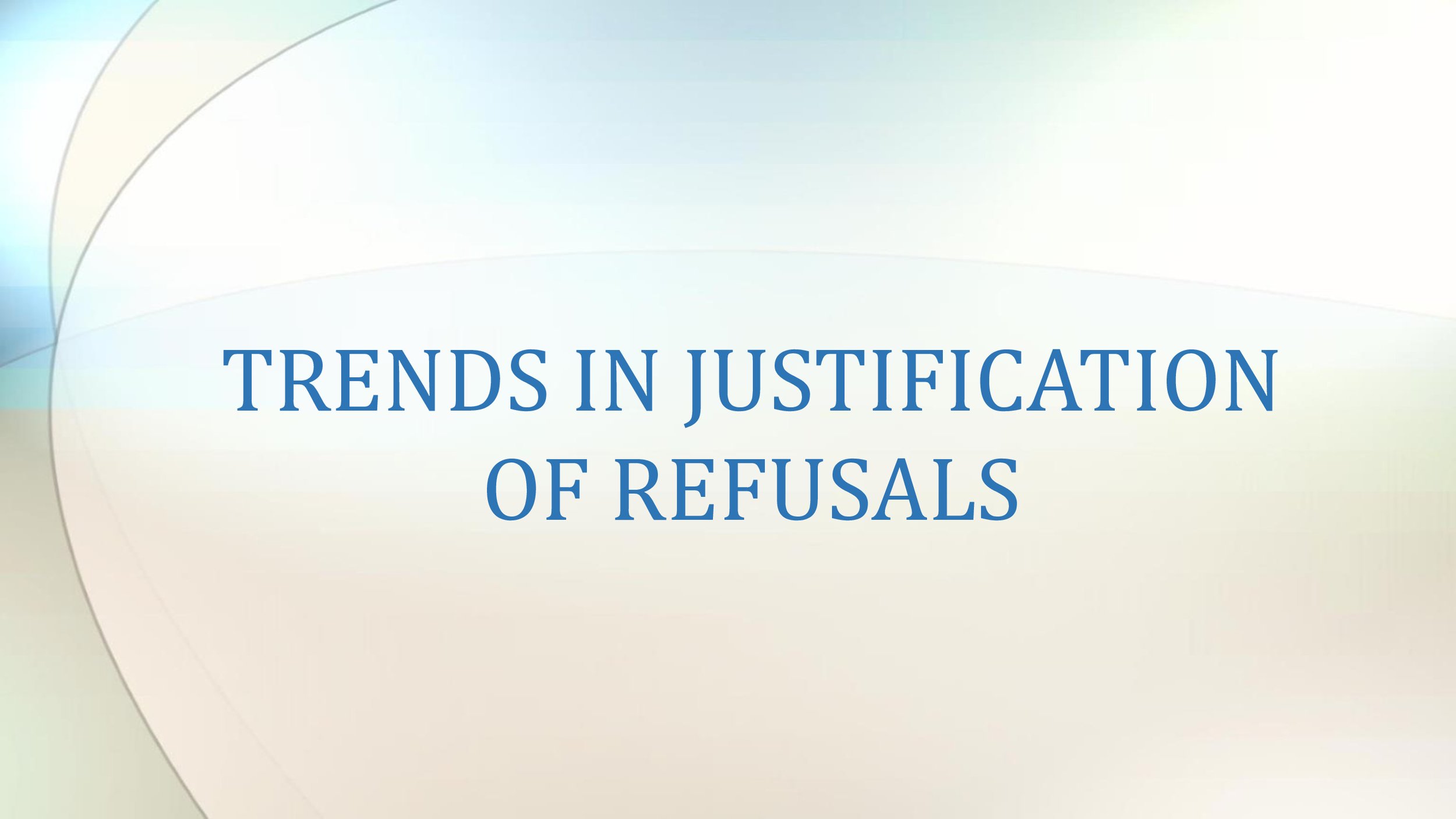
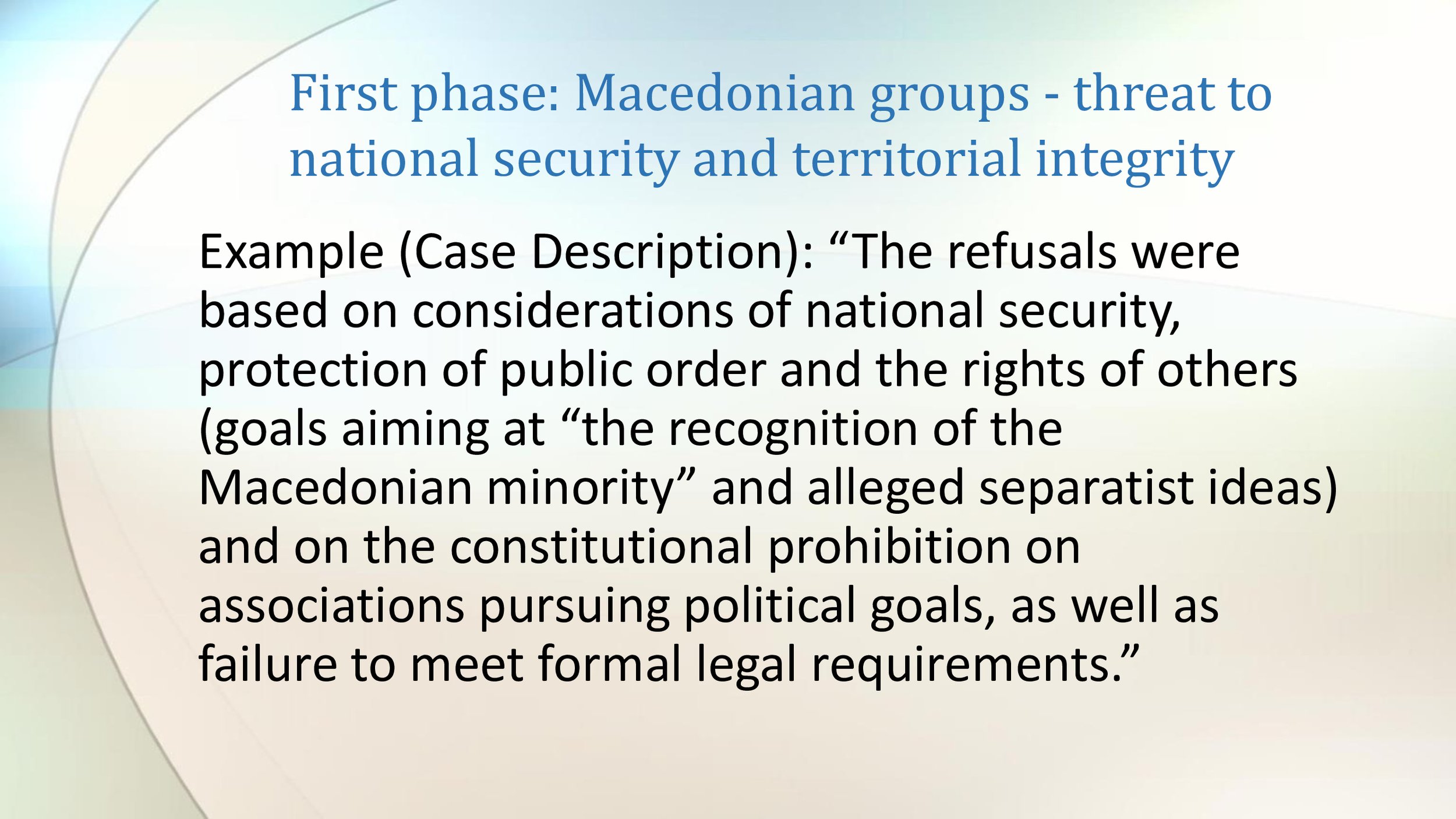
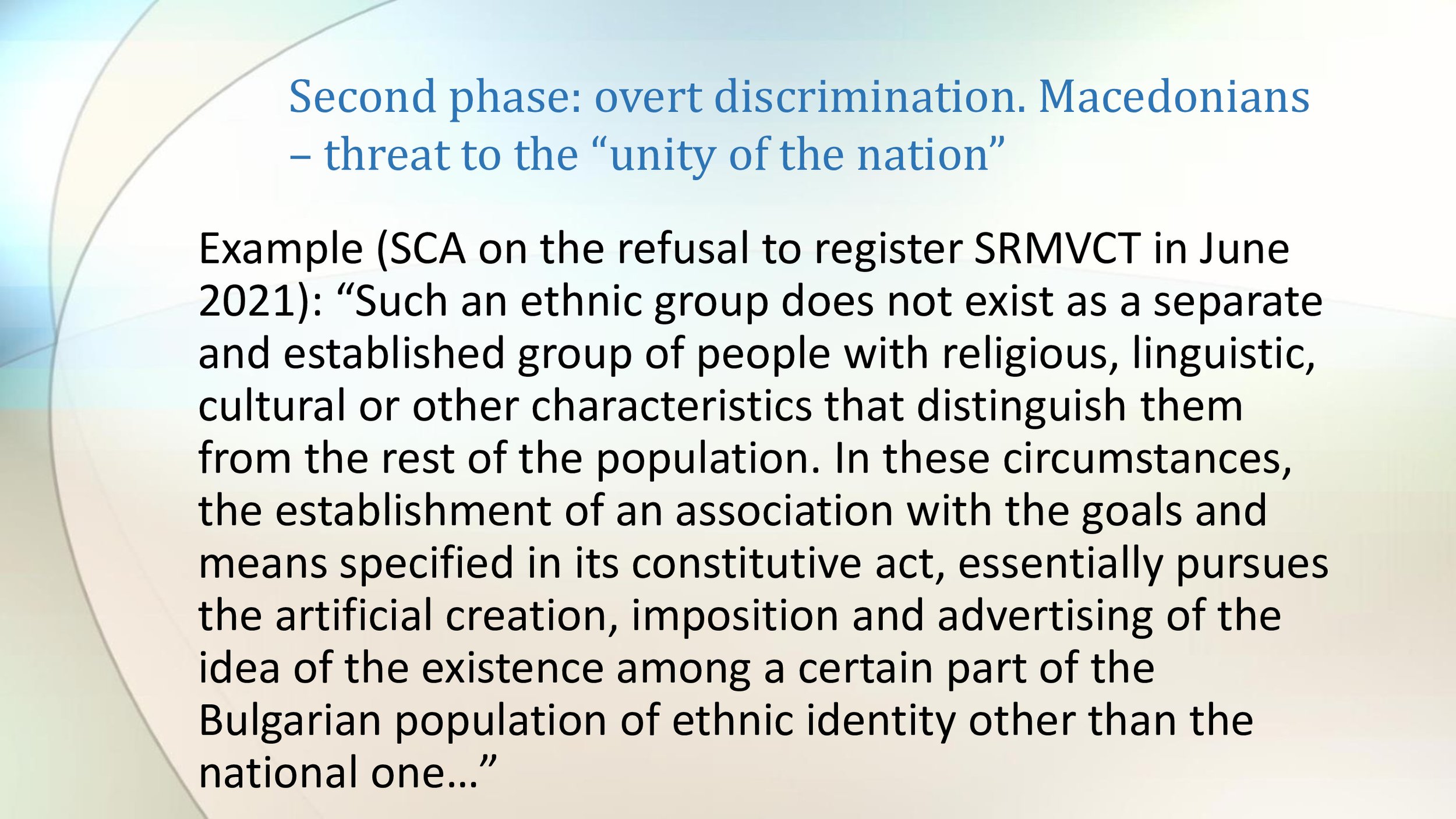

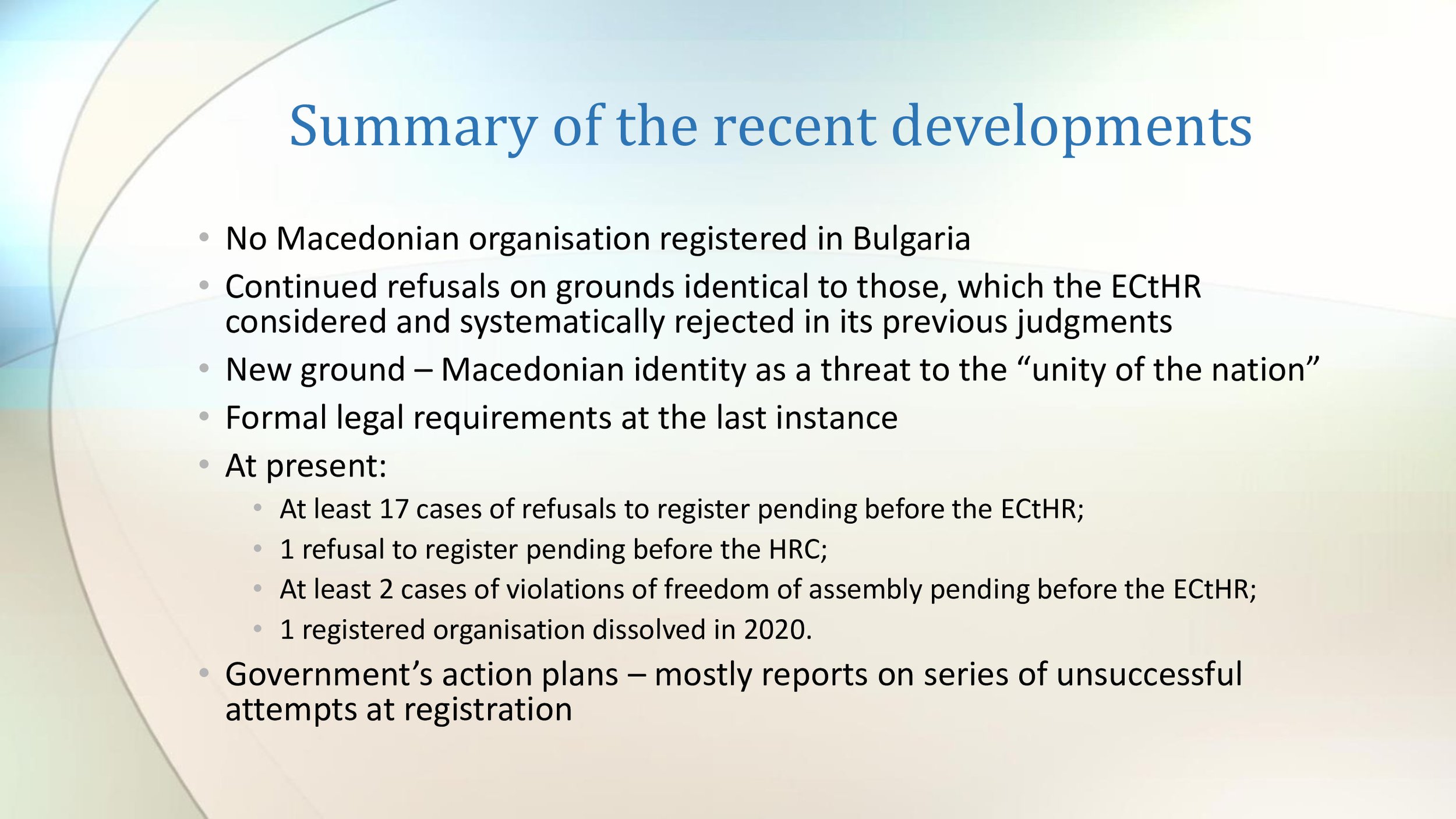


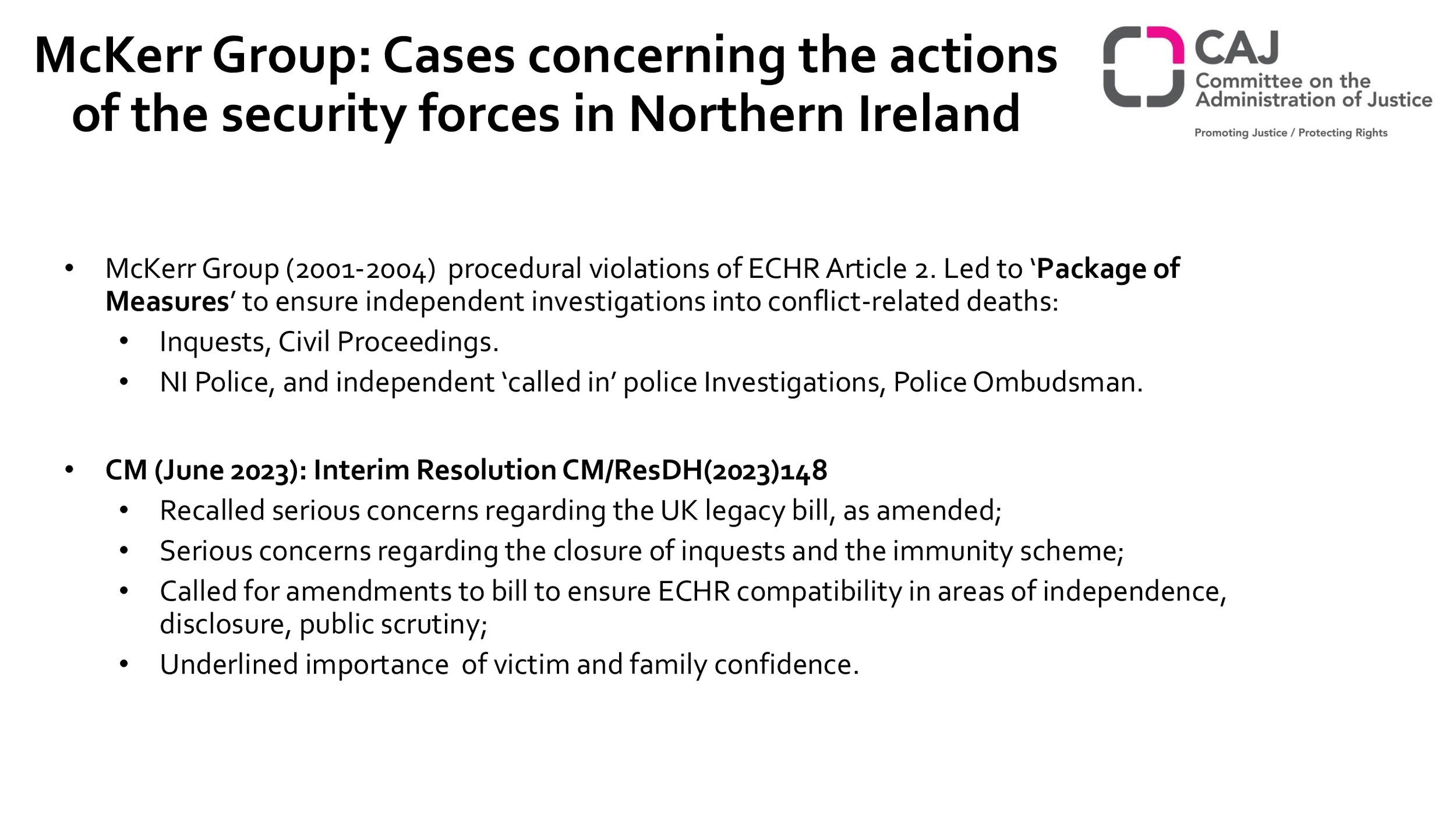
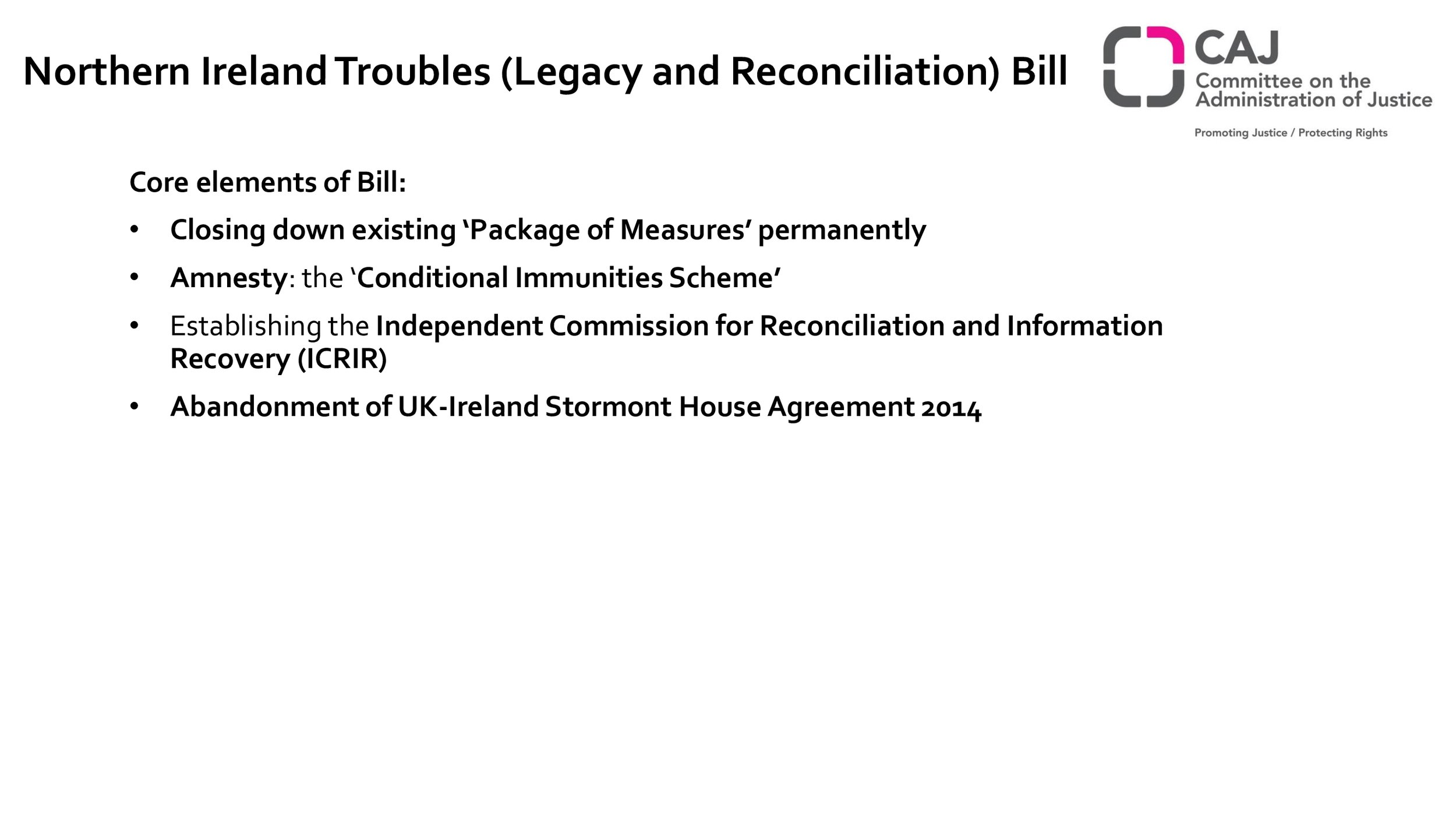

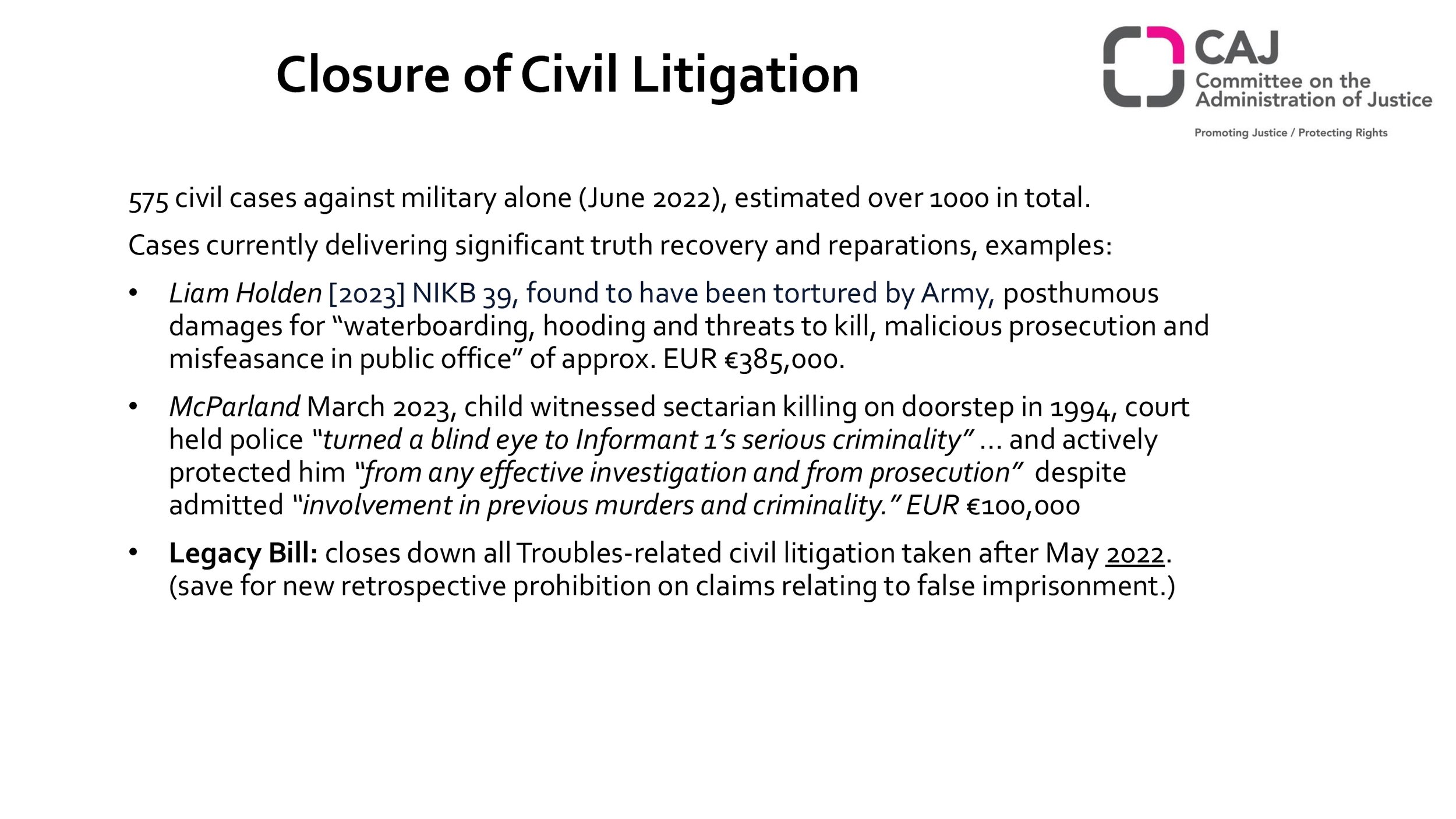

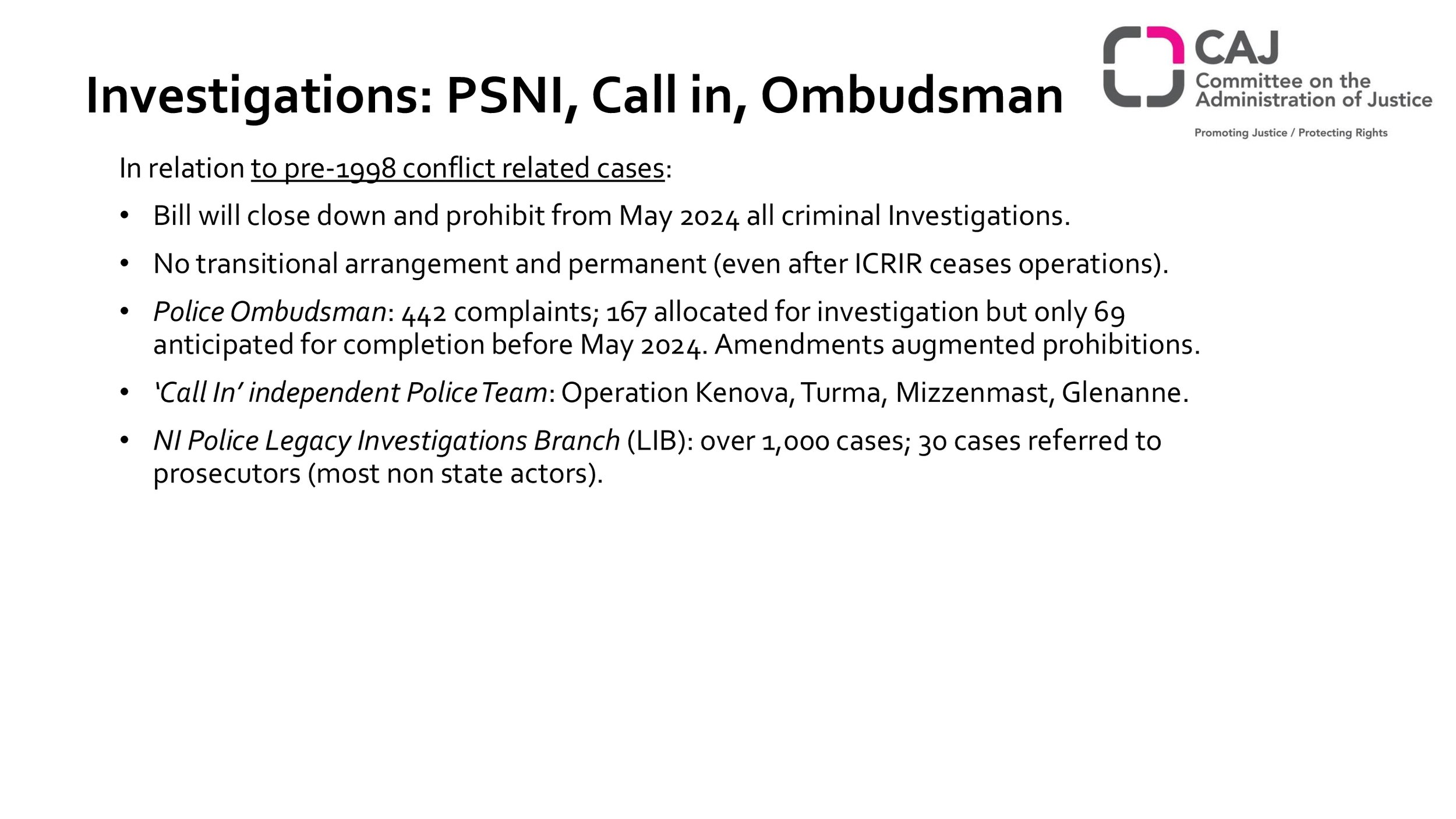


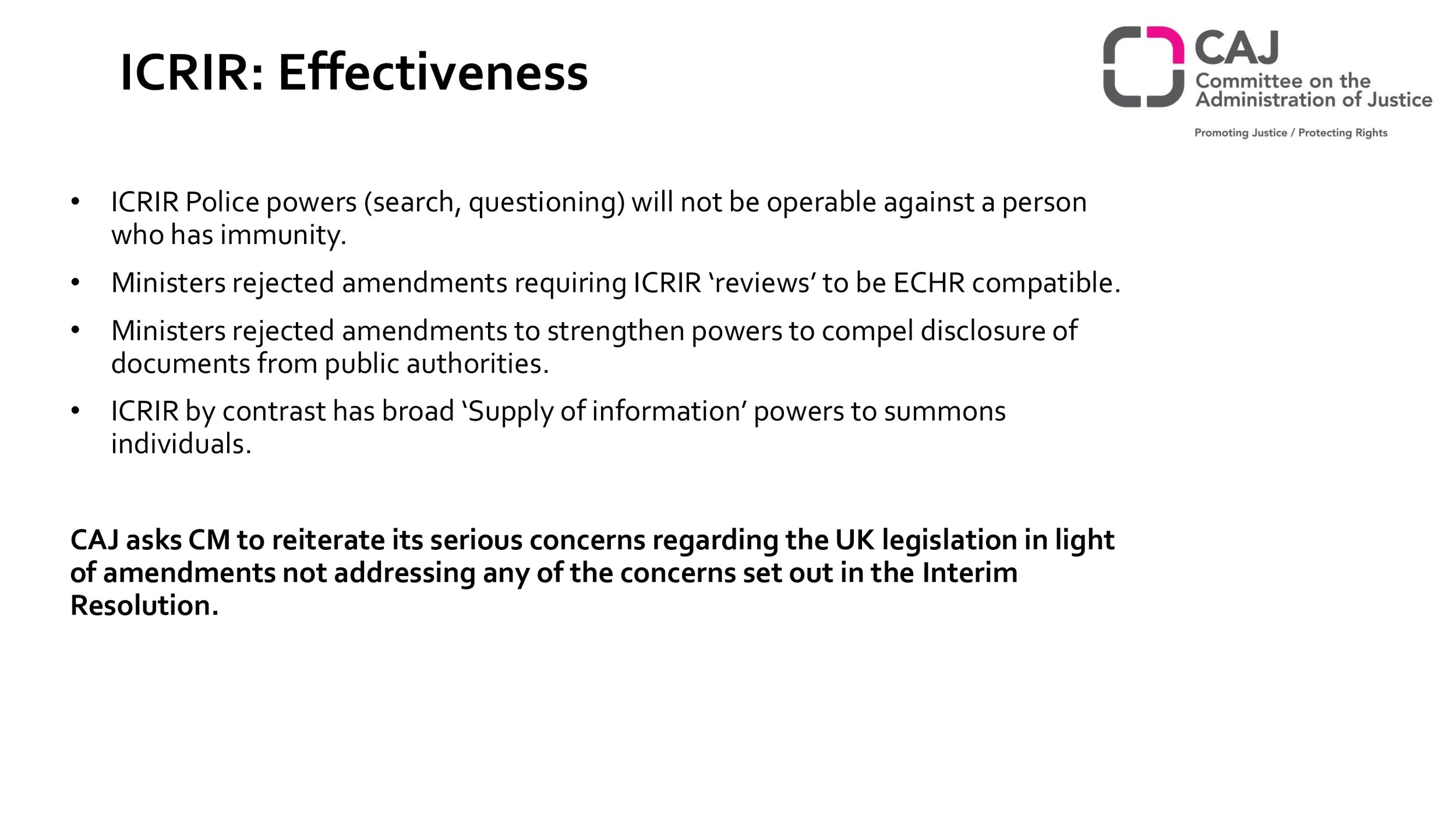
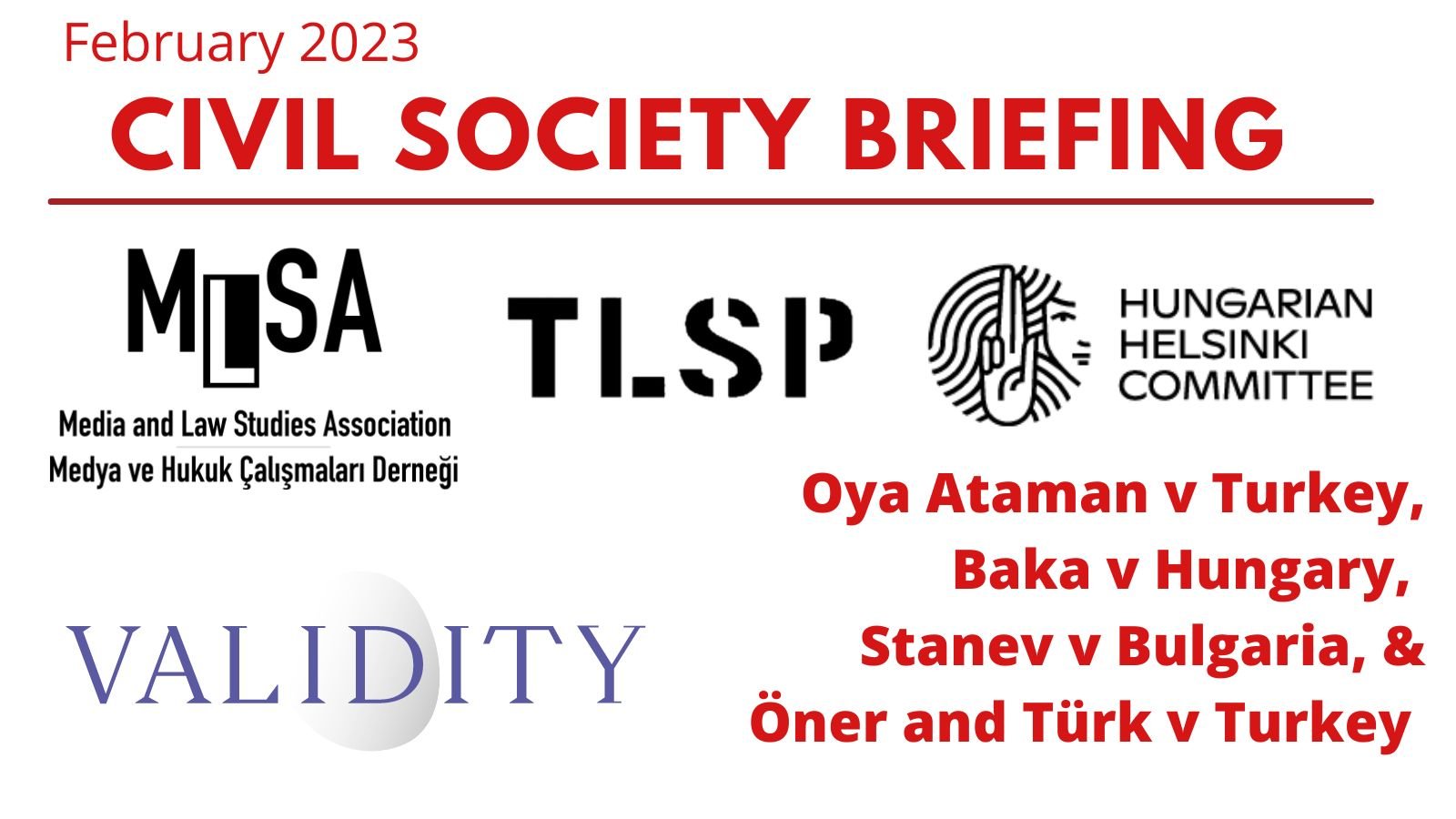
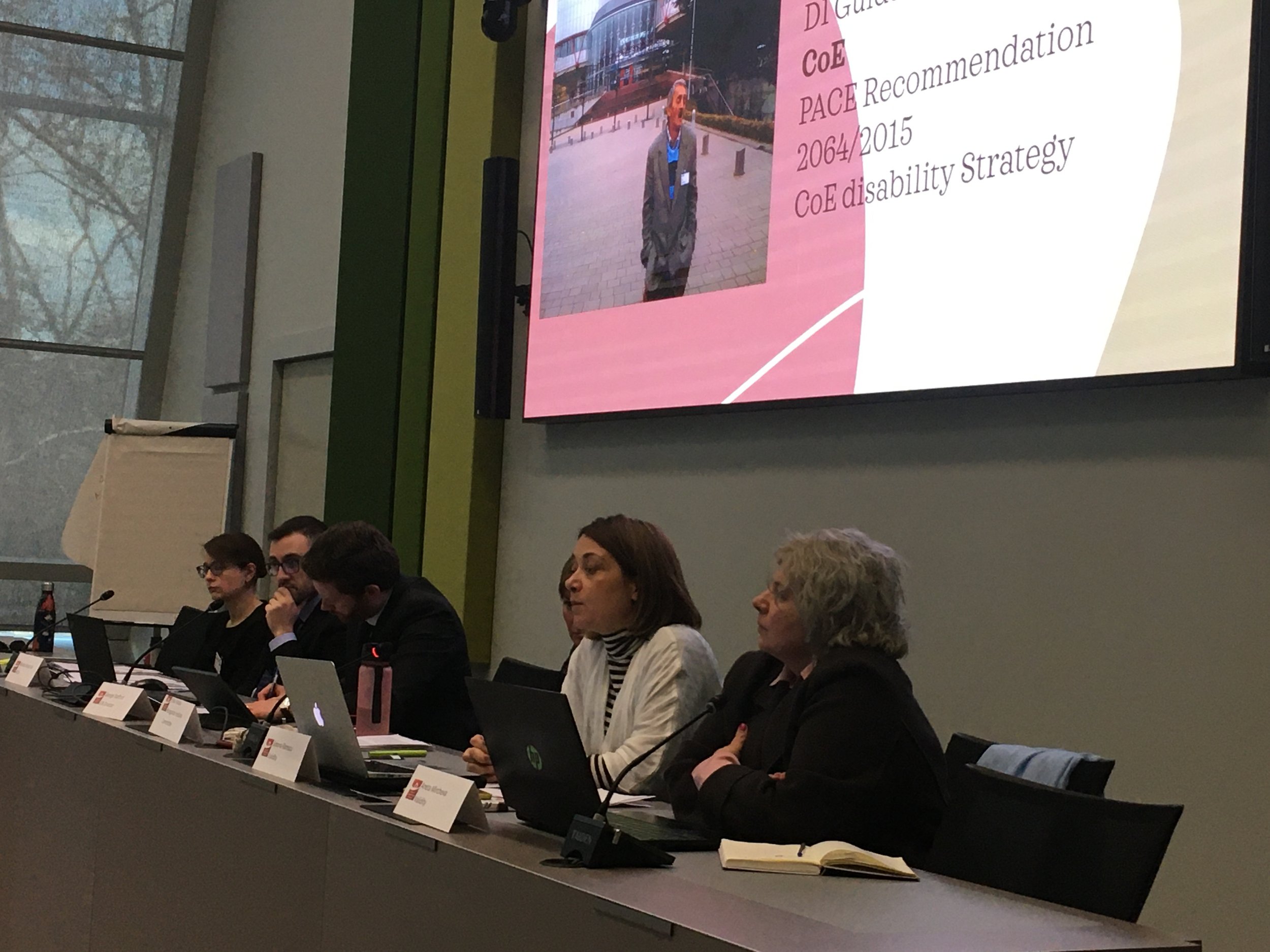
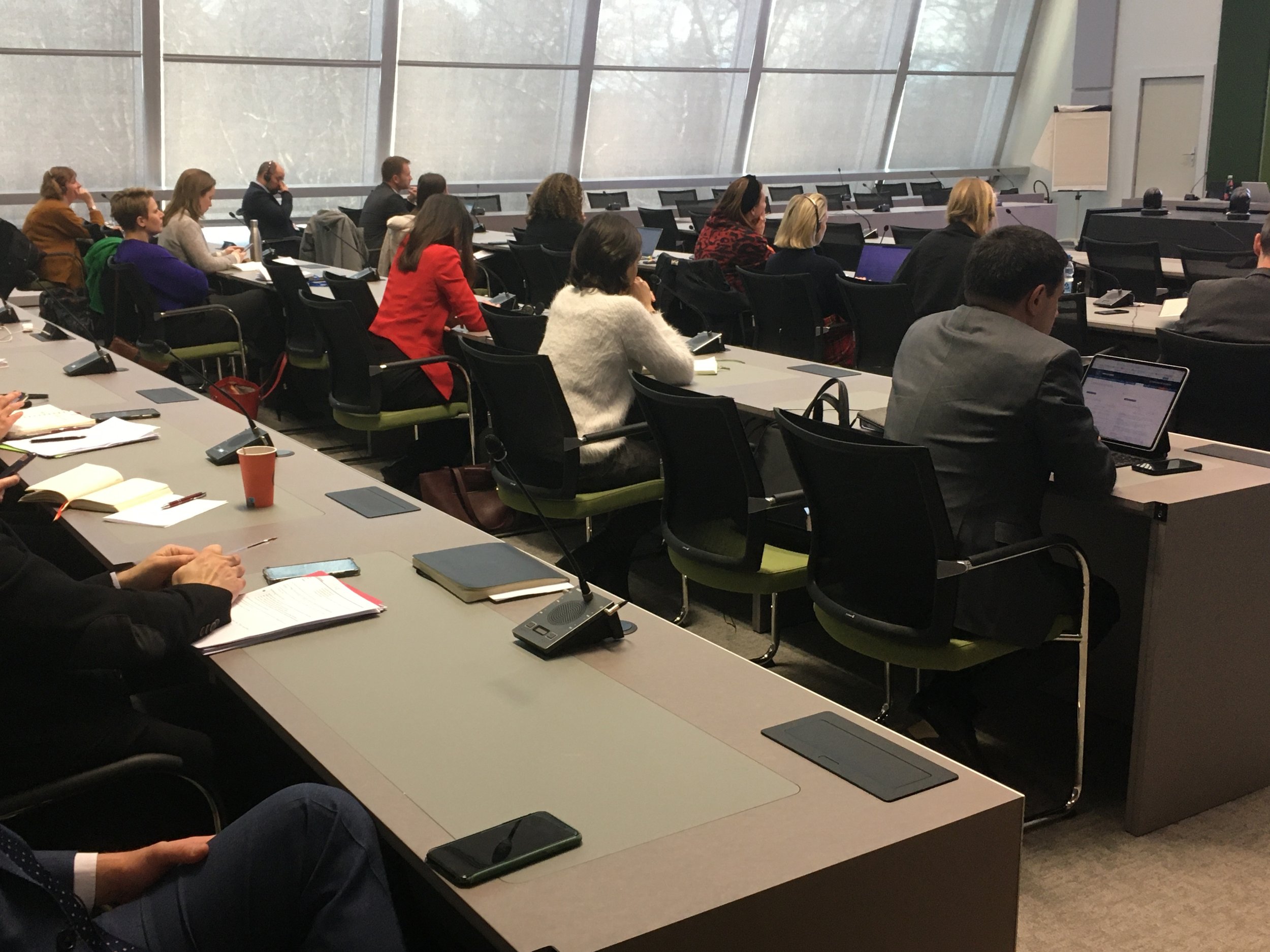
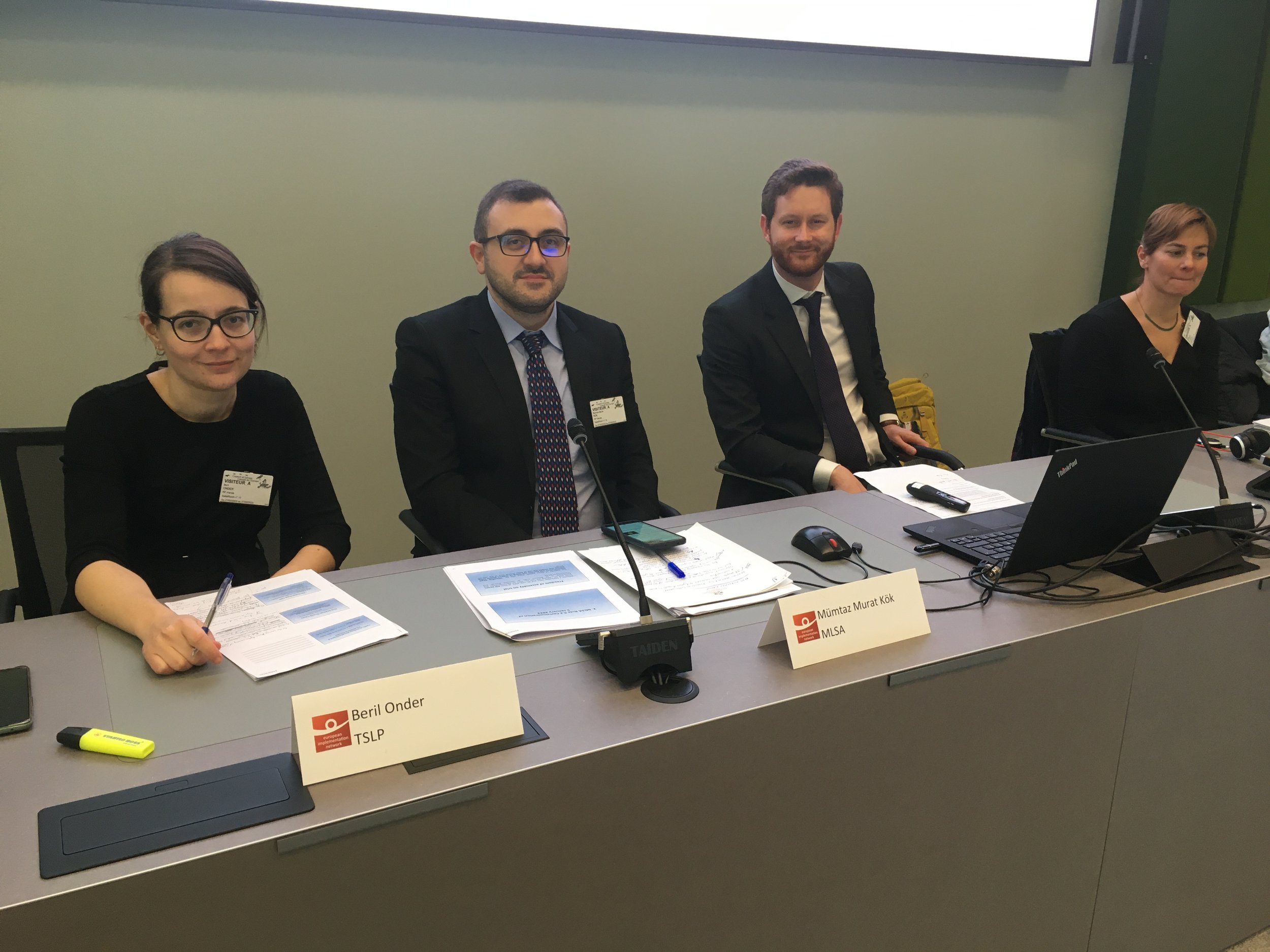
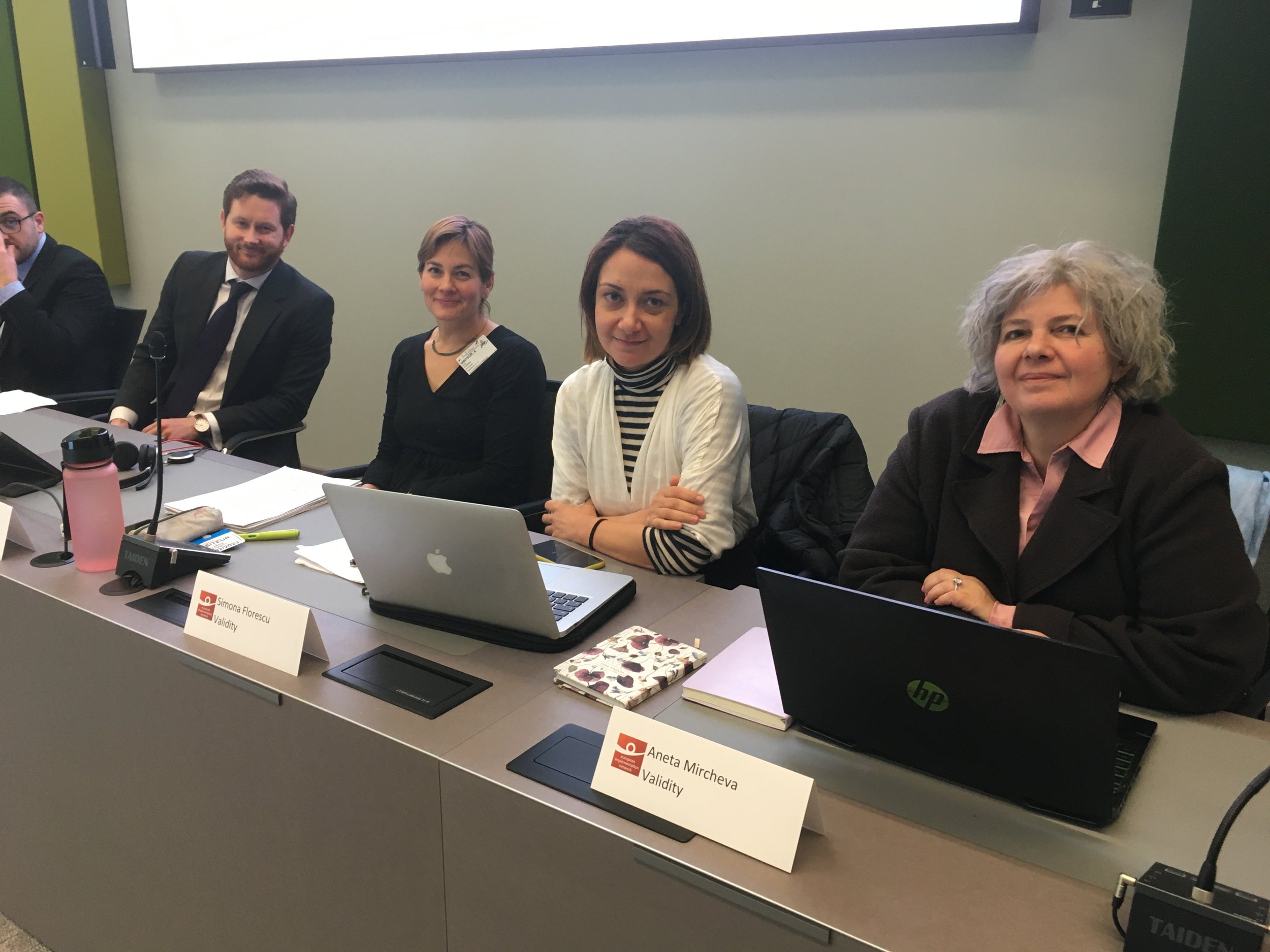
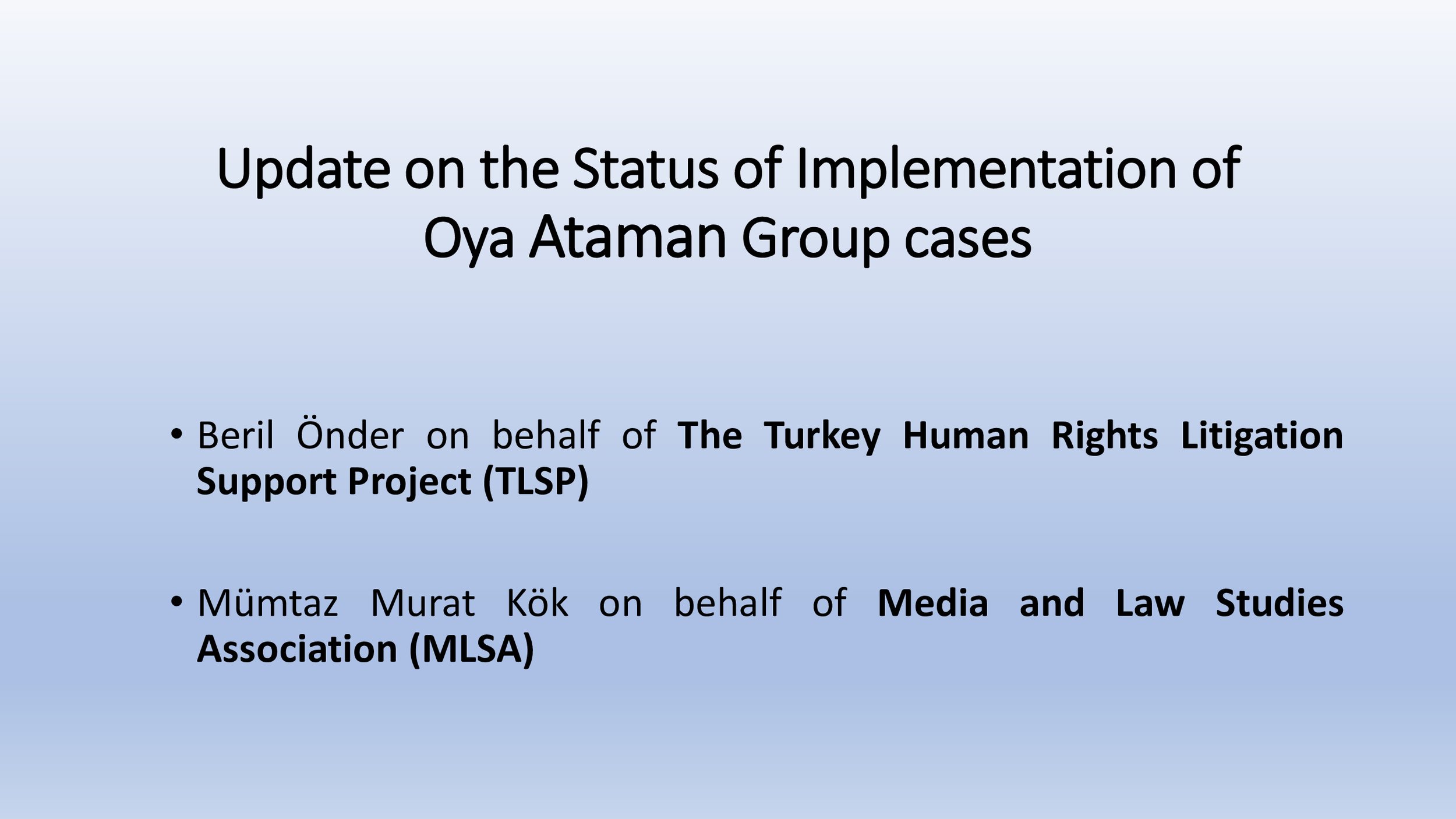
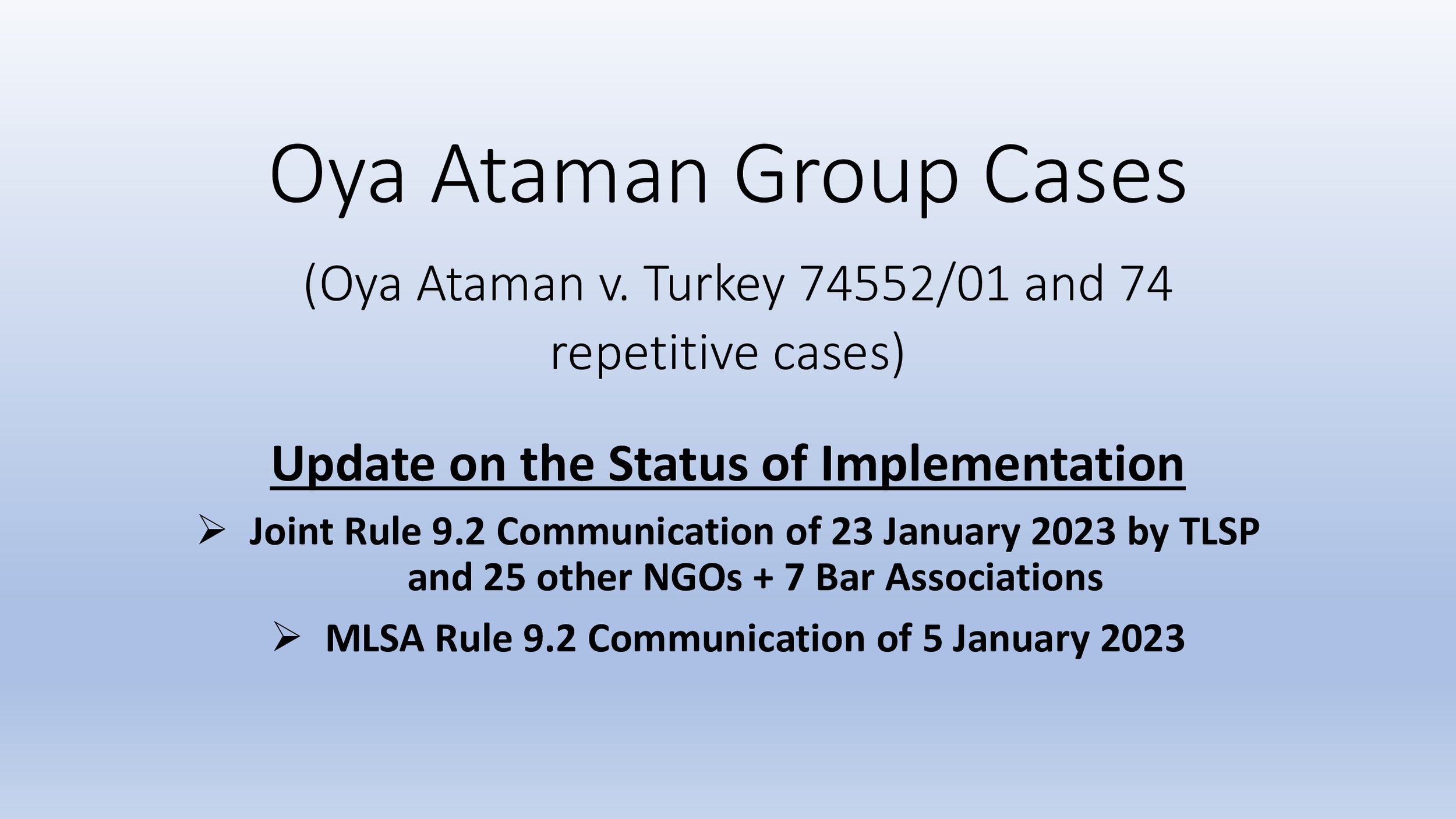
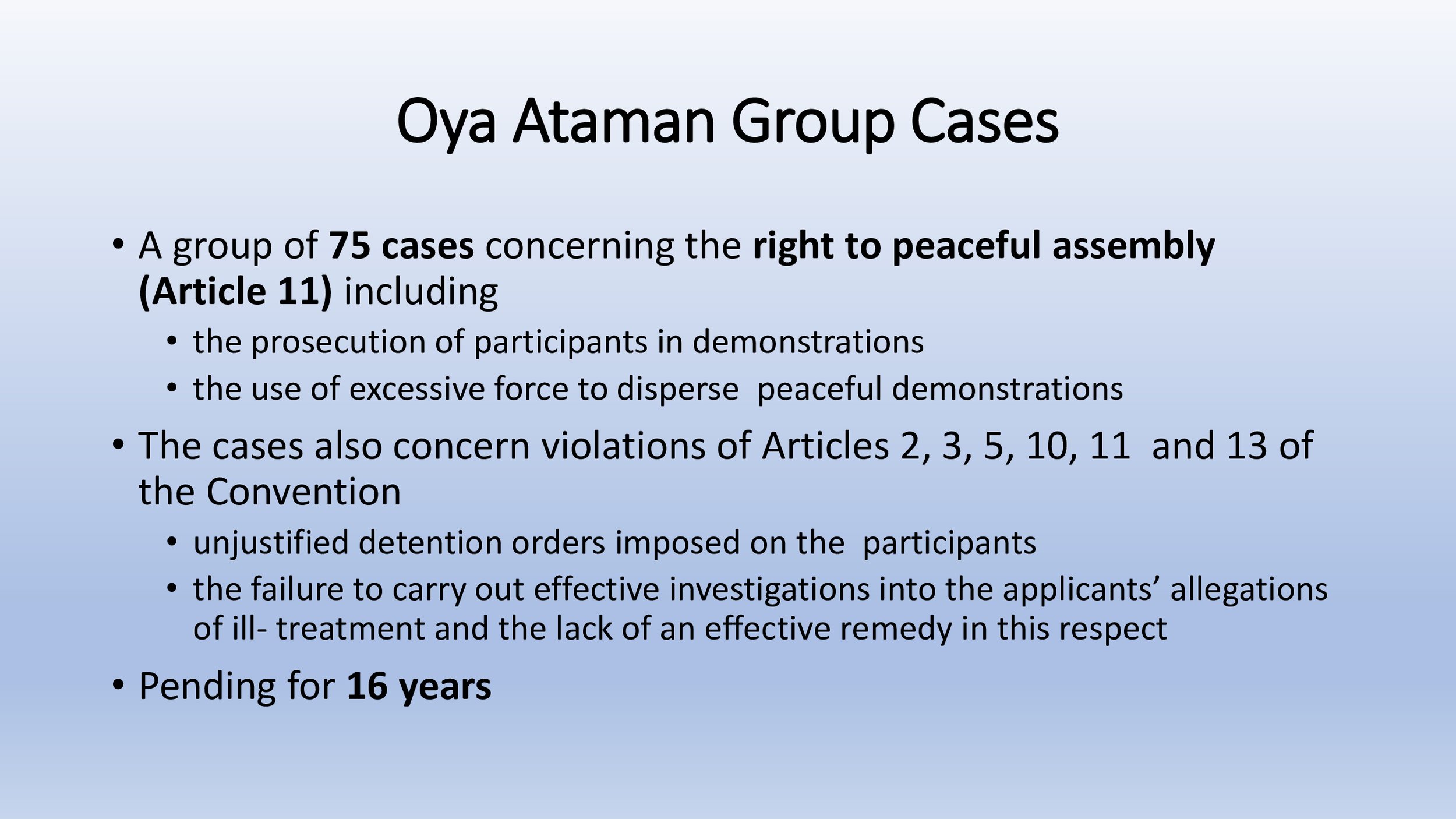
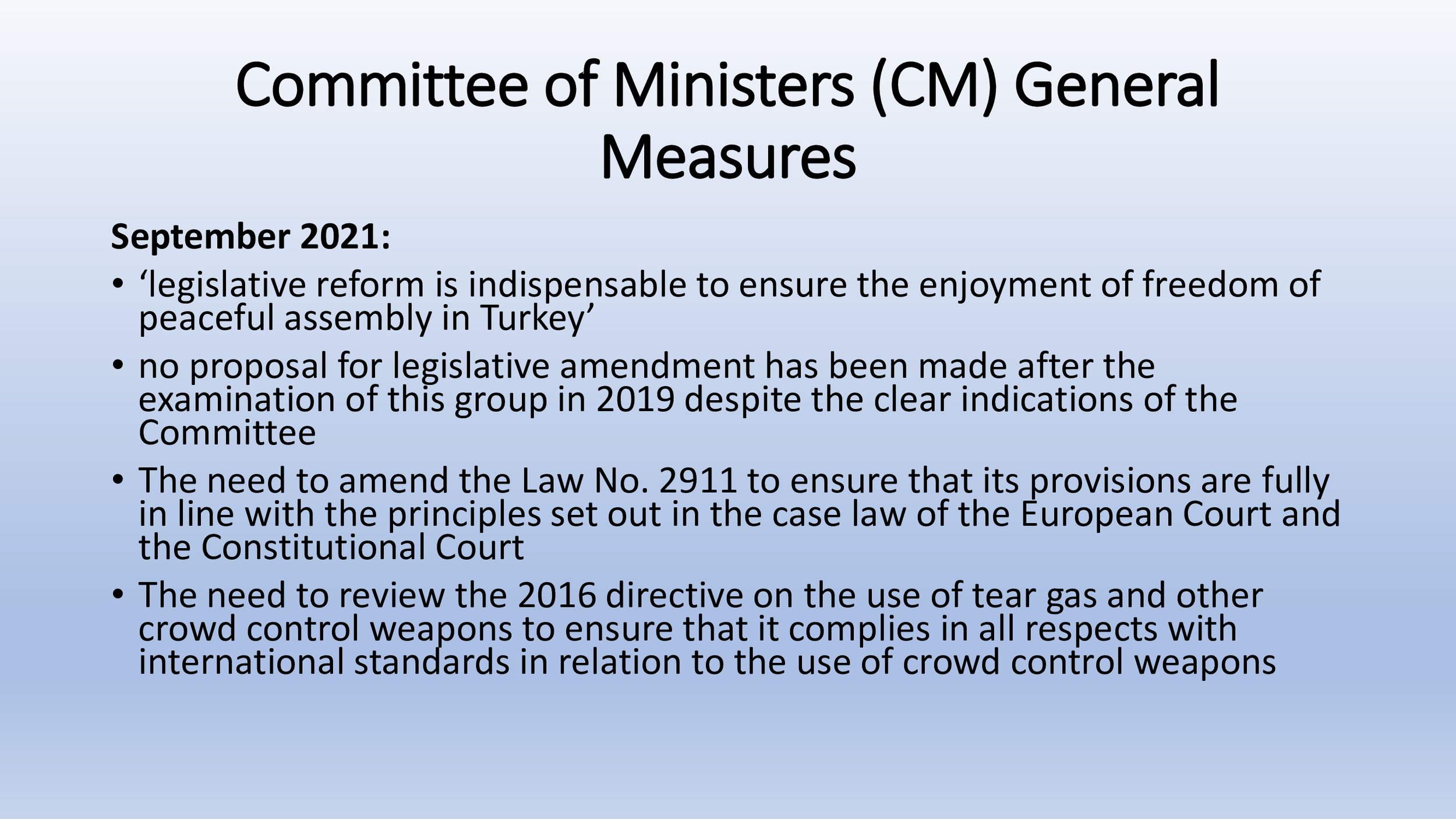
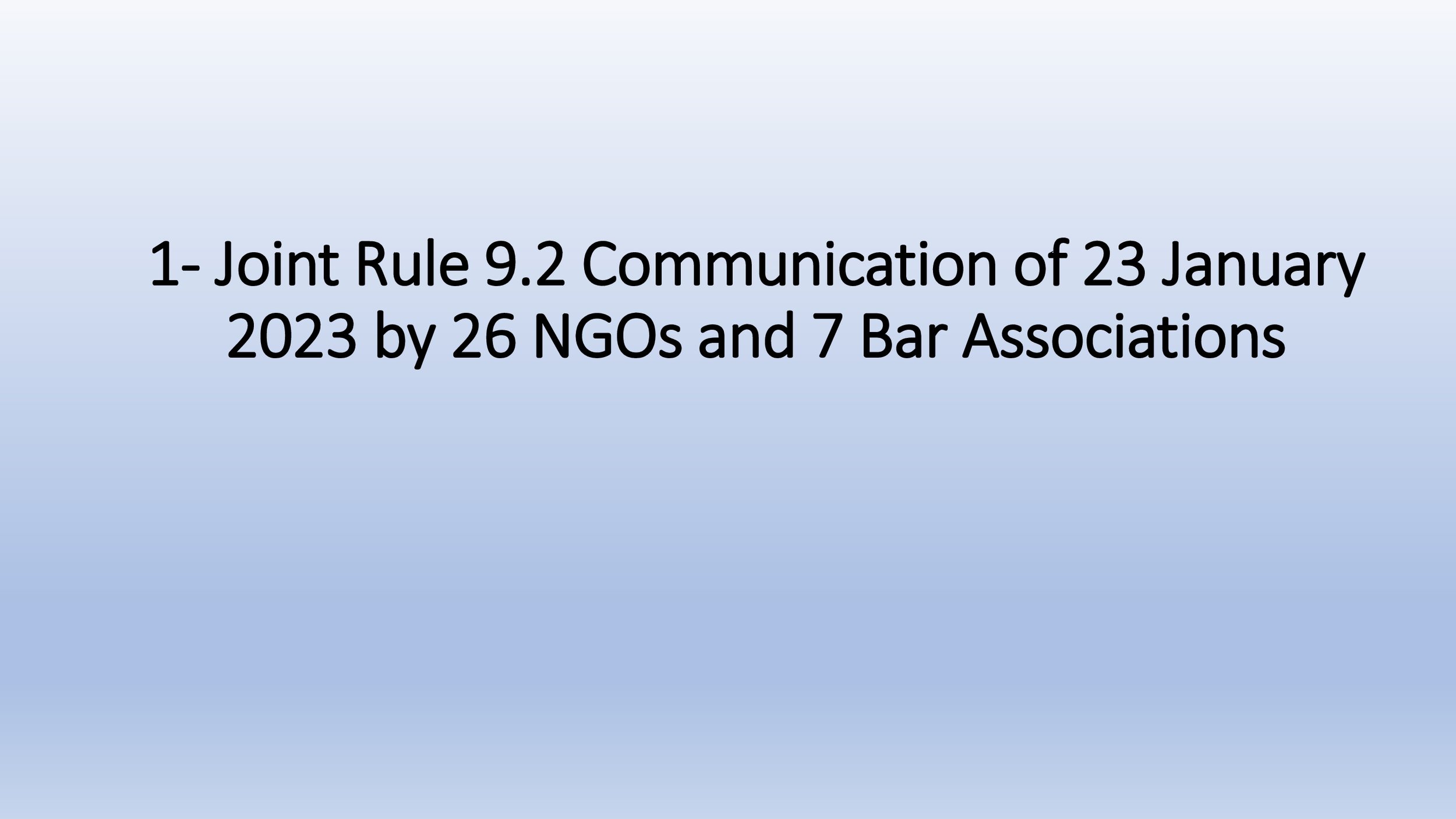
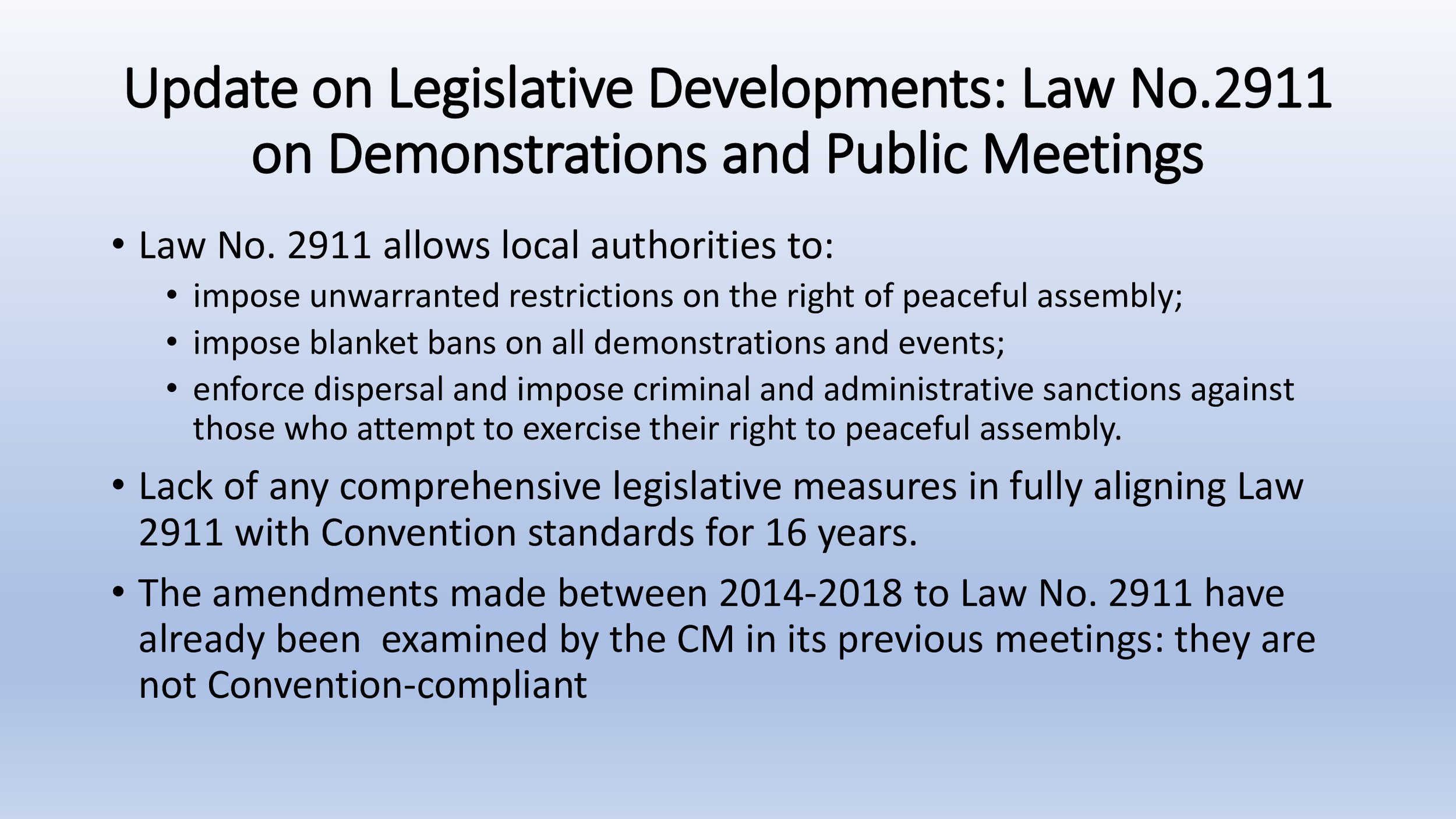
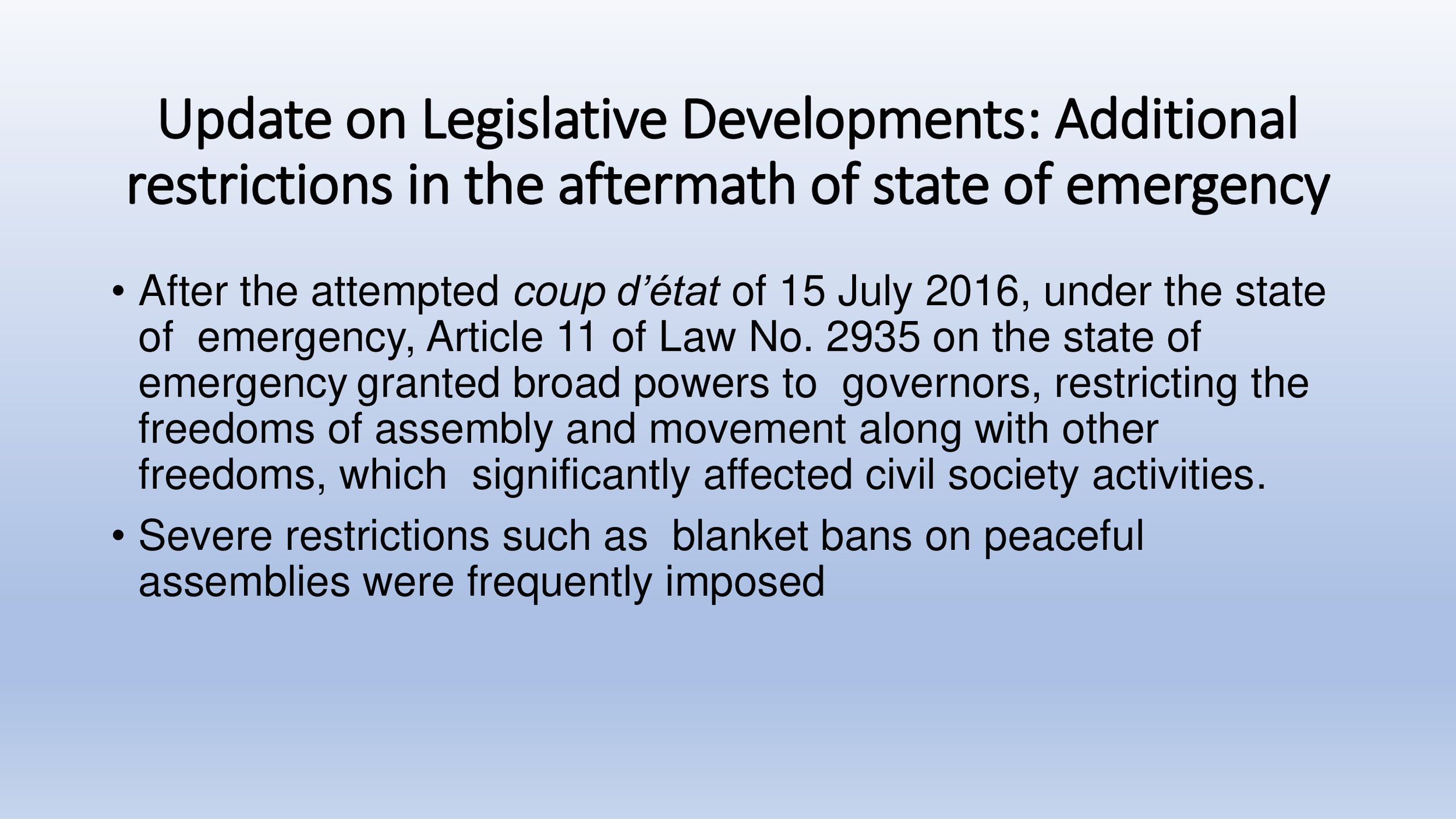
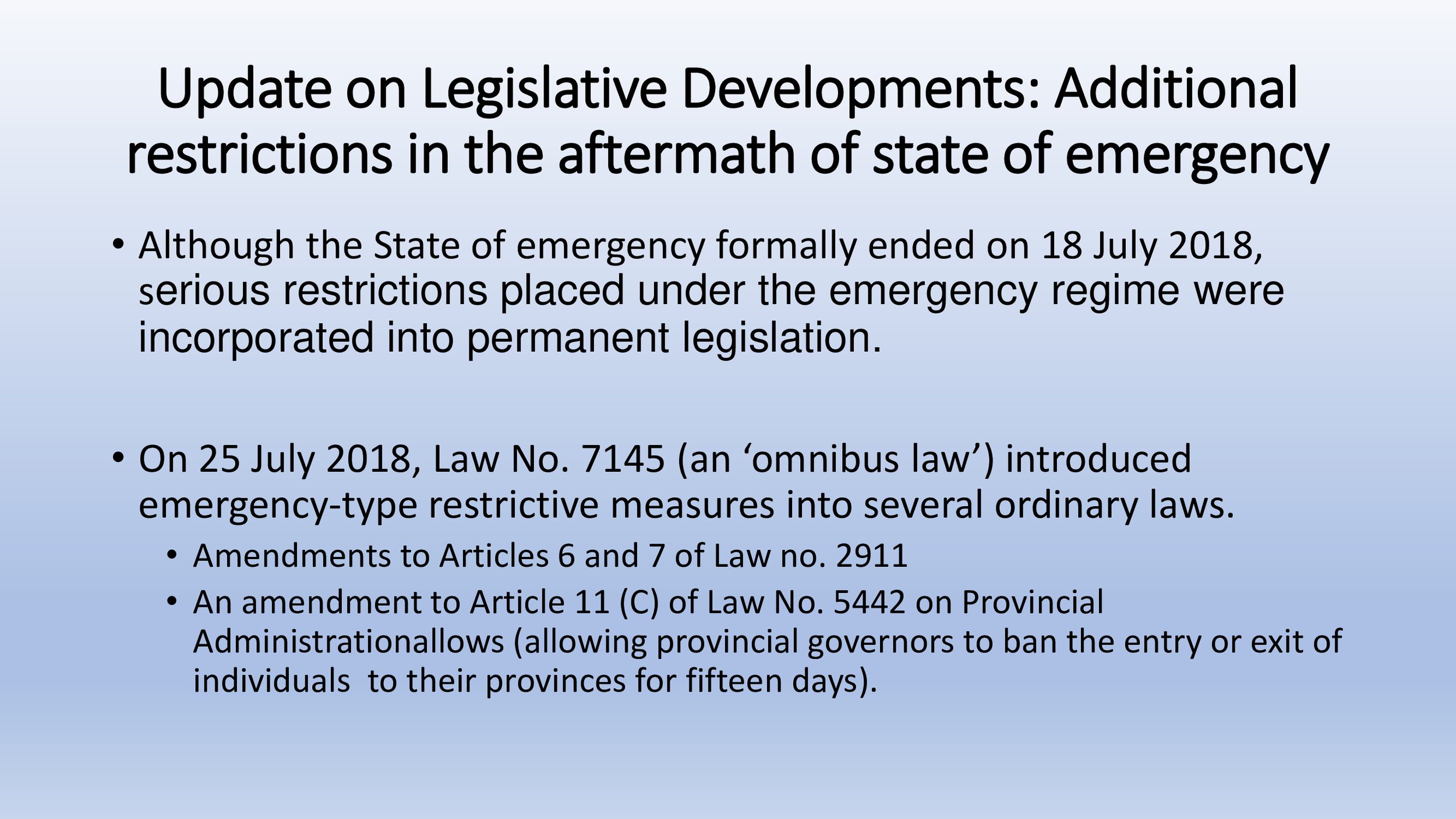
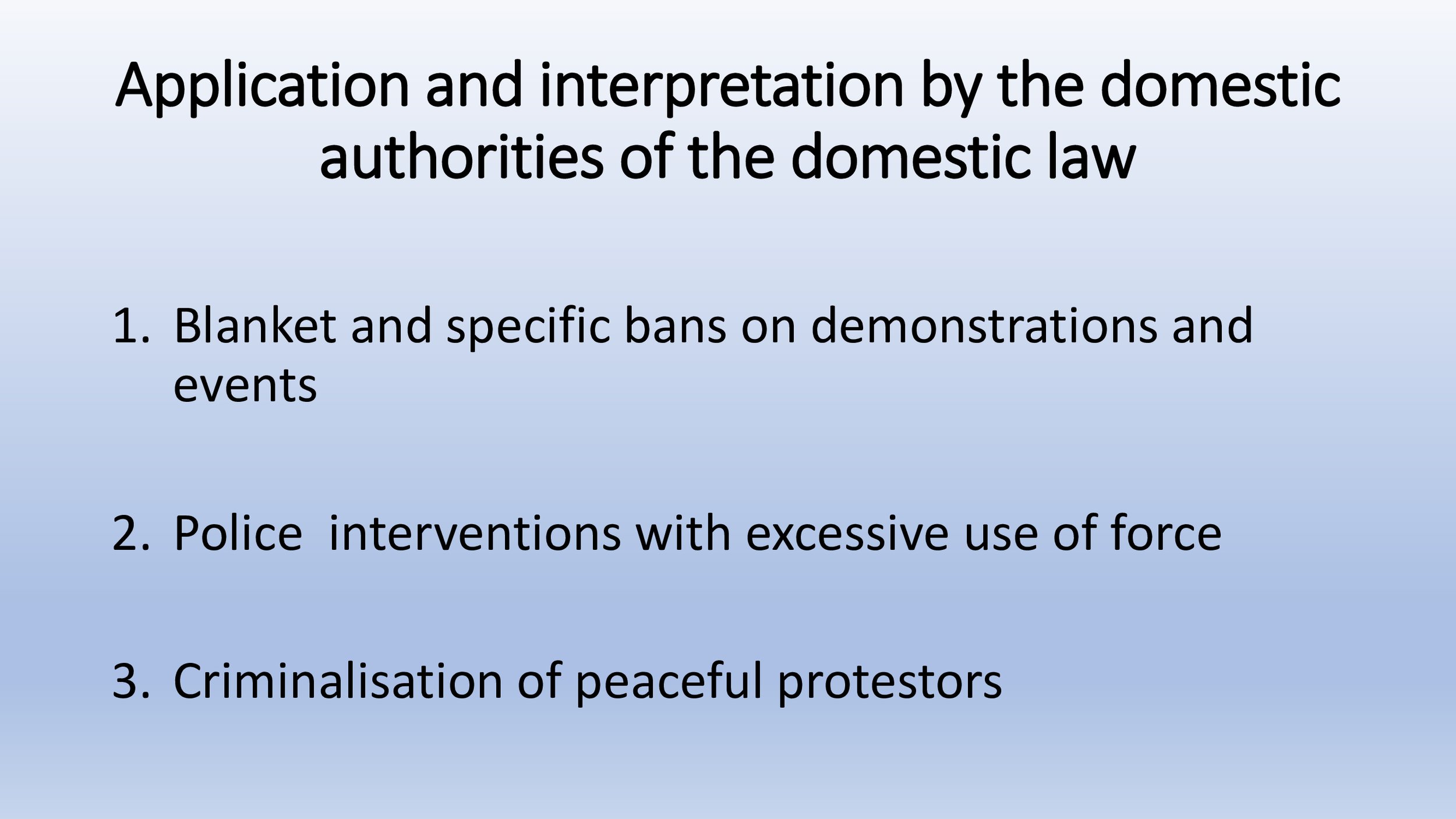
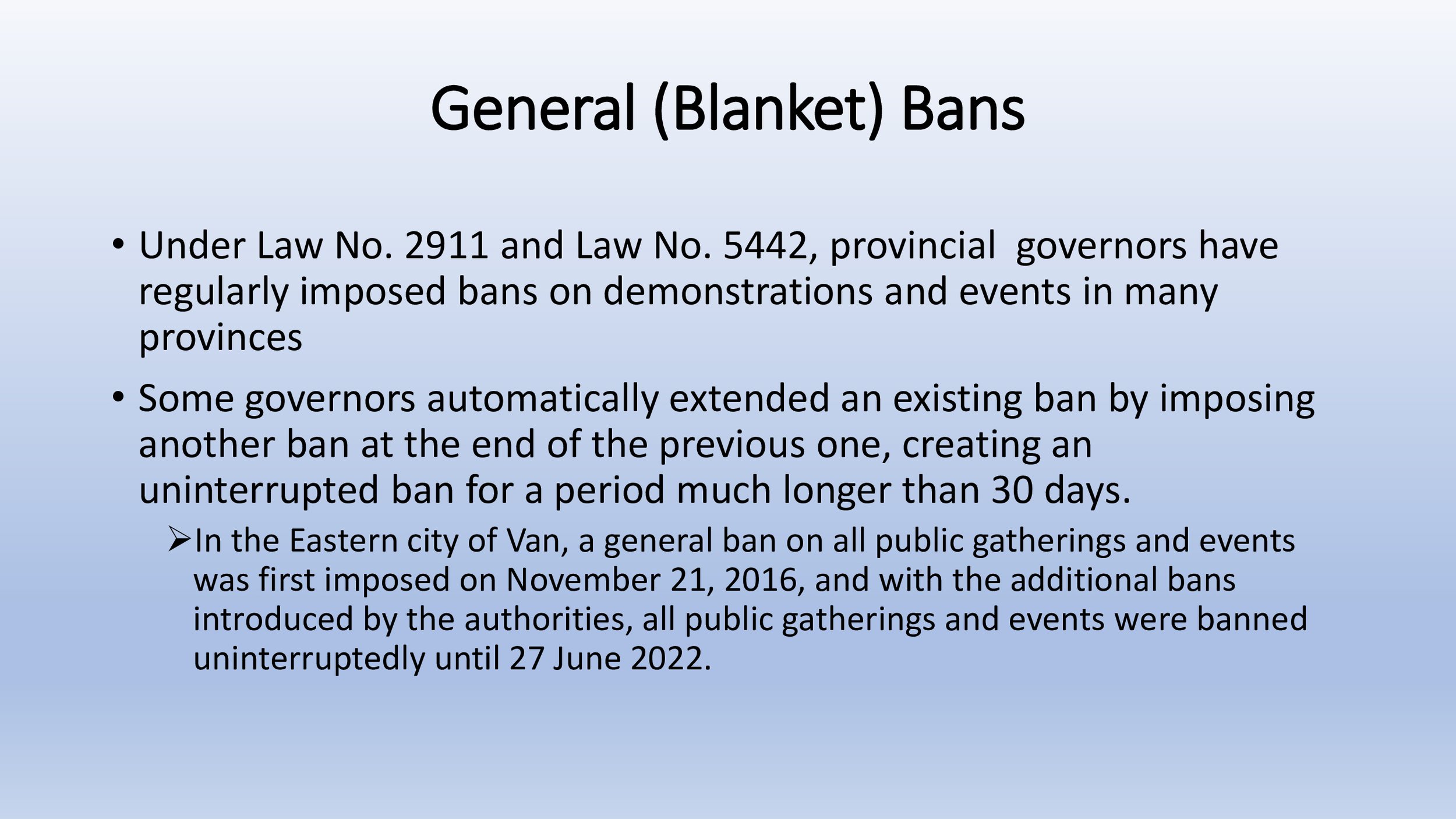
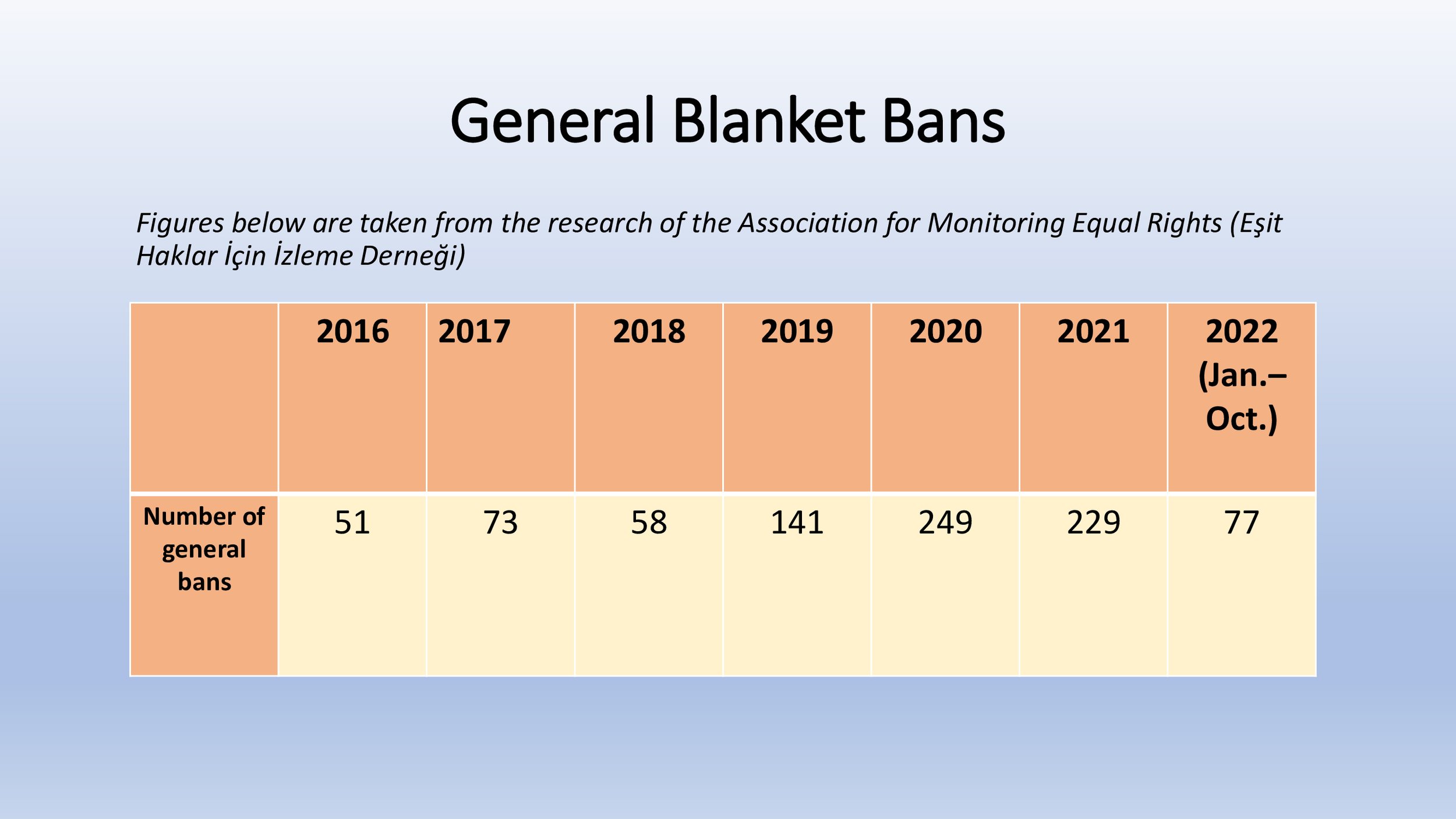
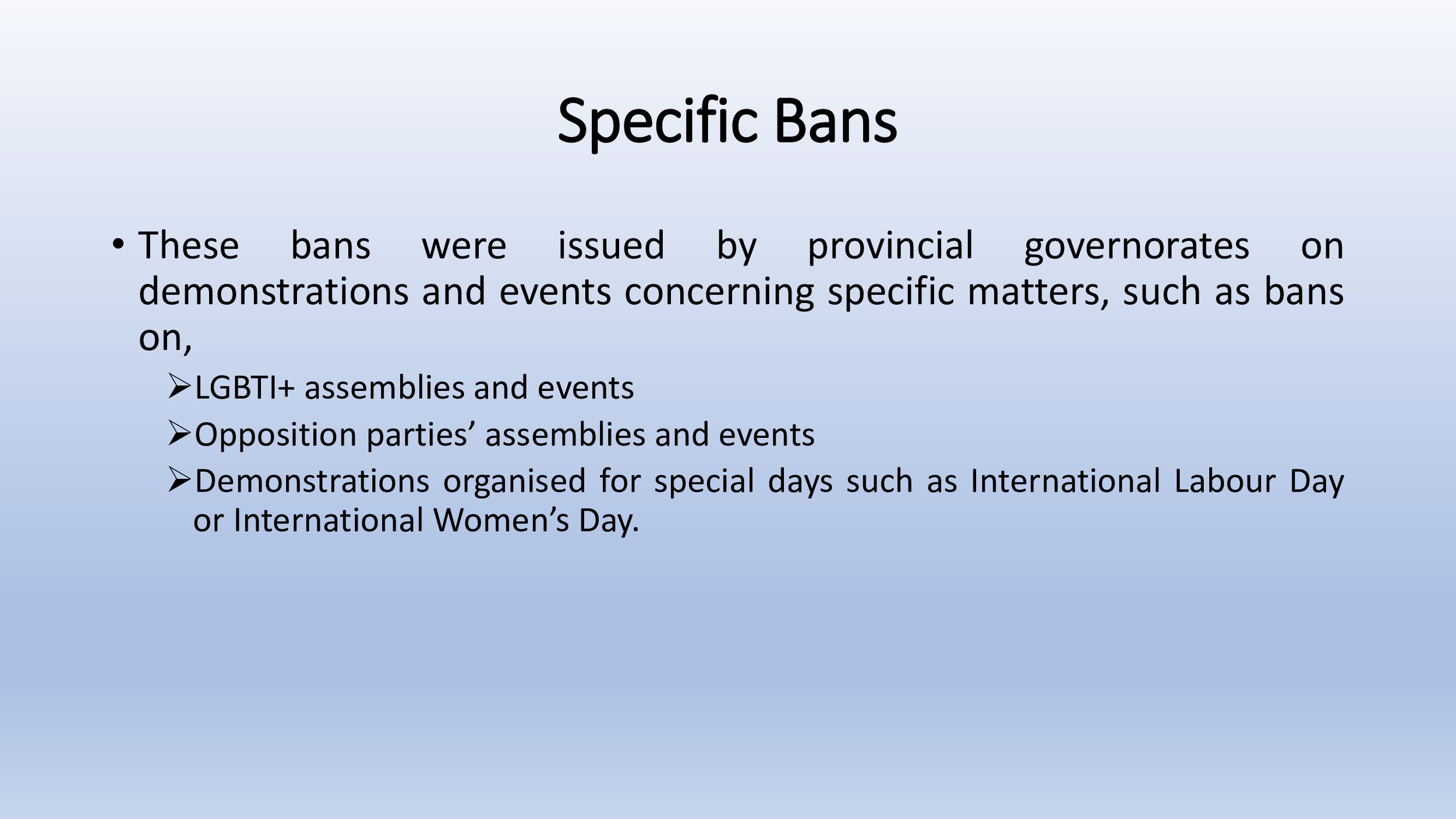
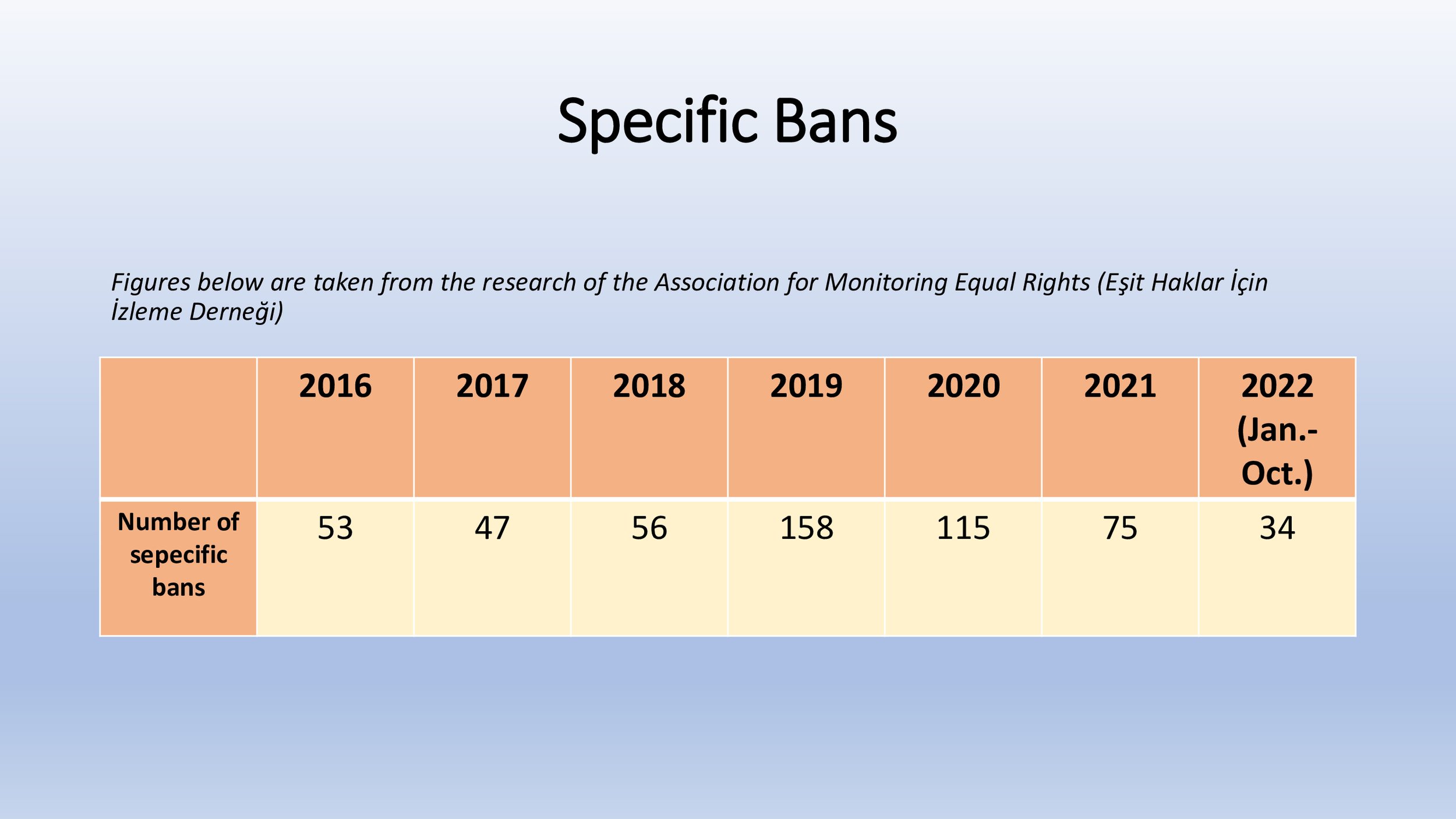
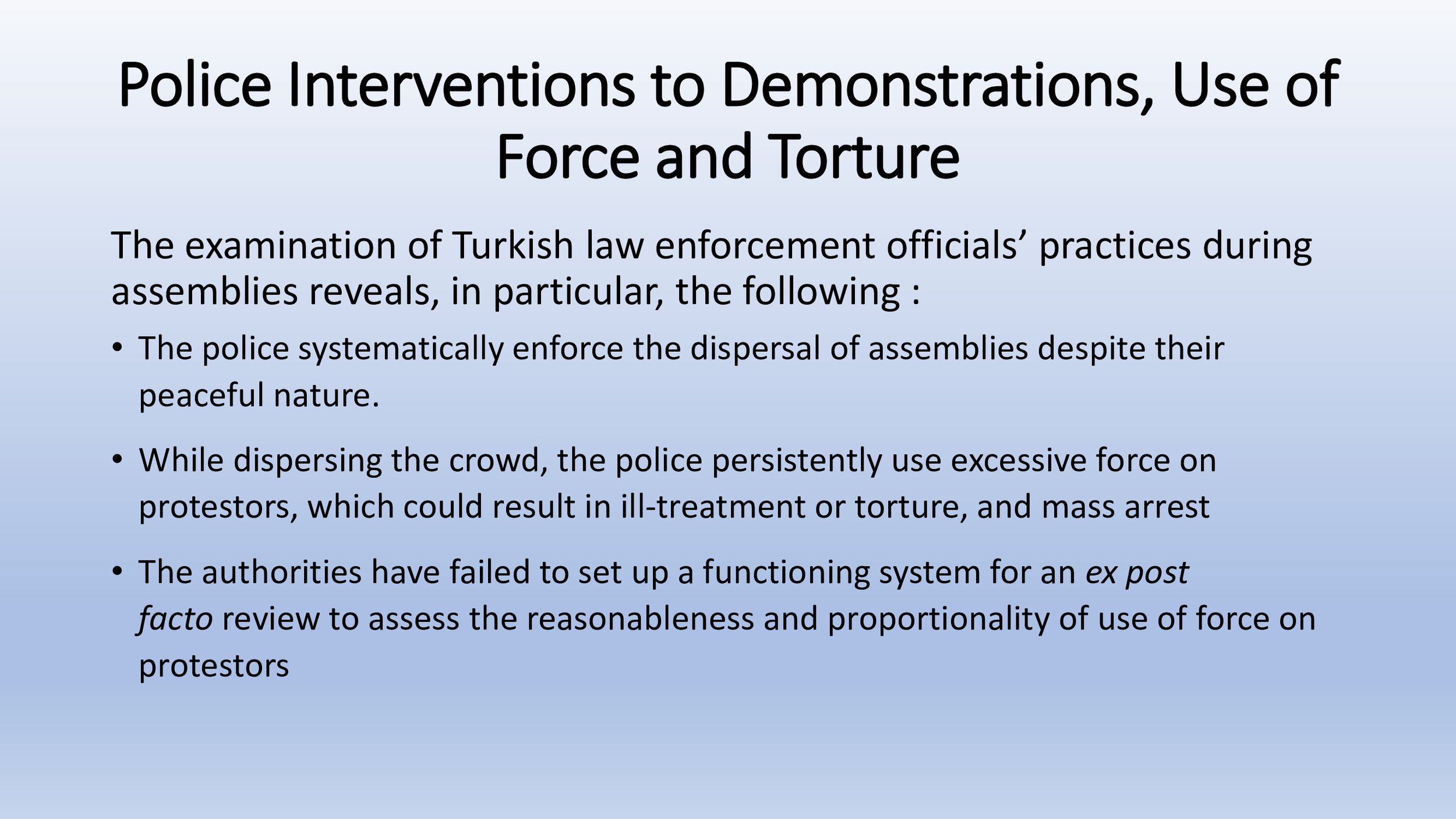
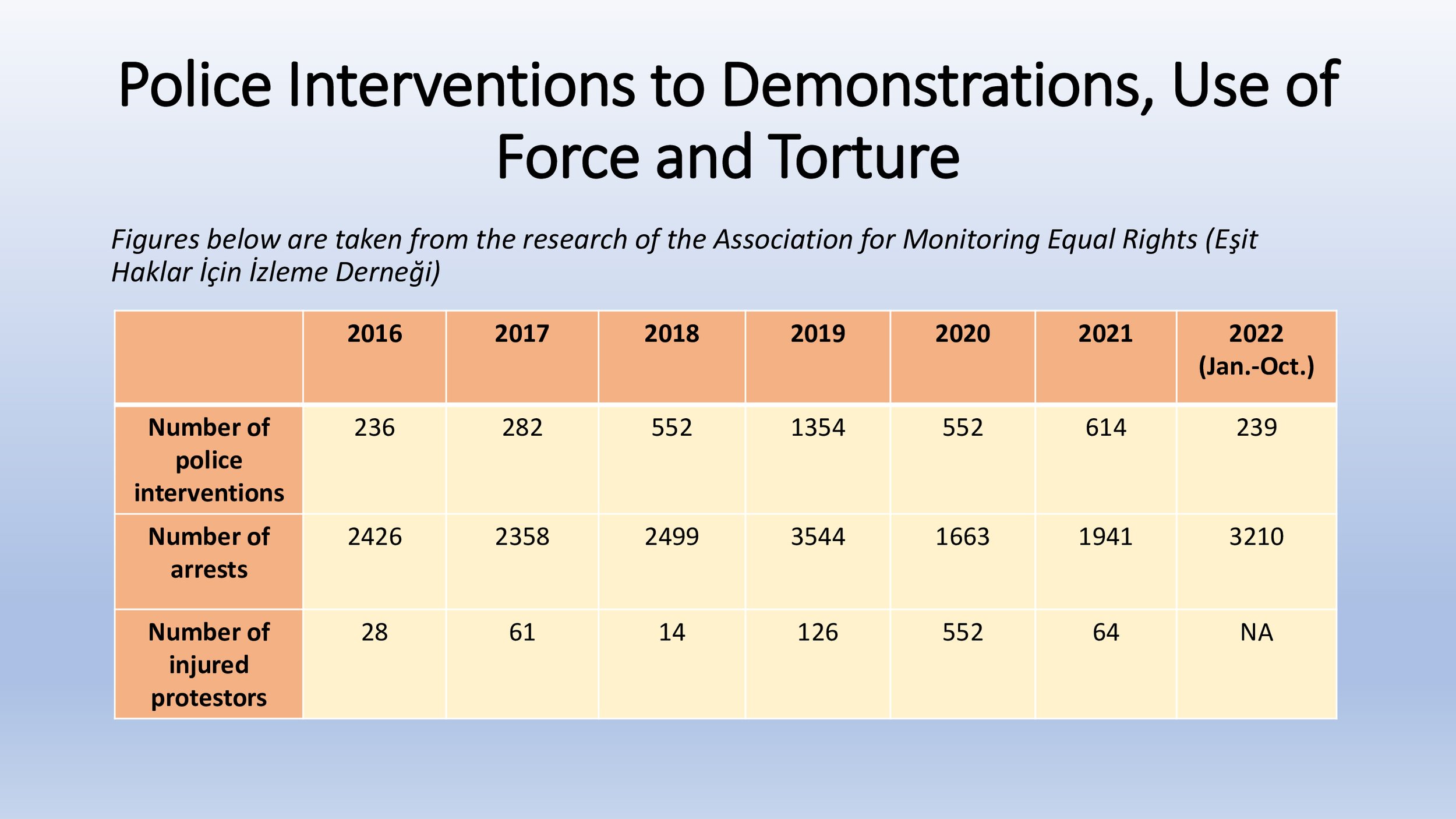

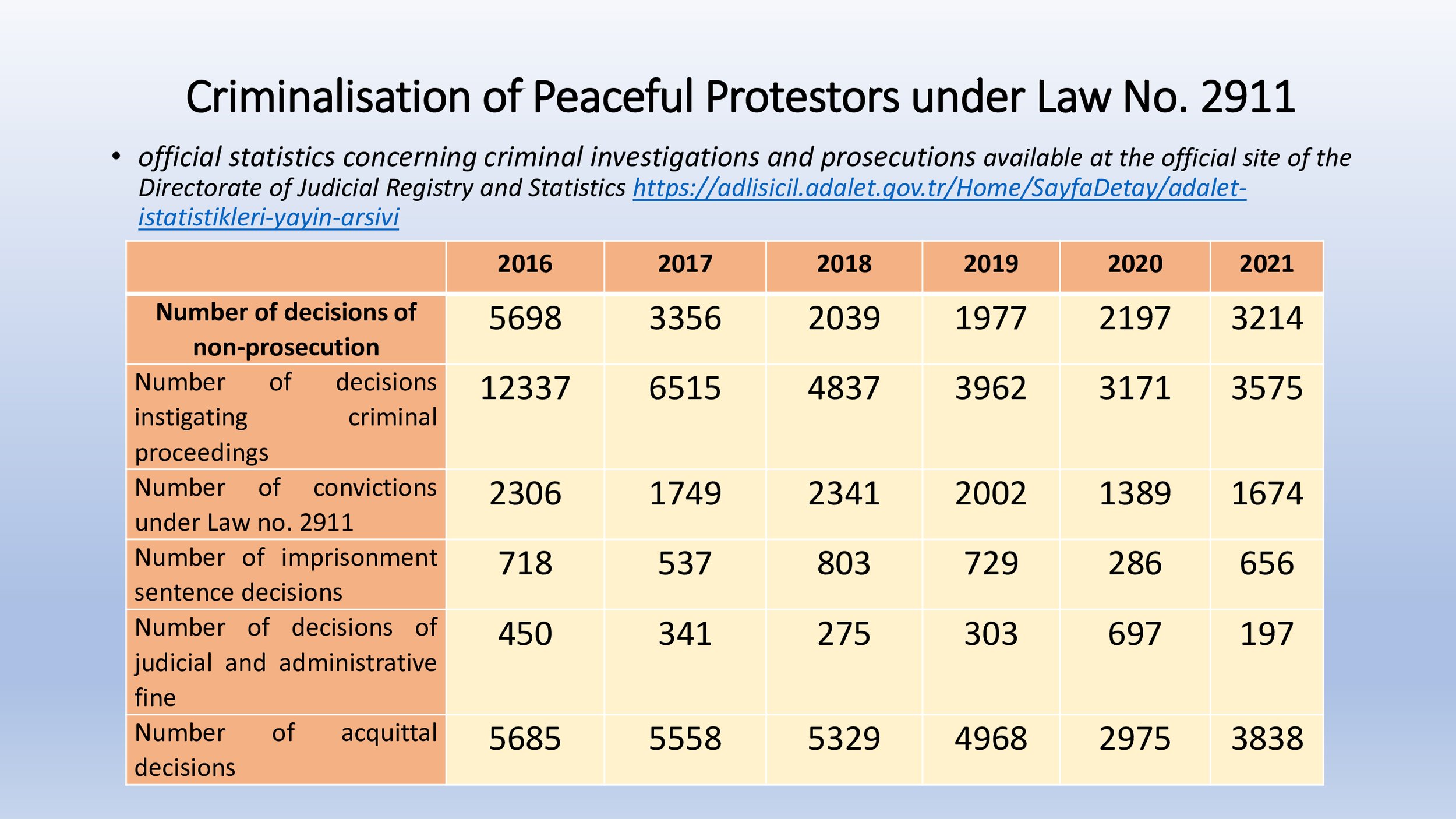
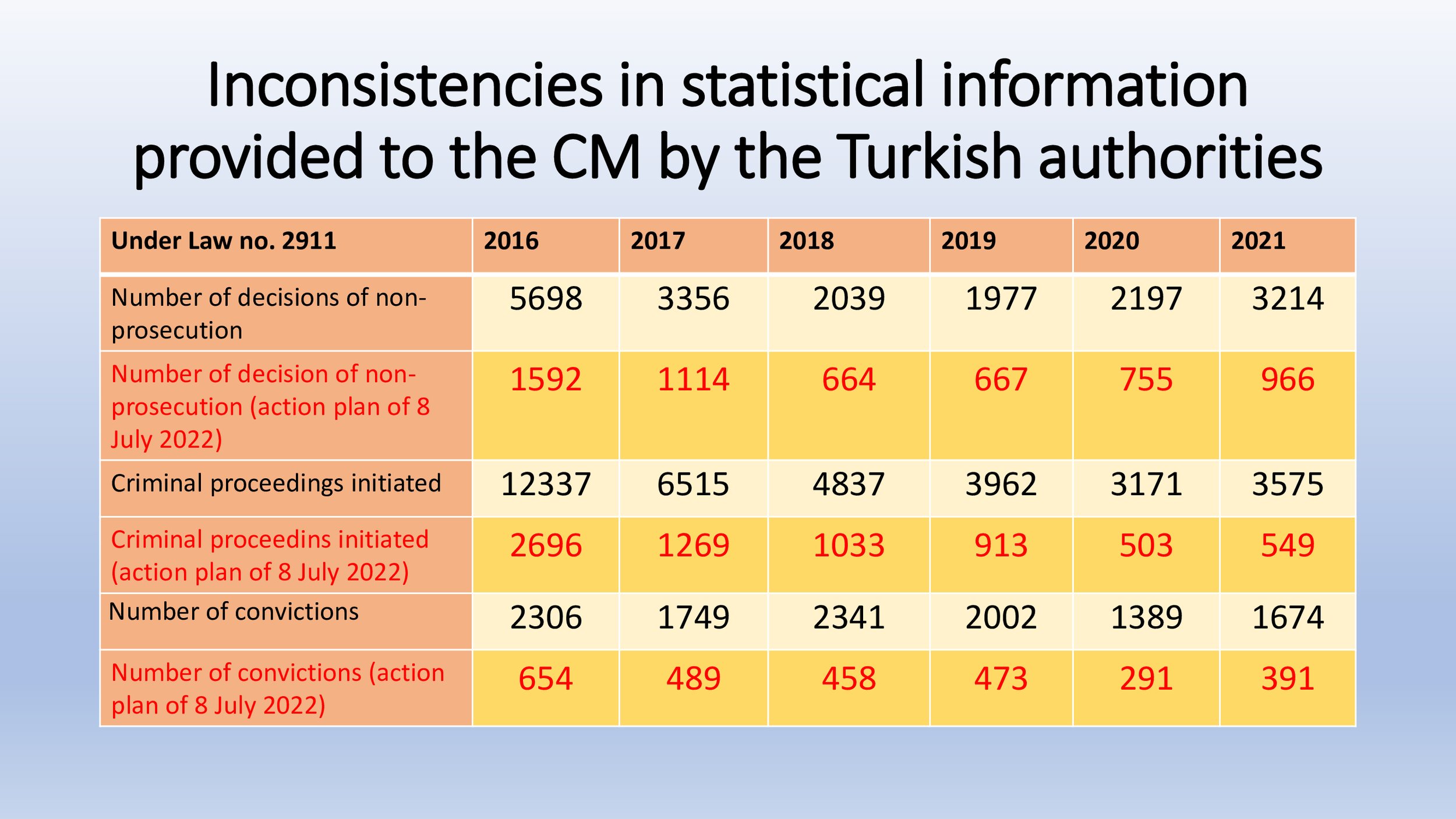
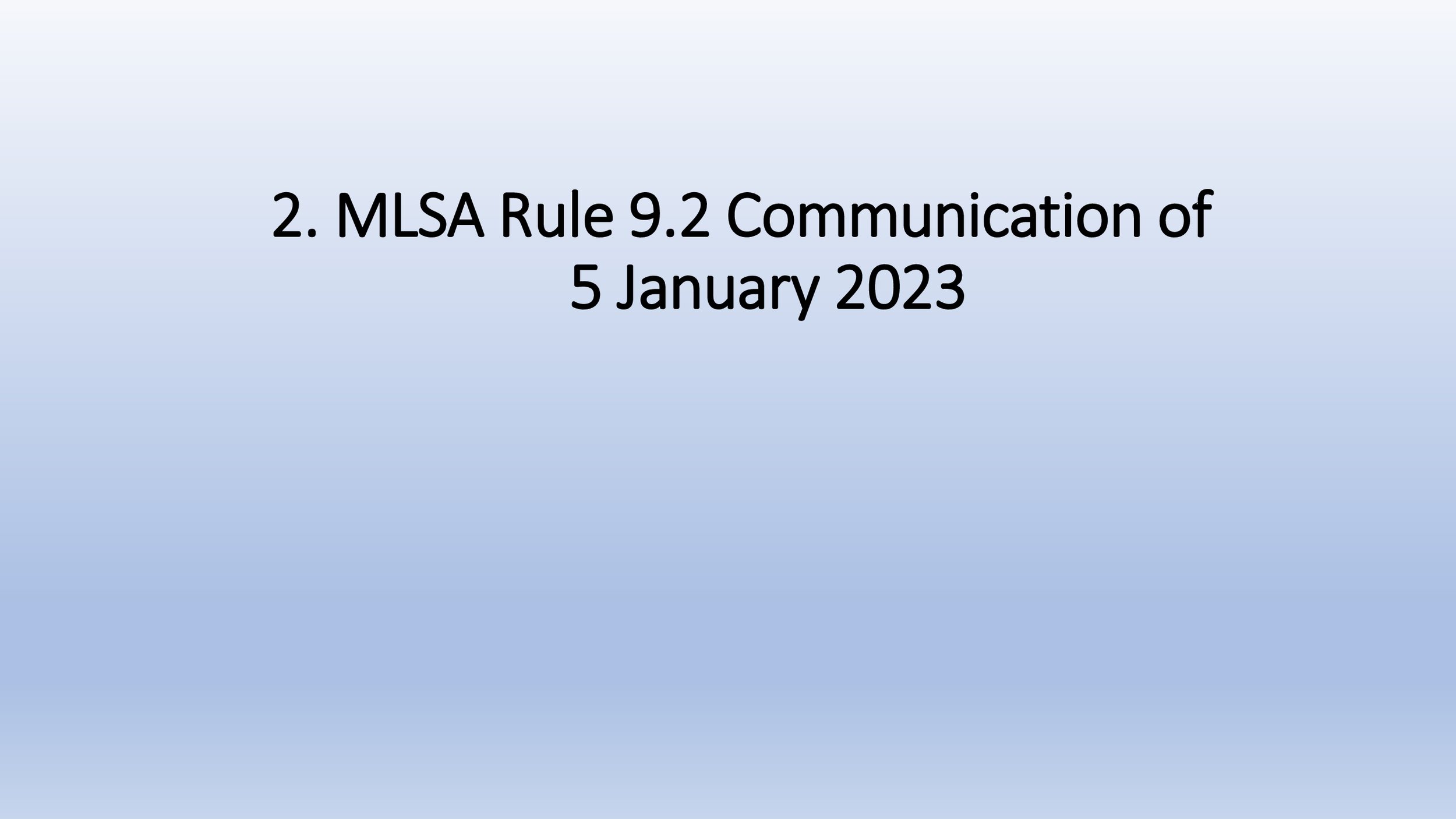
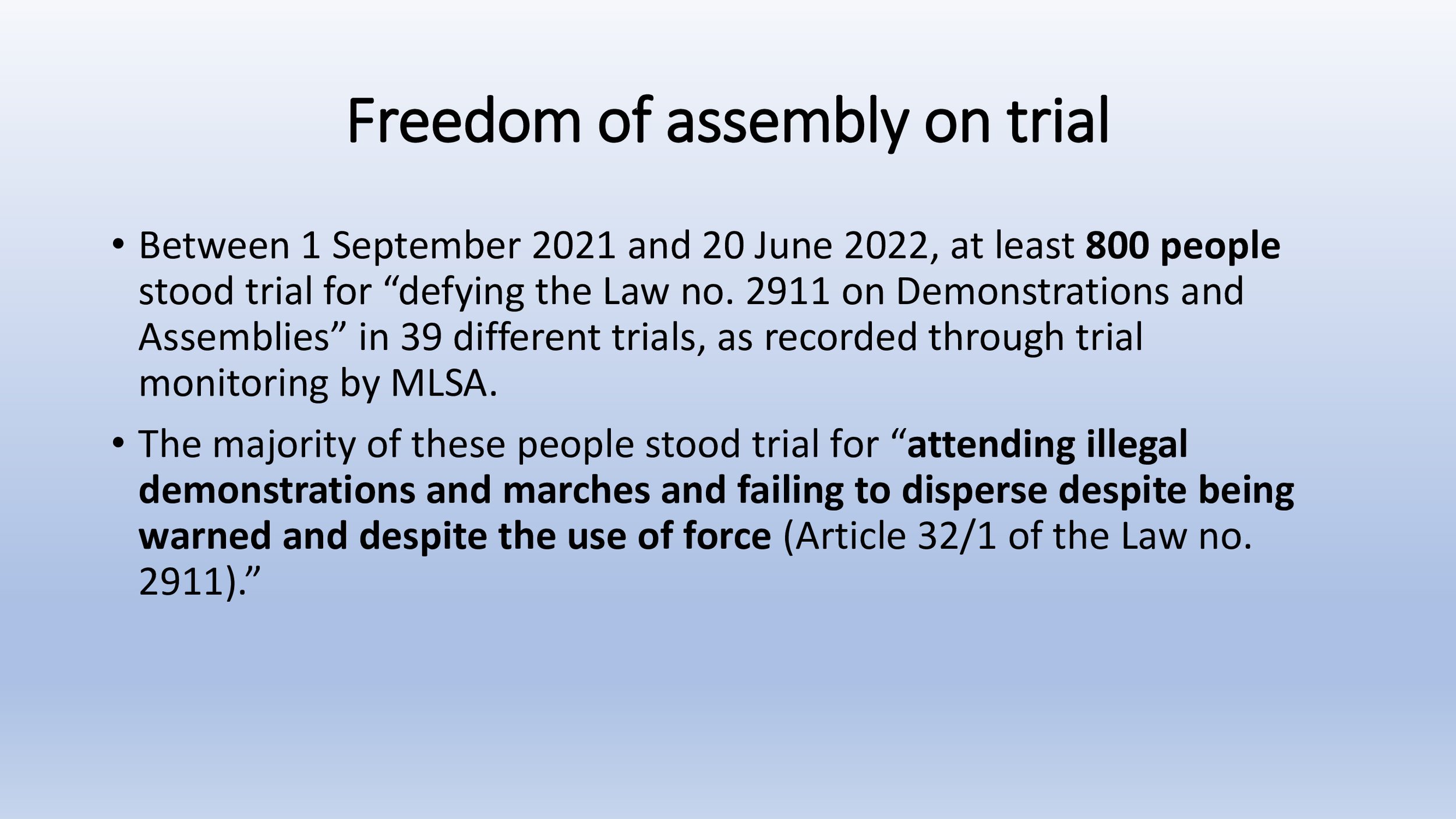
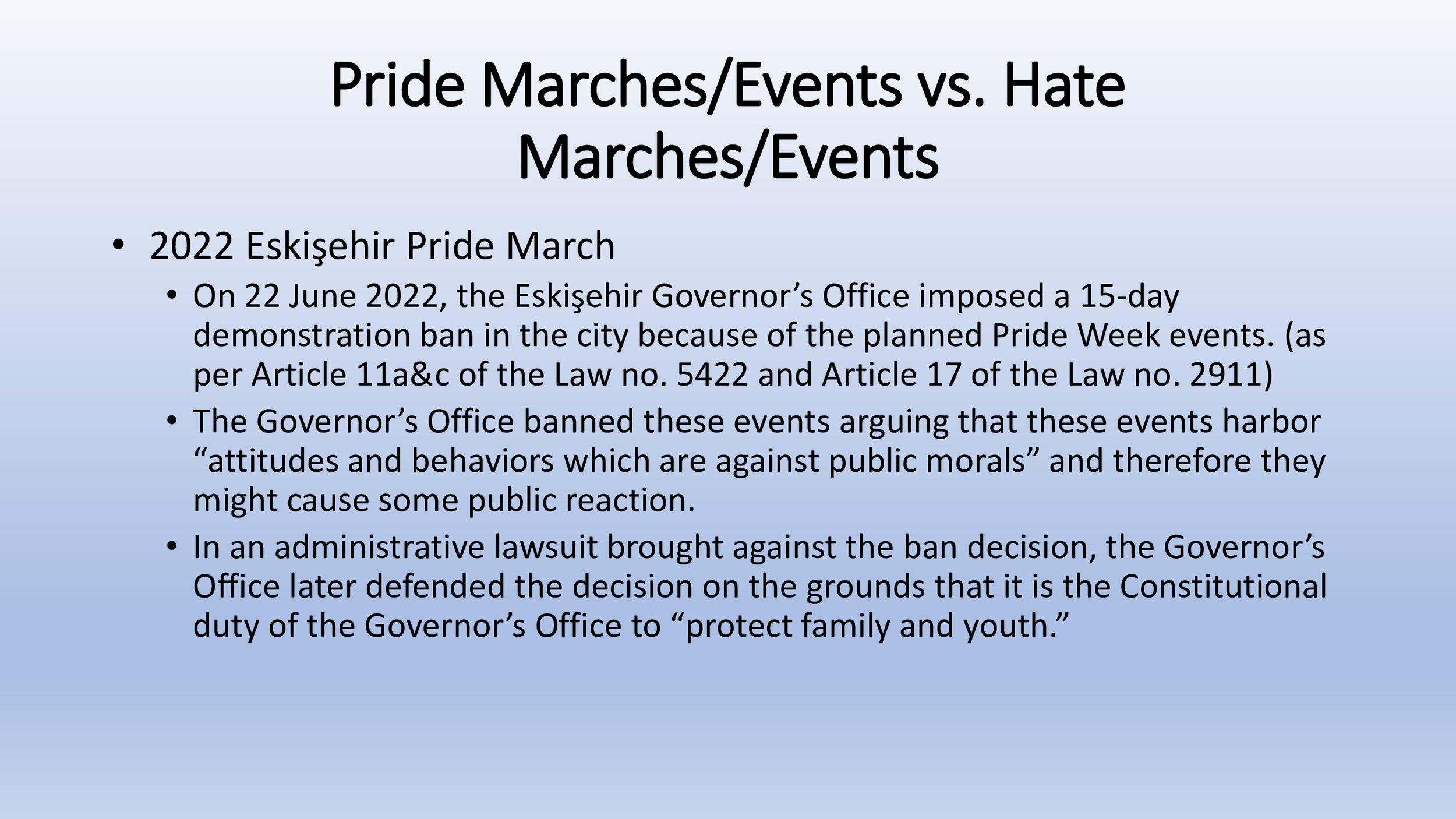

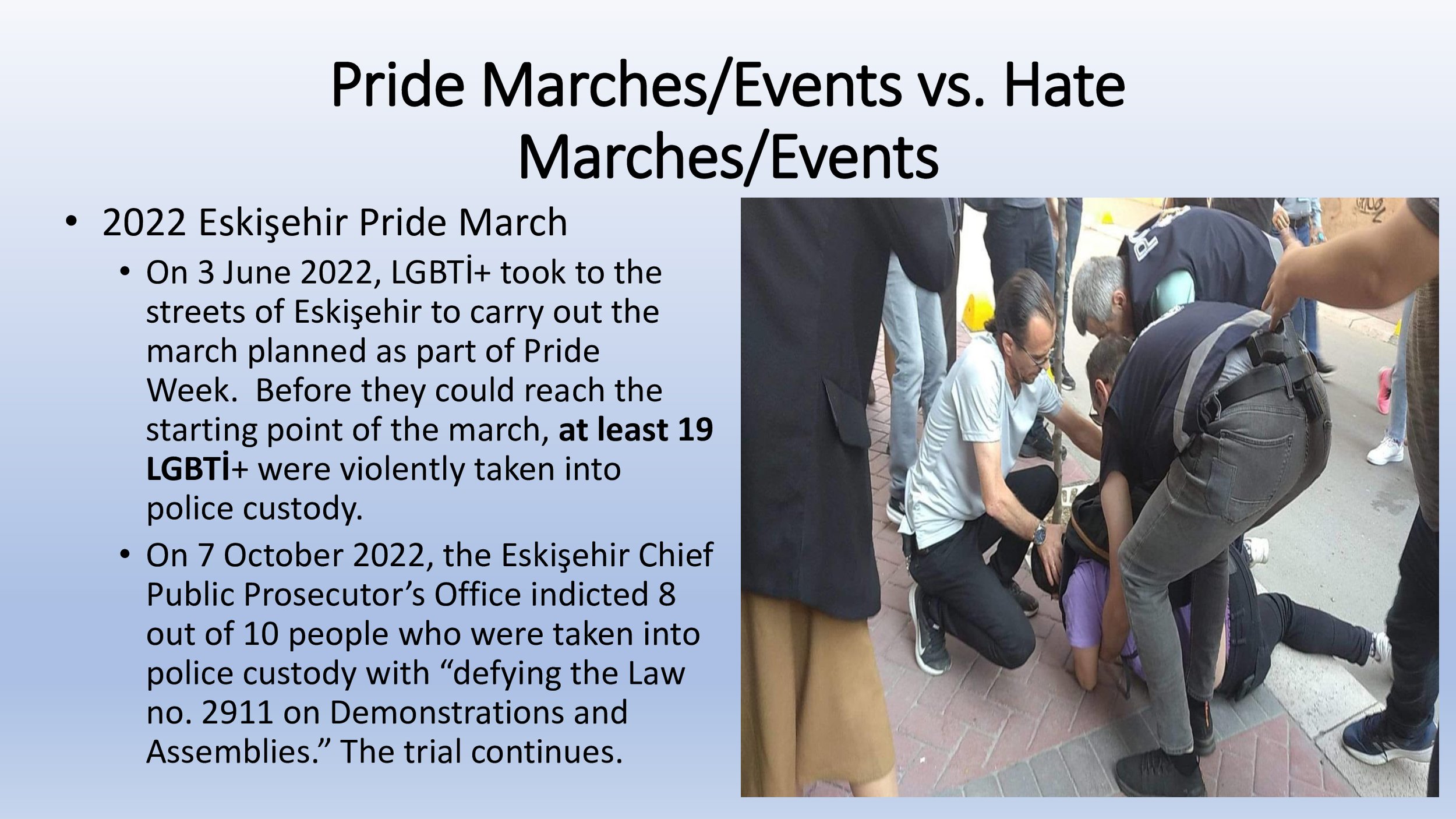
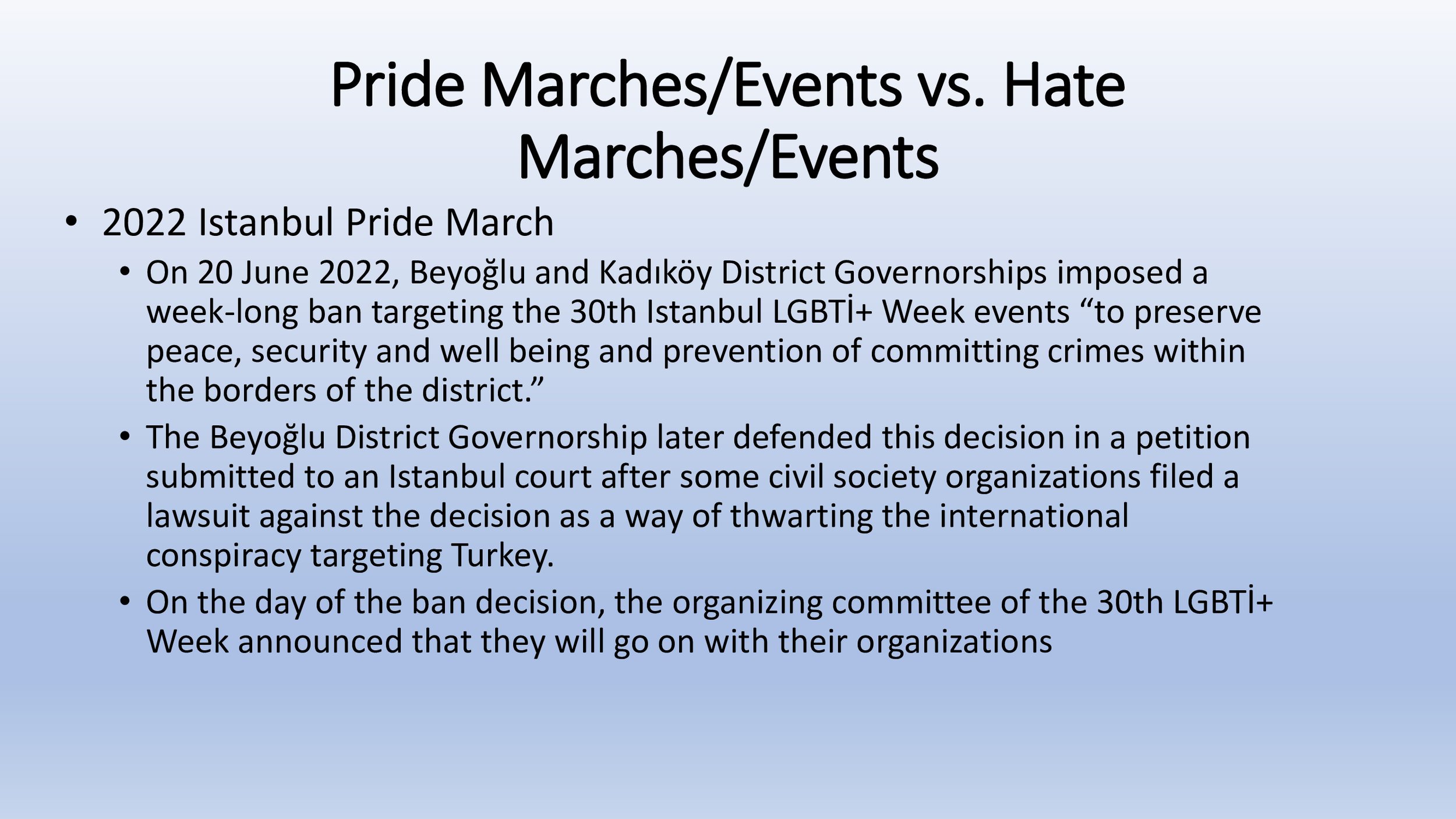
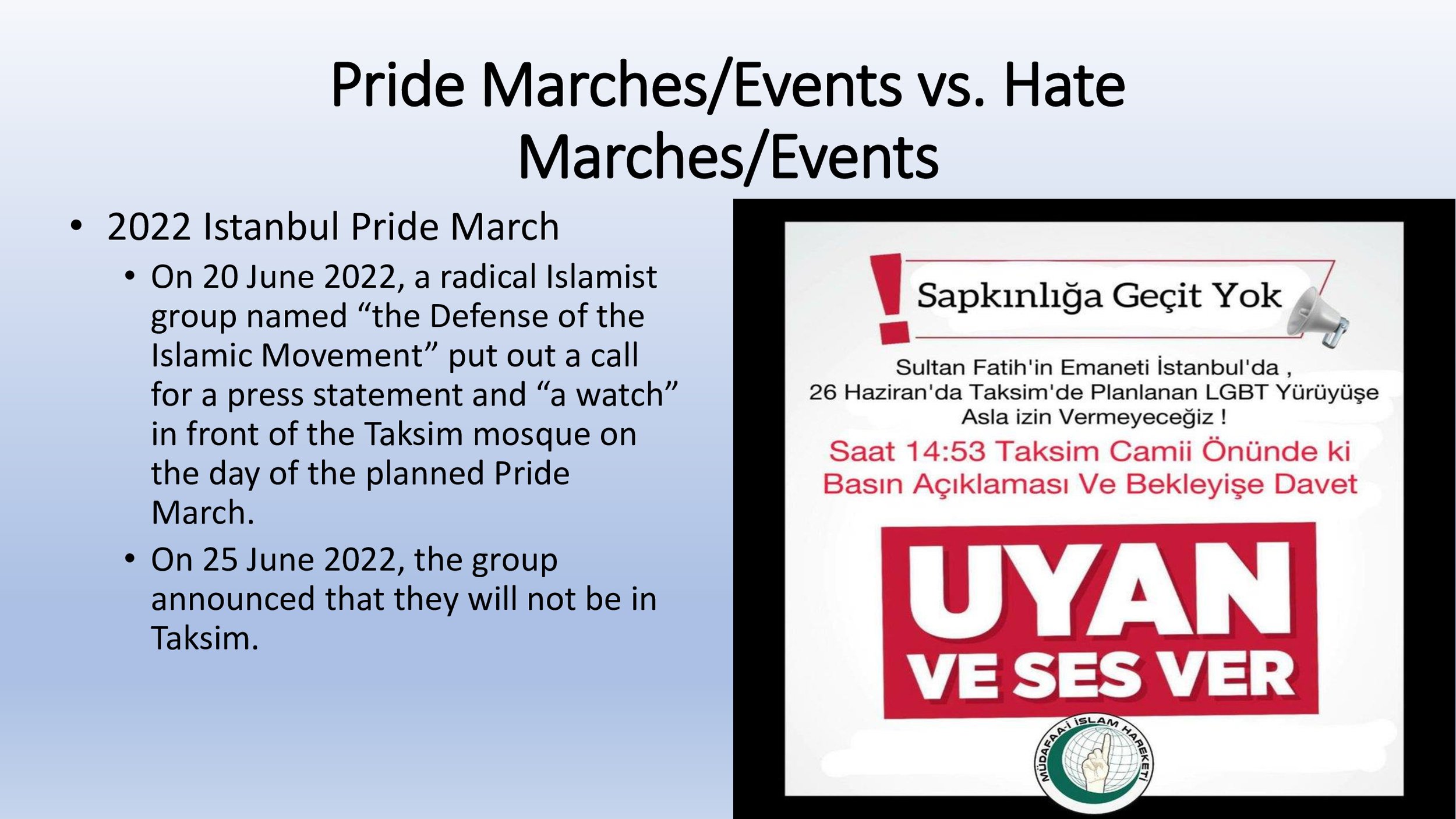
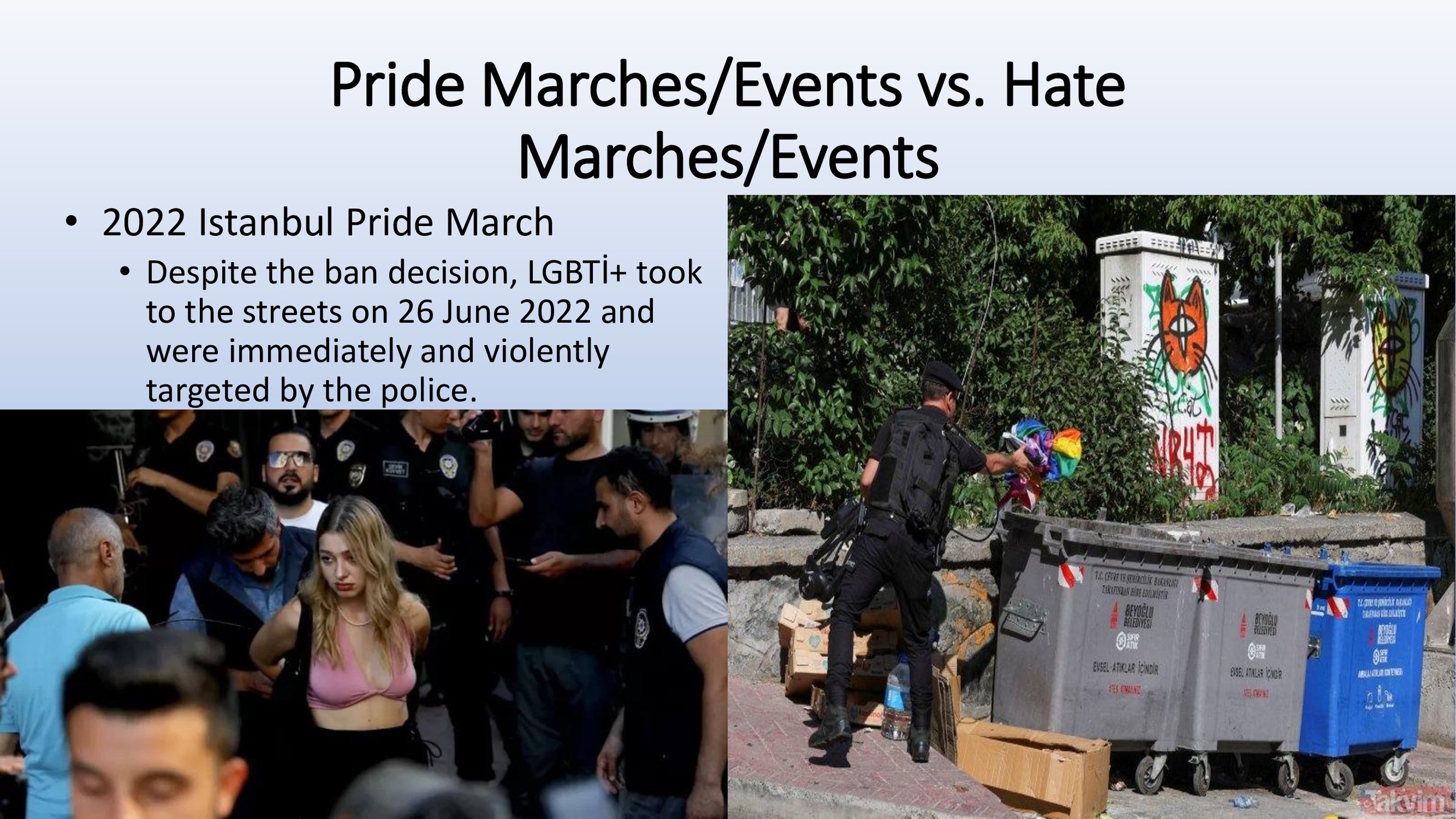
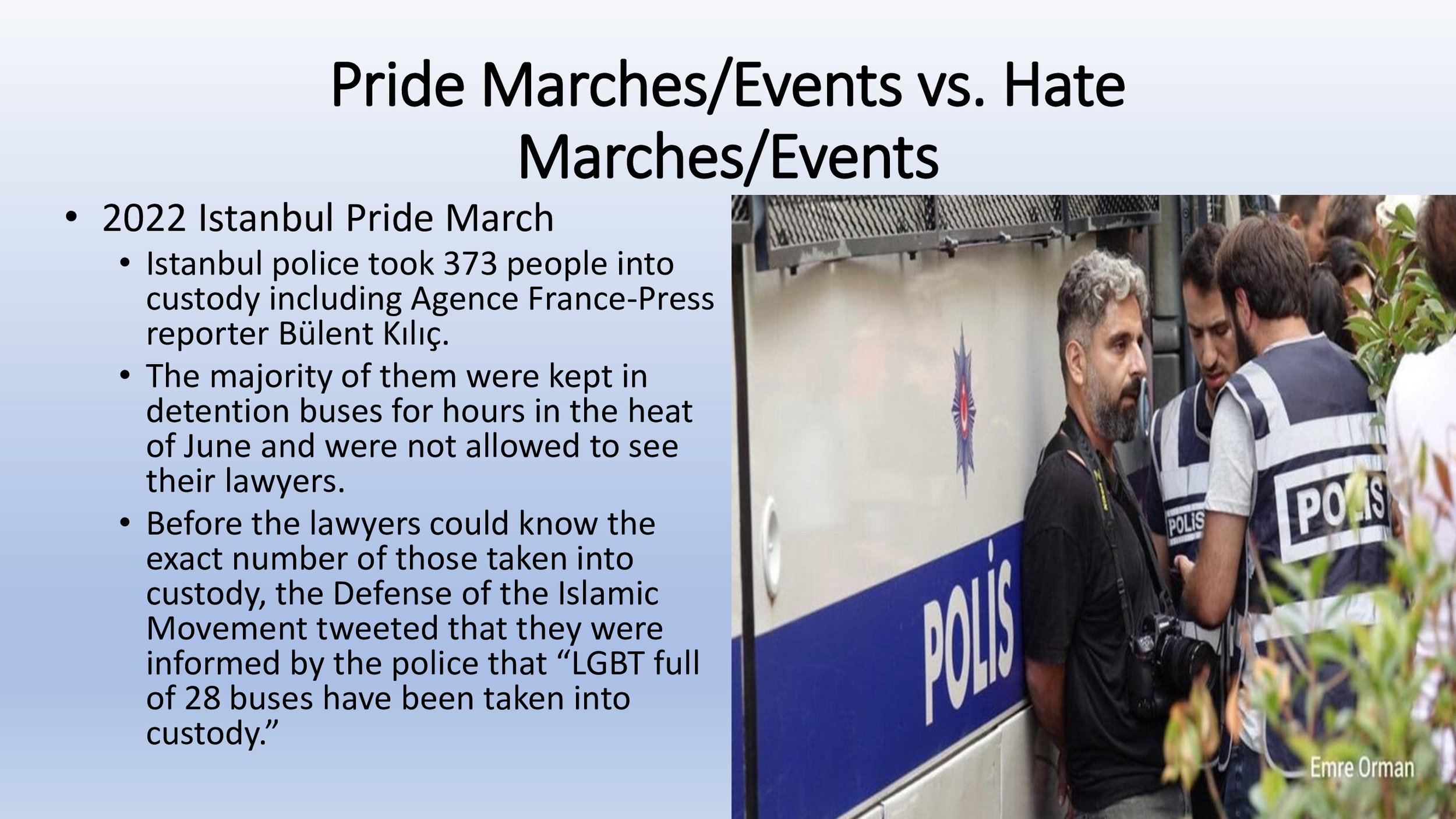
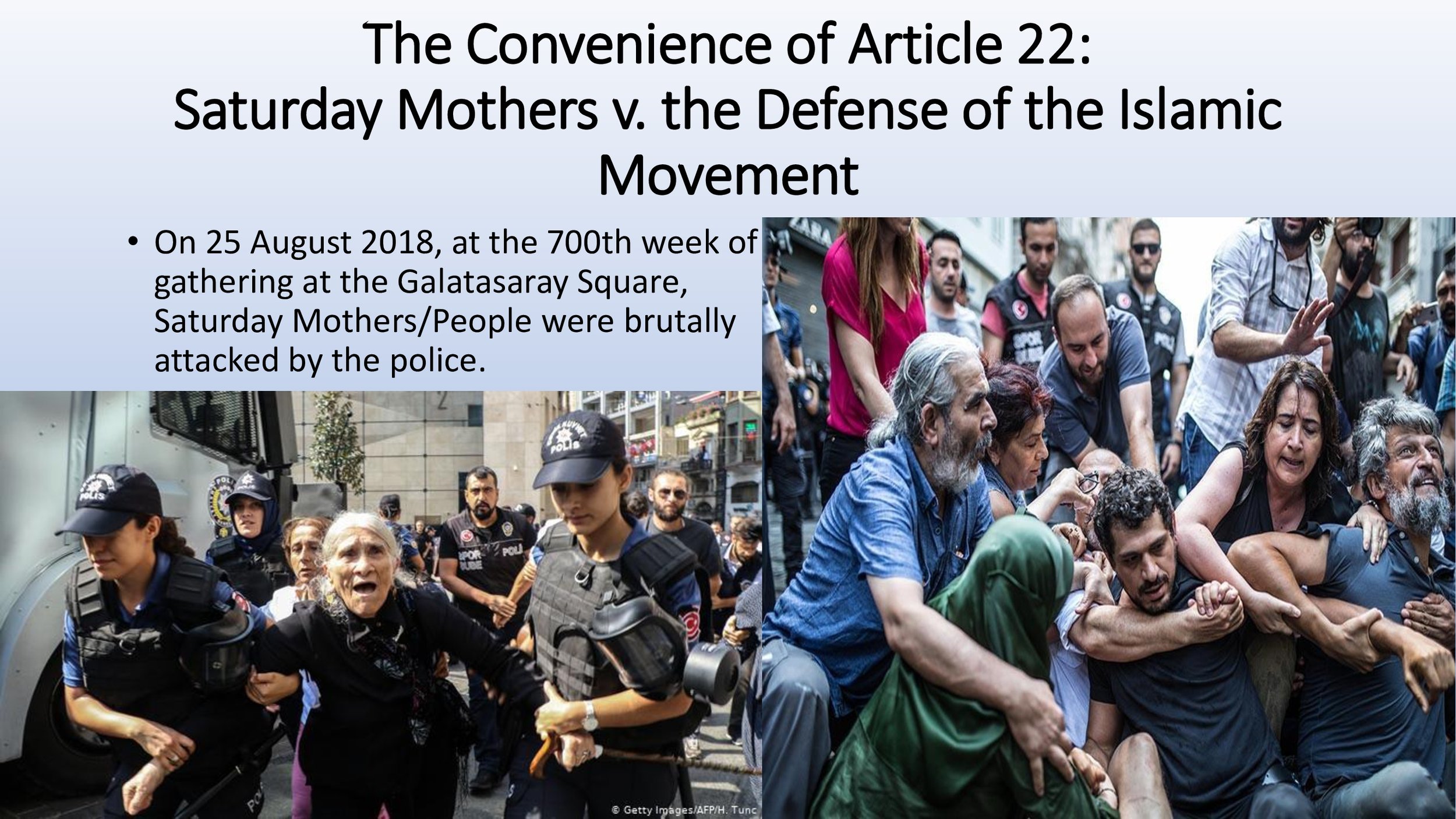
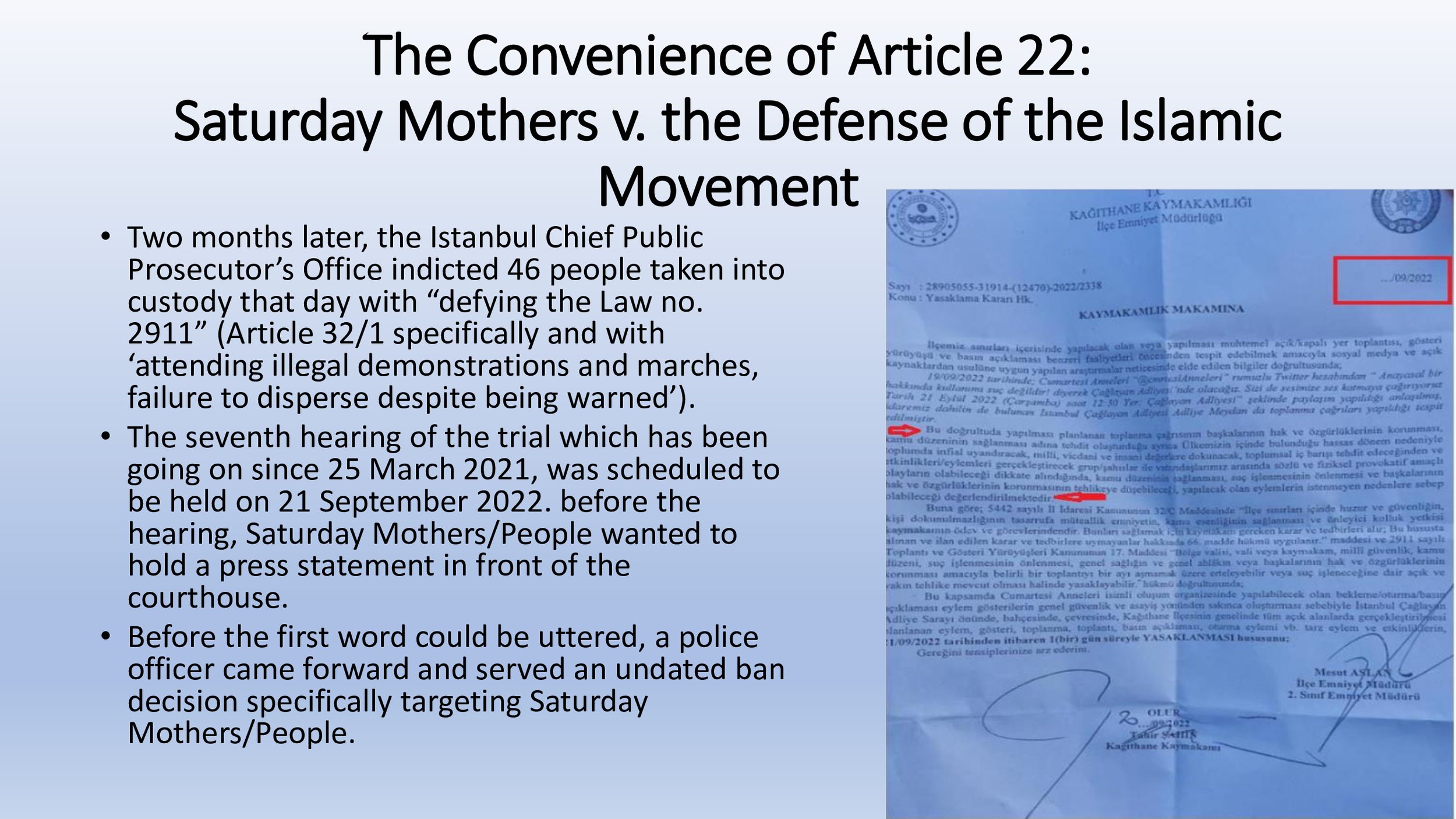
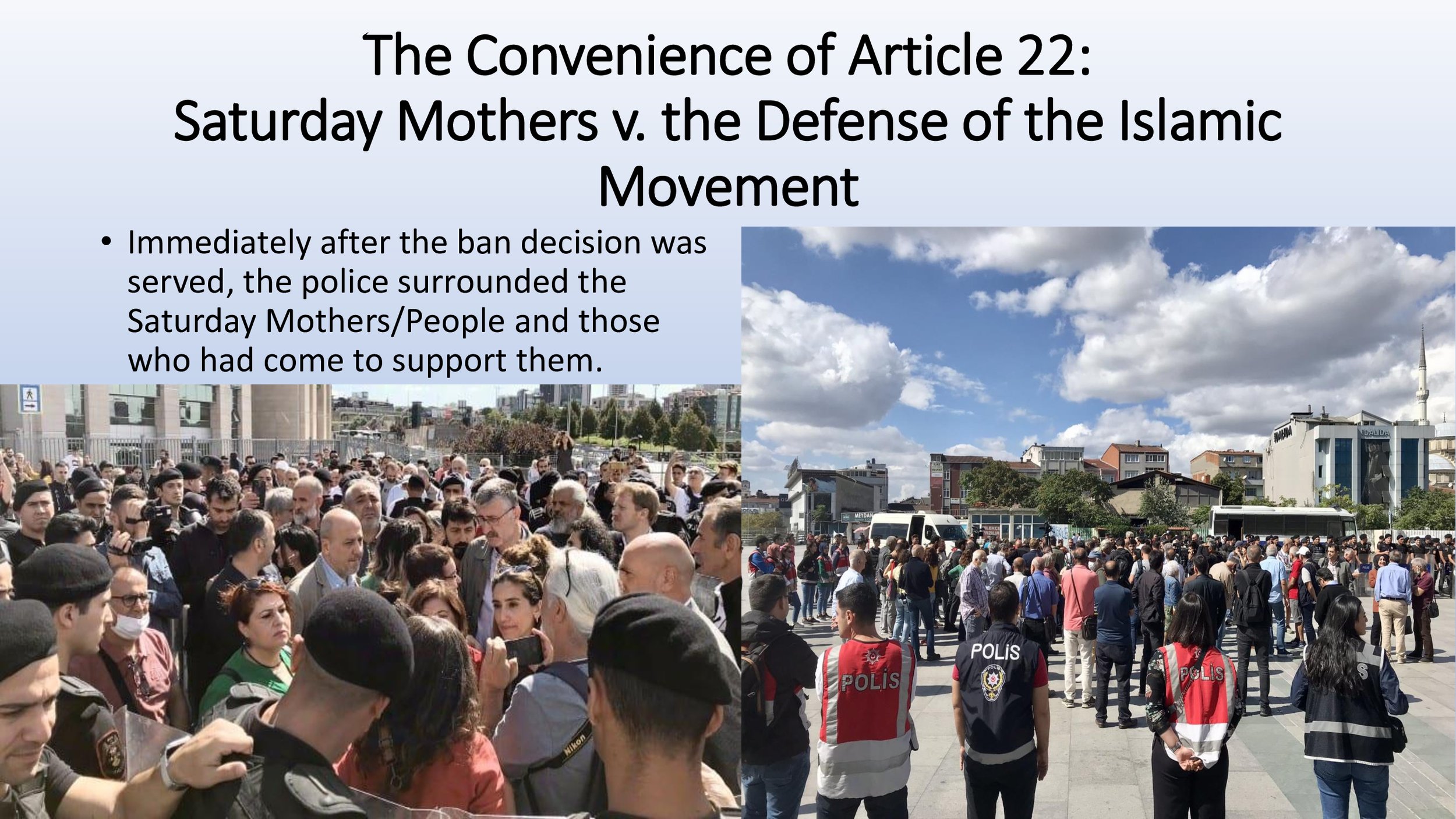
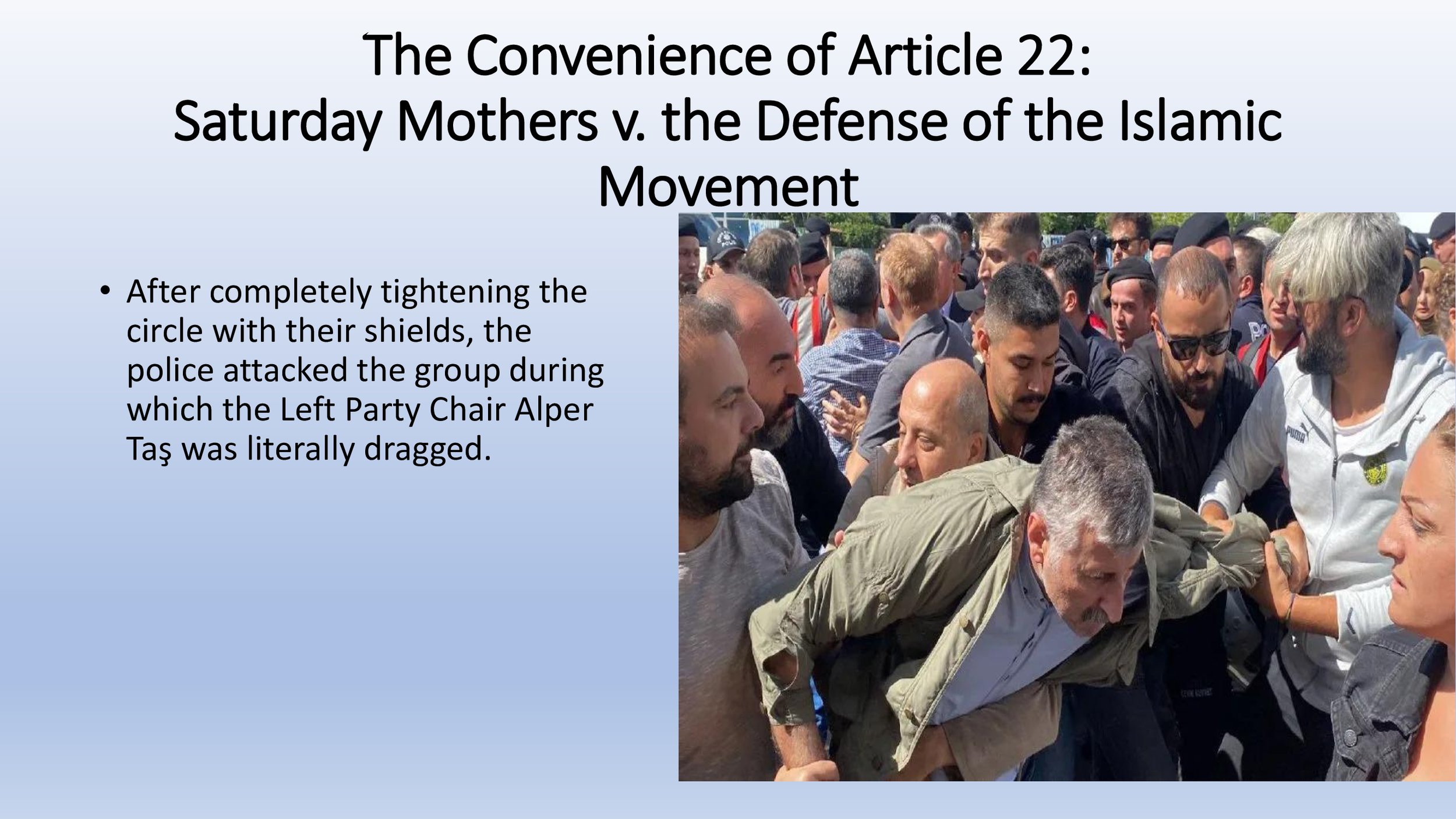
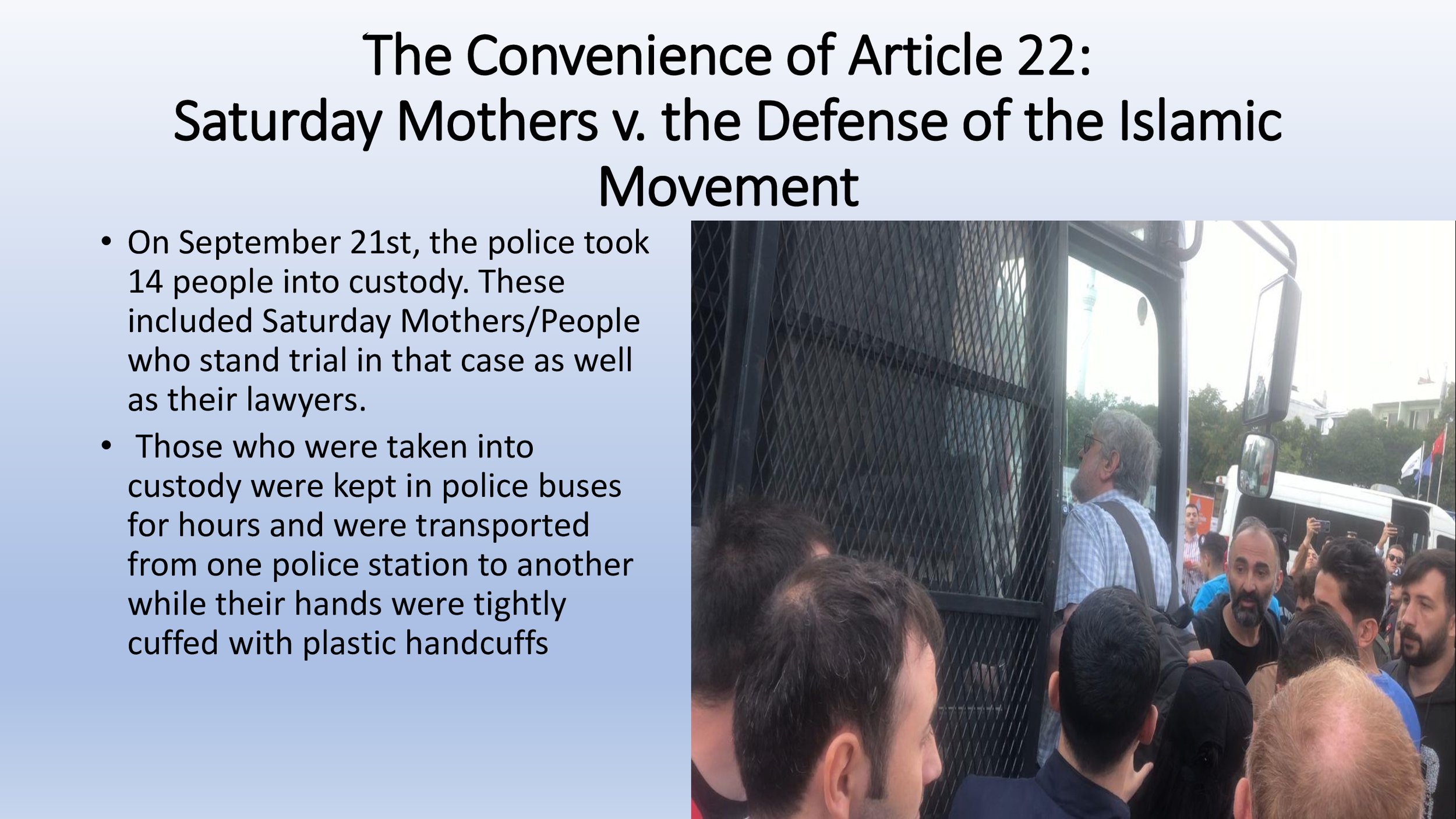
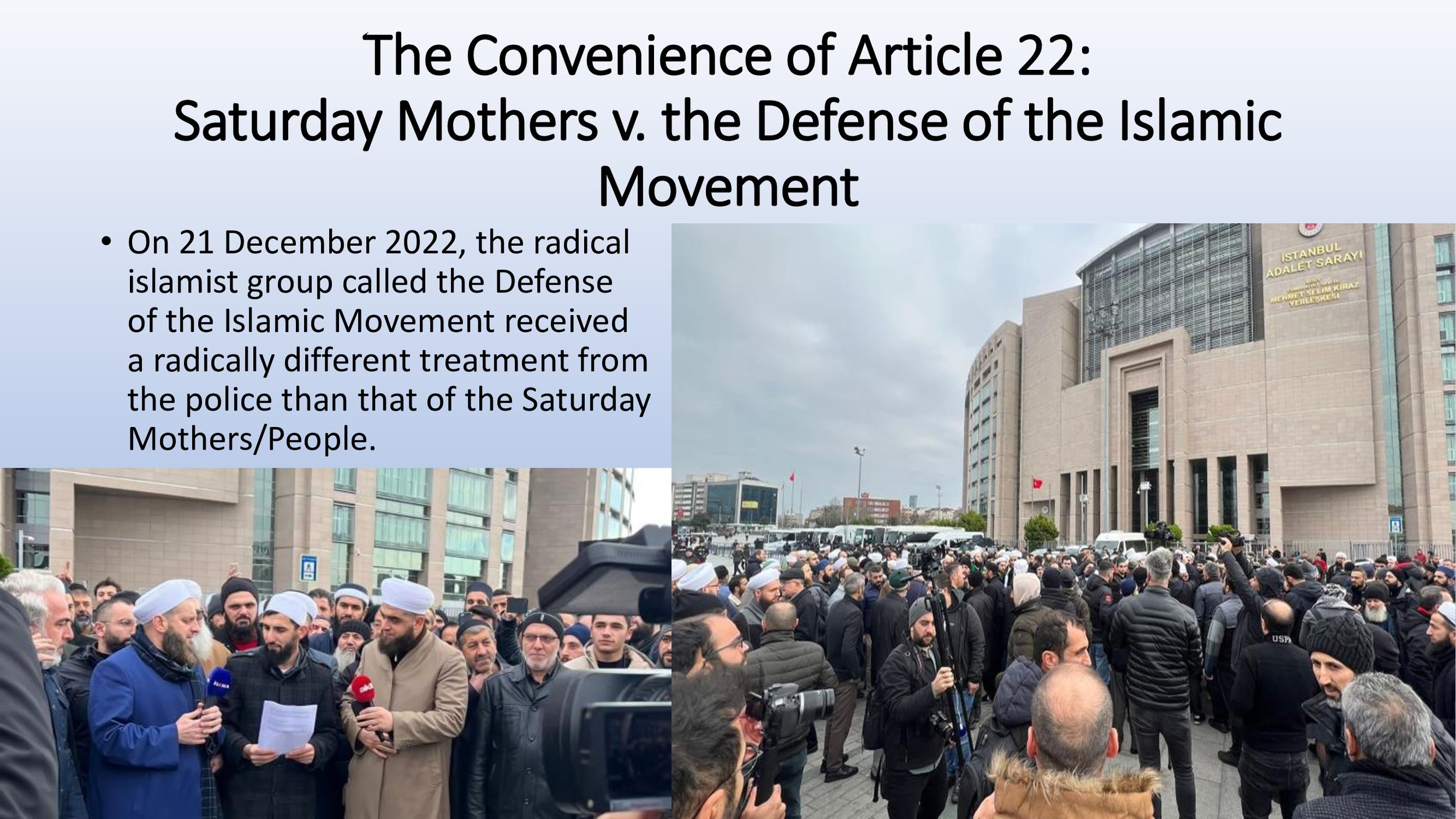
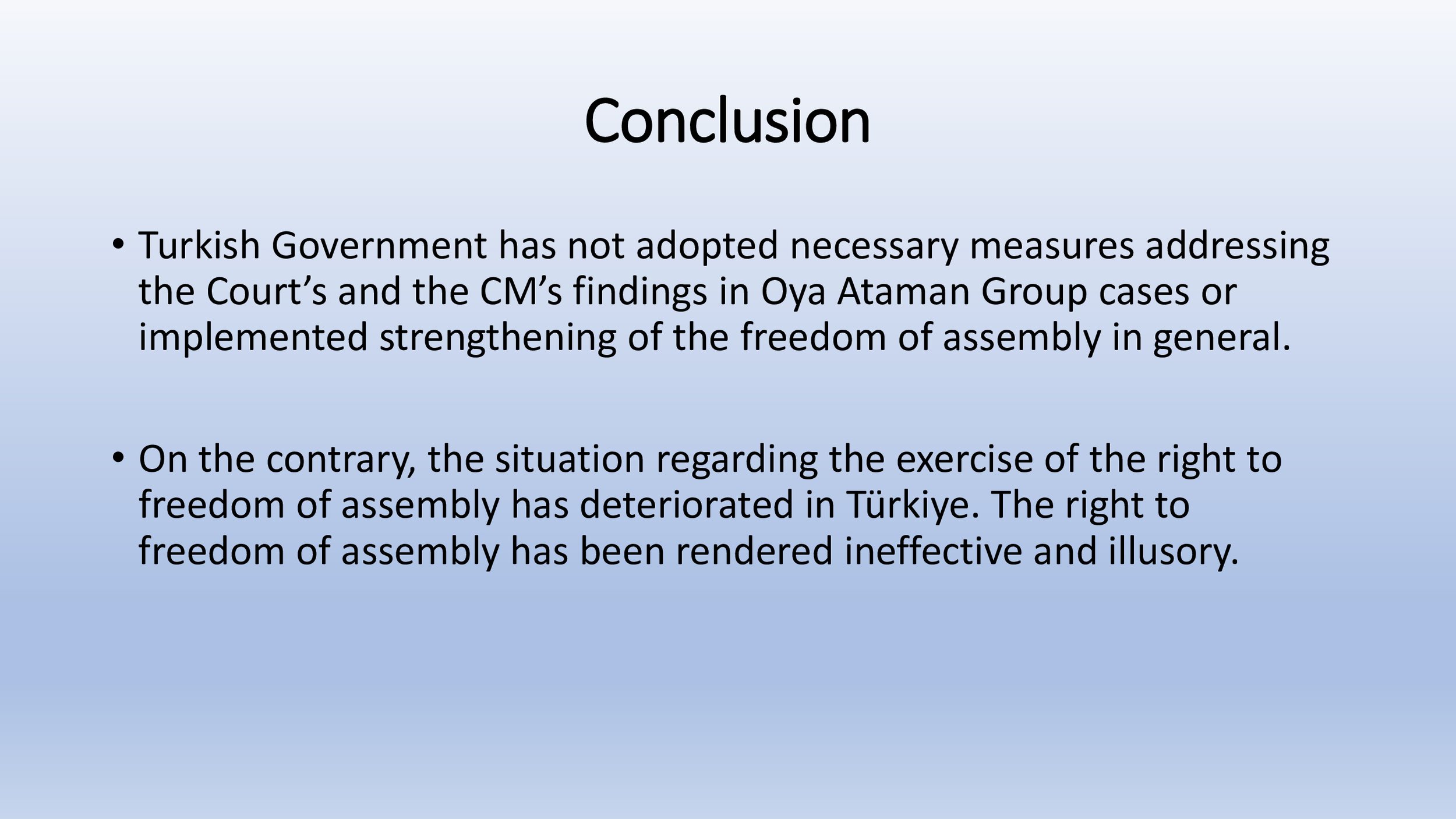
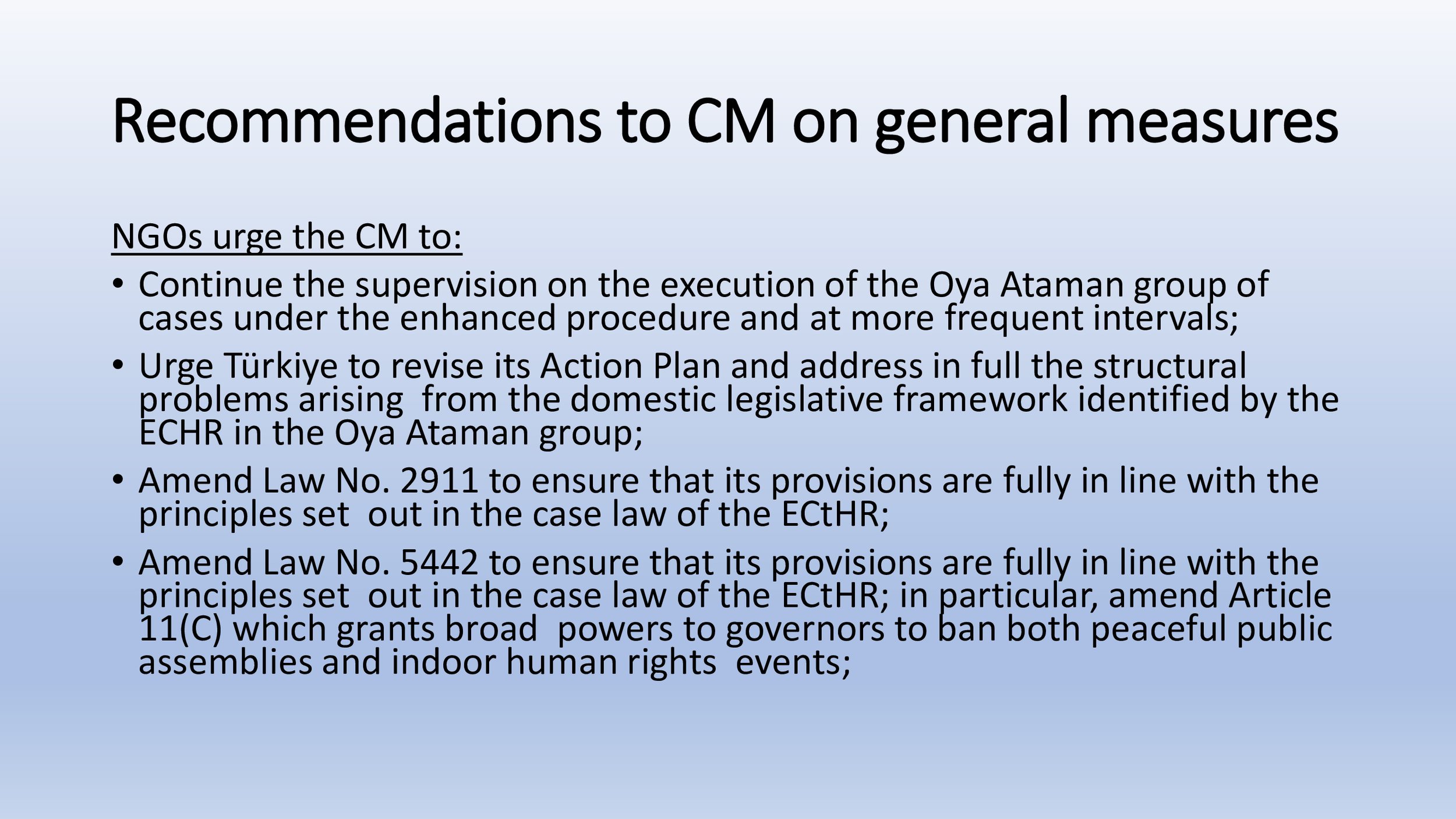
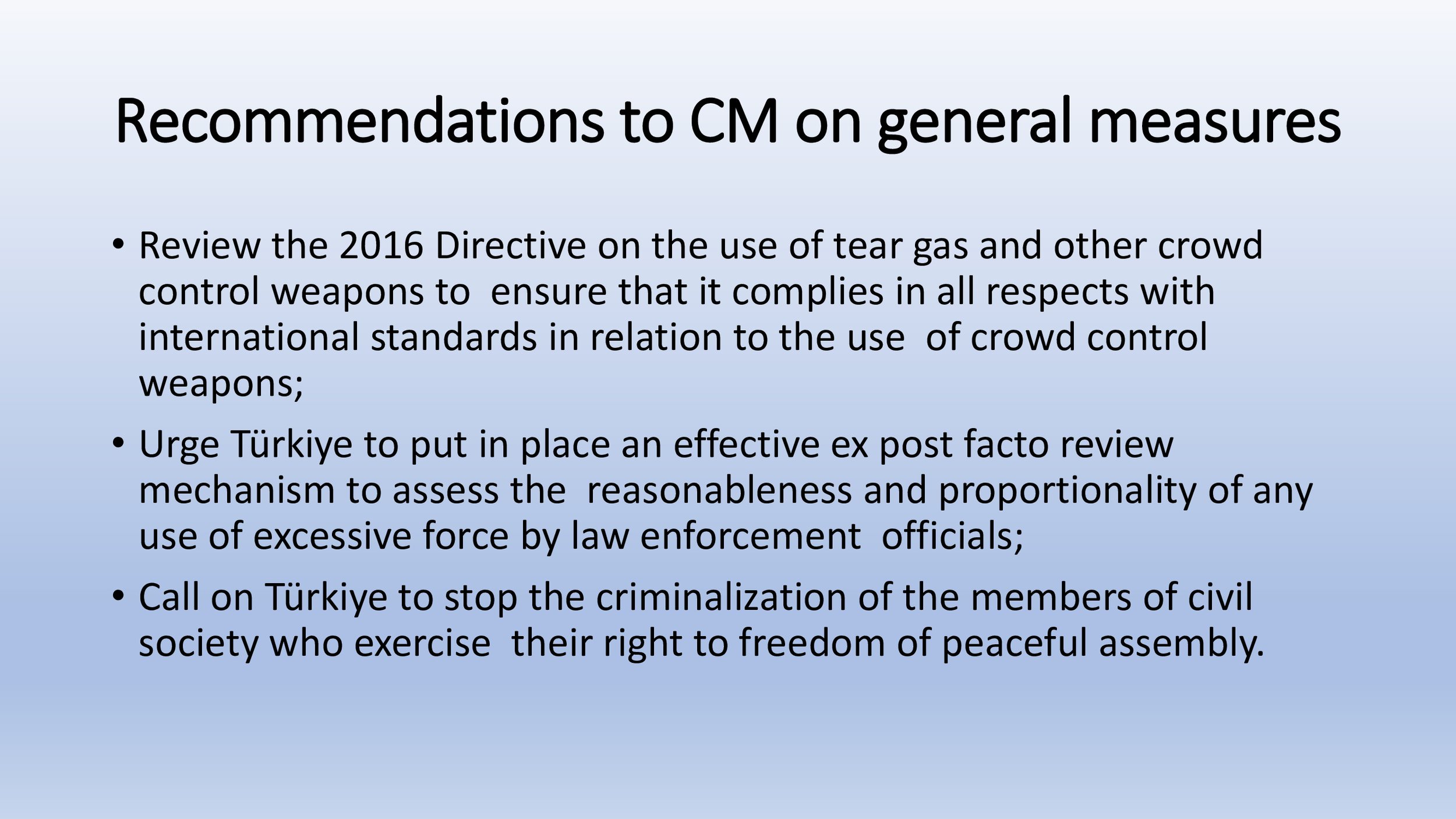
![Baka_v_Hungary_20230227[6446]-0.jpg](https://images.squarespace-cdn.com/content/v1/55815c4fe4b077ee5306577f/1677438599541-LYSGVF2DTXHRE4WRUFE8/Baka_v_Hungary_20230227%5B6446%5D-0.jpg)
![Baka_v_Hungary_20230227[6446]-1.jpg](https://images.squarespace-cdn.com/content/v1/55815c4fe4b077ee5306577f/1677438599788-8S3OR2Z7U6PE26121XE8/Baka_v_Hungary_20230227%5B6446%5D-1.jpg)
![Baka_v_Hungary_20230227[6446]-2.jpg](https://images.squarespace-cdn.com/content/v1/55815c4fe4b077ee5306577f/1677438600567-KECVN9IAOW3EWN1THGZS/Baka_v_Hungary_20230227%5B6446%5D-2.jpg)
![Baka_v_Hungary_20230227[6446]-3.jpg](https://images.squarespace-cdn.com/content/v1/55815c4fe4b077ee5306577f/1677438600758-GMJ5KQYQ8MNM1H43KZN6/Baka_v_Hungary_20230227%5B6446%5D-3.jpg)
![Baka_v_Hungary_20230227[6446]-4.jpg](https://images.squarespace-cdn.com/content/v1/55815c4fe4b077ee5306577f/1677438601558-SKWWJALM9MB4791J2H6E/Baka_v_Hungary_20230227%5B6446%5D-4.jpg)
![Baka_v_Hungary_20230227[6446]-5.jpg](https://images.squarespace-cdn.com/content/v1/55815c4fe4b077ee5306577f/1677438602251-WW7IBHLI1TNCZQ0ON7KZ/Baka_v_Hungary_20230227%5B6446%5D-5.jpg)
![Baka_v_Hungary_20230227[6446]-6.jpg](https://images.squarespace-cdn.com/content/v1/55815c4fe4b077ee5306577f/1677438602515-0WOQMB95ZN93DST209TG/Baka_v_Hungary_20230227%5B6446%5D-6.jpg)
![Baka_v_Hungary_20230227[6446]-7.jpg](https://images.squarespace-cdn.com/content/v1/55815c4fe4b077ee5306577f/1677438603213-3HYQW6MDVSY0OH3LHD7Y/Baka_v_Hungary_20230227%5B6446%5D-7.jpg)
![Baka_v_Hungary_20230227[6446]-8.jpg](https://images.squarespace-cdn.com/content/v1/55815c4fe4b077ee5306577f/1677438603505-BD80YZ0E7CPYVFU0AQFR/Baka_v_Hungary_20230227%5B6446%5D-8.jpg)
![Baka_v_Hungary_20230227[6446]-9.jpg](https://images.squarespace-cdn.com/content/v1/55815c4fe4b077ee5306577f/1677438604225-VN6ZM0WK6UYJSDBFDEOW/Baka_v_Hungary_20230227%5B6446%5D-9.jpg)
![Baka_v_Hungary_20230227[6446]-10.jpg](https://images.squarespace-cdn.com/content/v1/55815c4fe4b077ee5306577f/1677438604435-6KTLCZ4M7SDUQ2VSEHYN/Baka_v_Hungary_20230227%5B6446%5D-10.jpg)
![Baka_v_Hungary_20230227[6446]-11.jpg](https://images.squarespace-cdn.com/content/v1/55815c4fe4b077ee5306577f/1677438605177-BF9NGIGWO96ZURPYW6PI/Baka_v_Hungary_20230227%5B6446%5D-11.jpg)
![Baka_v_Hungary_20230227[6446]-12.jpg](https://images.squarespace-cdn.com/content/v1/55815c4fe4b077ee5306577f/1677438605319-6Y41XXWHQAY717HNIGVZ/Baka_v_Hungary_20230227%5B6446%5D-12.jpg)
![Baka_v_Hungary_20230227[6446]-13.jpg](https://images.squarespace-cdn.com/content/v1/55815c4fe4b077ee5306577f/1677438606182-MKPUZHM3JZ45I718VTKA/Baka_v_Hungary_20230227%5B6446%5D-13.jpg)
